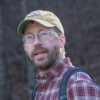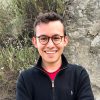
A.J. Faas is an anthropologist who researches politics and cooperation in contexts of disasters, displacement, and resettlement in Latin America and the United States. He received his Ph.D. from the University of South Florida and is currently an associate professor of anthropology at San José State University. Faas is the author of In the Shadow of Tungurahua: Disaster Politics in Highland Ecuador. He is working on community science approaches to disaster vulnerability in the San Francisco Bay Area. Follow him on Twitter @ajfaas.
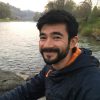
Aaron Gerry is a freelance journalist based in Boston, Massachusetts. He often writes about the impact of sport on outdoor economies and rural development. He has contributed to ESPN, Climbing, and Rock and Ice.

Aaron Gronstal is an astrobiologist specializing in geomicrobiology and an illustrator who explores the use of comic art in communicating scientific concepts. Other work includes the Astrobiology Graphic History series produced for NASA. Follow him on Twitter @AaronGronstal.
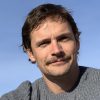
Aaron J. Jackson is a teaching associate at the University of Melbourne in Australia. His research focuses on fatherhood, care, and disability. His book Worlds of Care: The Emotional Lives of Fathers Caring for Children With Disabilities explores the emotional and practical realities of fathers caring for children with major cognitive disabilities in North America. He also writes about care and illness. Follow him on Twitter @Kodacruz.

Aaron Martin is a filmmaker based in Detroit, Michigan. He has produced work for international publications, national news shows, and local theaters

Abdul-Aliy Muhammad is an organizer and writer born and raised in West Philadelphia. Follow them on Twitter @MxAbdulAliy.

Abigail Chabitnoy is the author of In the Current Where Drowning Is Beautiful (forthcoming, Wesleyan 2022); How to Dress a Fish, shortlisted for the 2020 International Griffin Prize for Poetry and winner of the 2020 Colorado Book Award; and the linocut illustrated chapbook Converging Lines of Light. She currently teaches at the Institute of American Indian Arts low-residency MFA program and is an assistant professor at the University of Massachusetts, Amherst. Chabitnoy is a member of the Tangirnaq Native Village in Kodiak, Alaska. She has an MFA in poetry and a B.A. in English and anthropology.

Abigail Desmond is a lecturer in human evolutionary biology at Harvard University, where she teaches courses on technology, human evolution, and human cognition, among others. She is a Paleolithic archaeologist and received her D.Phil. and M.Phil. degrees from the University of Oxford. Desmond’s research focuses on the intersection of technology, biology, and cognition, particularly in the human lineage.

Abrona Lee Pandi Aden teaches in the English department at Sikkim University, India. She is interested in the politics of representation surrounding gender and Indigeneity in literature. She belongs to the Lepcha community Indigenous to Sikkim and the Darjeeling Hills. Some of her short stories and poems have appeared in Muse India, Wordgathering: A Journal of Disability Poetry and Literature, and Mekong Review.

Adam Brumm is a professor of archaeology and a former Australian Research Council future fellow at Griffith University in Queensland. He completed his Ph.D. in archaeology at the Australian National University in 2007. Brumm’s archaeological research focuses on the deep-time story of humans in Indonesia, especially in Wallacea, the vast zone of oceanic islands lying east of continental Asia and the gateway to ancient Australia.
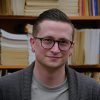
Adam Fleischmann studies the people and processes working at the intersections of climate change politics, science, and technology. He is a Ph.D. candidate in anthropology at McGill University in Montreal, where he received his M.A. in 2015. Fleischmann is a section editor at the Society for Cultural Anthropology, where he has also been a contributing editor since 2018. Follow him on Twitter @afleisch_anthro.

Adam Gamwell is a design anthropologist whose research and consulting work focuses on agricultural biodiversity conservation, environmental design, and Peruvian quinoa. He is a Ph.D. candidate at Brandeis University. He is currently the host, creative director, and executive producer of This Anthro Life Podcast, a public education initiative to bring social science tools and insights to wider publics. He is also a freelance ethnographic and design consultant. Follow him on Twitter @gamwell and @thisanthrolife, or on LinkedIn.
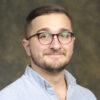
Adam Kersch earned his Ph.D. in cultural anthropology at the University of California, Davis, in 2022. His work examines the interplay between Whiteness, infectious diseases, settler colonialism, and race over the course of 200 years in Sheet’ká (Sitka), Alaska. Using ethnographic and historical methods, Kersch’s community-oriented research outlines how ideas about disease and race affected colonial public health programs.
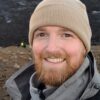
Adam Netzer Zimmer is a biocultural anthropologist based in Reykjavík, Iceland. He is currently a Ph.D. candidate at the University of Massachusetts, Amherst (UMass). Zimmer’s dissertation research focuses on the rise of race-based anatomical science in 19th- and early 20th-century Iceland and the U.S. His work has been supported by a Fulbright-National Science Foundation Arctic Research Grant, an NSF Graduate Research Fellowship, the Armelagos-Swedlund Biocultural Anthropology Dissertation Award, and a Leifur Eiríksson Foundation Fellowship. Previously, Zimmer was the laboratory manager for the UMass Taphonomic Research Facility and is currently the co-primary director of the Rivulus Dominarum Transylvanian Bioarchaeology Project in Romania.

Adam T. Smith is the Distinguished Professor of Arts and Sciences in Anthropology at Cornell University. He is also the director of the Cornell Institute of Archaeology and Material Studies. In 1998, Smith co-founded Project ArAGATS, a long-term program of archaeological investigations in Armenia. In 2020, he co-founded Caucasus Heritage Watch with Lori Khatchadourian and Ian Lindsay to explore the potential of heritage forensics to deter cultural erasure. He is the author of The Political Landscape and The Political Machine, among other books and articles. His work has been supported by grants and fellowships from a range of institutions, including the National Science Foundation, the Wenner-Gren Foundation, and the Guggenheim Foundation.
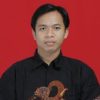
Adhi Agus Oktaviana is a researcher at Pusat Penelitian Arkeologi Nasional (the National Archaeological Research Center), Ministry of Education and Culture, in Indonesia. He is currently a Ph.D. candidate at Griffith University in Queensland, Australia. Oktaviana’s research focuses on ancient rock art in Indonesia.
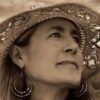
Adrie Kusserow is a medical and psychological anthropologist whose research and teaching focus on refugee health and healing. She received her Ph.D. from Harvard University and her M.T.S. from Harvard Divinity School. Kusserow is the author of American Individualisms, Hunting Down the Monk, Refuge, and The Trauma Mantras: A Memoir in Prose Poems. She works with Afghan refugee resettlement in Burlington, Vermont, where she teaches at St. Michael’s College.
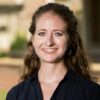
Adrienne Strong is a Ph.D. candidate in anthropology at Washington University in St. Louis and the University of Amsterdam. Her research focuses on maternal mortality in health facilities in the Rukwa region of Tanzania and on the ways in which history, political economics, and the social environments of institutions come together to influence maternal health. She is also interested in respectful maternity care and health system financing. Her research has been supported by the Fulbright Program, the National Science Foundation, and the P.E.O. Sisterhood. Follow her on Twitter @AdrienneStrong.
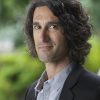
Agustín Fuentes is a professor of anthropology at Princeton University. He focuses on the biosocial, delving into the entanglement of biological systems with the social and cultural lives of humans, our ancestors, and a few other animals with whom humanity shares close relations. Earning his B.A./B.S. in anthropology and zoology and his M.A. and Ph.D. in anthropology from the University of California, Berkeley, he has conducted research across four continents, multiple species, and 2 million years of human history. His current projects include exploring cooperation, creativity, and belief in human evolution, multispecies anthropologies, evolutionary theory and processes, sex/gender, and engaging race and racism. Fuentes’ books include Race, Monogamy, and Other Lies They Told You: Busting Myths About Human Nature, The Creative Spark: How Imagination Made Humans Exceptional, and Why We Believe: Evolution and the Human Way of Being.

AJ Kluck (they/them/čniłč) is an interdisciplinary artist living in Mohkínstsis, Treaty 7 in Alberta, Canada. Their mother is Irish, and their father is sqilxʷ. Kluck’s practice is rooted in building slow and gentle relationships with the land and community, healing intergenerational trauma, processing their identity as a sk̓ʷsk̓ʷtmsqiltk (half-blood) person, and celebrating and reconnecting with sylix ways of being and knowing. Kluck is currently studying sculpture at the Alberta University of the Arts.
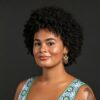
Aja Lans is a postdoctoral researcher at Harvard University as part of the Inequality in America Initiative. She completed her Ph.D. in anthropology and cultural heritage preservation at Syracuse University with funding from the Ford Foundation and the Smithsonian Institution. Her research integrates Black feminist and critical race theory with bioarchaeological investigations. Lans is also interested in museum collections, the objectification of human remains, and the history of race. She is investigating the remains of Black people curated in Harvard University’s Peabody Museum with support from the Wenner-Gren Foundation. Outside of the academy, she consults as a bioarchaeologist on cultural resource management projects in New York City. Follow her on Twitter @aja_lans.

Alan Goodman, a professor of biological anthropology at Hampshire College in Amherst, Massachusetts, writes on the health consequences of poverty, inequality, and racism. He received his Ph.D. from the University of Massachusetts, Amherst, and was a postdoctoral fellow in international nutrition at the Salvador Zubirán National Institute of Health Sciences and Nutrition in Mexico, and a research fellow in stress physiology at the Karolinska Institute, Sweden. Goodman is the editor or author of eight books, including Race: Are We So Different? (with Yolanda Moses and Joseph Jones), Building a New Biocultural Synthesis (with Thomas Leatherman), and Nutritional Anthropology (with Darna Dufour and Gretel Pelto). He was the vice president for academic affairs and a past president of the American Anthropological Association, where he co-directs its public education project on race. (Author photo courtesy of Neil Stillings.) Follow him on Twitter @AHGoodman18.

Alan Sandstrom is a professor emeritus of anthropology at Purdue University, Fort Wayne. He is the author of Corn Is Our Blood: Culture and Ethnic Identity in a Contemporary Aztec Indian Village and a co-author of Pilgrimage to Broken Mountain: Nahua Sacred Journeys in Mexico’s Huasteca Veracruzana, Traditional Papermaking and Paper Cult Figures of Mexico (both with Pamela Effrein Sandstrom), and Ethnic Identity in Nahua Mesoamerica (with Frances Berdan and others). He is also a co-editor of three collected works on Mesoamerican healers, Indigenous peoples of the Gulf Coast of Mexico, and the anthropology of Protestantism in Mexico and Central America, and a past editor of the Nahua Newsletter. He researches cultural ecology, cultural materialism, economic anthropology, the history and theory of anthropology, and Mesoamerican religion and ritual.

Alessandra Prunotto is an early career researcher with an interest in urban space, mobilities, climate change adaptation, and public health. She earned a bachelor’s in anthropology from the University of Melbourne, Australia, and currently works in a market and social research company. Prunotto is the secretary of the Australian Network of Student Anthropologists and advocates for greater commitment to public anthropology.

Alex Hinton is a distinguished professor of anthropology, the director of the Center for the Study of Genocide and Human Rights, and the UNESCO chair in genocide prevention at Rutgers University. He is the award-winning author or editor of 17 books, including, most recently, It Can Happen Here: White Power and the Rising Threat of Genocide in the U.S., Anthropological Witness: Lessons From the Khmer Rouge Tribunal, and Perpetrators: Encountering Humanity’s Dark Side (with Antonius C.G.M. Robben). Hinton is the recipient of the American Anthropological Association’s 2009 Robert B. Textor and Family Prize for Excellence in Anticipatory Anthropology and 2022 Anthropology in Media Award. In 2016, he testified as an expert witness at the Khmer Rouge tribunal in Cambodia. Follow him on Twitter at @AlexLHinton.

Alex Nelson is a sociocultural anthropologist who studies transformations in gender and intimacy in South Korea and the ethnology of romantic love. He received his Ph.D. from the University of Nevada, Las Vegas, and is an adjunct assistant professor at Appalachian State University in North Carolina. Nelson is also engaged in collaborative interdisciplinary research on commercial sexual economies, including the Erotic Entrepreneurs Project, a study of the business and safety strategies of erotic escorts in the U.S., and the Virtual Sexual Economies Project, a study of ethno-erotic economies and racial inequalities in the webcam modeling industry. Follow him on Twitter @alexjnelson.
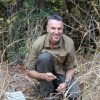
Alexander Piel is a lecturer in anthropology at University College London, focusing on primate behavior and ecology. He has worked in West and East Africa, and is currently co-directing with Fiona Stewart the Greater Mahale Ecosystem Research and Conservation project, based in western Tanzania. Piel’s specific interests center on primate vocalization behavior and overall primate adaptations to a savanna-woodland environment.

Alexander S. Dent is the chair of the anthropology department at George Washington University. He is a linguistic anthropologist who studies mediation, intellectual property, music, and authoritarianism in Brazil and the United States. His first book, River of Tears: Country Music, Memory, and Modernity in Brazil, analyzed rural public culture in Brazil from 1998–2009. His second book, Digital Pirates: Policing Intellectual Property in Brazil, analyzes digital media piracy and capitalism. Dent is currently working on a history of early punk rock in Brazil and is collaborating with Joshua A. Bell and Joel C. Kuipers on a study funded by the National Science Foundation on teenage cellphone use in Washington, D.C. He is also in a practicing band called Weird Babies.

Alexander Werth teaches biology, anthropology, and writing at Hampden-Sydney College in Virginia. He studied zoology, anthropology, and philosophy at Duke University, then earned a Ph.D. in organismic and evolutionary biology from Harvard University, with a focus on mammalian anatomy. Werth conducted research at the Duke Primate (now Lemur) Center and the New England Regional Primate Center. His research also focuses on marine mammal functional morphology (specifically feeding in toothed and baleen whales) and the evolution of complex structures. His scholarly work has been published in many peer-reviewed journals and highlighted in popular media. He is currently writing a book about the perils of teleological thinking.

Alexandra Brewis studies how stigma and other forms of social exclusion shape human biology, with a special focus on the health challenges of obesity and climate change. Her books include Obesity: Cultural and Biocultural Perspectives. She received her Ph.D. in anthropology from the University of Arizona and now serves as the director of the School of Human Evolution and Social Change at Arizona State University (ASU), where she is also a president’s professor. To leverage social science research in advancing workable and sustainable solutions to local community-identified health challenges, Brewis co-leads the Mayo Clinic–ASU Obesity Solutions initiative. She blogs about stigma (with Amber Wutich) at lazycrazydisgusting.com.

Alexandra Jones, the founder and chief executive officer of Archaeology in the Community, focuses her educational work on community outreach and service. She is currently an assistant professor of archaeology at Goucher College in Maryland. Her B.A. and M.A. are from Howard University, and she earned her Ph.D. in historical archaeology from the University of California, Berkeley, in 2010. In 2013, Jones worked for PBS’ television show Time Team America as the archaeology field school director. She serves on the District of Columbia’s historic preservation review board, on the board of directors for the Society of Black Archaeologists, and on the board of directors for the St. Croix Archaeological Society. She is also an academic trustee for the Archaeological Institute of America.
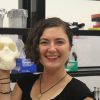
Alexandra Kralick is a Ph.D. student in anthropology at the University of Pennsylvania. She studies the growth and development of sex differences in the great ape and human skeleton in the subdiscipline of biological anthropology. Her previous work is on gorilla dental development and wrist bone shape. Kralick is a National Science Foundation Graduate Research Fellow. She earned her B.S. in biological anthropology from George Washington University. Follow her on Twitter @BioAnthFunFacts.

Alexandra Mack is a senior fellow in Pitney Bowes’ Strategic Technology and Innovation Center. Her work is focused on developing ideas for new products, services, and technologies based on a deep understanding of work practice. She has worked on different projects across business units, bringing user-centered approaches to product development and innovation in health care, retail, software, and financial services industries as well as nonprofits. Prior to coming to Pitney Bowes, Mack worked for a small design consulting firm and also spent several years consulting in marketing and strategic research, combining qualitative and quantitative techniques. She earned a Ph.D. in anthropology from Arizona State University. Follow her on Twitter @lxmack.

Alexandra Woods is a digital art historian and senior lecturer in the department of history and archaeology at Macquarie University in Australia. Woods draws on approaches from anthropology, museum studies, the history of science, and digital humanities to study ancient Egyptian visual culture in archives, media representations, and museum collections. Follow her on Twitter @MQAlexW.

Alicia Colson is an archaeologist and ethnohistorian who collaborates with Indigenous people to understand the ways in which they perceive their pasts. She received her Ph.D. from McGill University and is a research fellow at the University of Central Lancashire in the U.K. and an EC50 with The Explorers Club. Colson is also a co-founding editor of Exploration Revealed and a co-founder of the Institute of Science and Technology’s AI (Artificial Intelligence) Group. She is currently working with George Kenny, an Anishinaabe Knowledge Keeper from Lac Seul First Nation, his son Mike Auksi, and others in the Teaching Circle on a project partially funded by an Engaged Research Grant from the Wenner-Gren Foundation on Animism: An Insider’s View. Follow her on the social platform X @colson_alicia.

Alison Abbott is a science journalist based in Munich, Germany. She contributes regularly to Nature. Follow her on Twitter @Alison_C_Abbott.

Alison Crowther is a senior lecturer in archaeology at The University of Queensland in Australia, where she received her doctoral degree in 2009. Her research interests include the archaeobotany of early agriculture in Africa and the Indo-Pacific, trans-regional maritime trade and crop transfers, and ancient food processing technologies. Crowther’s current research investigates the origins and development of Indian Ocean trade and interaction with a focus on coastal East Africa, where she has conducted extensive fieldwork since 2010 with the Sealinks Project. She has received research funding from the Australian Research Council.

Alison Heller is a medical anthropologist who studies reproductive health and humanitarianism in West Africa. She received her Ph.D. from Washington University in St. Louis and is currently a traveling faculty member for the International Honors Program (IHP)/Comparative Program run by World Learning. Before starting as an assistant professor at the University of Maryland, College Park, she will complete a fellowship at the School for Advanced Research in Santa Fe, New Mexico. Heller’s research has been funded by the Fulbright-Hays Program, the National Science Foundation, and the Wenner-Gren Foundation.
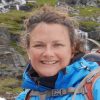
Alison Klevnäs is a mortuary archaeologist based in the department of archaeology and classical studies at Stockholm University in Sweden. She earned her Ph.D. from the University of Cambridge in 2010. Klevnäs is currently leading a project funded by the Swedish Research Council on customs of reopening burials in early medieval Europe. She also serves as a co-editor of Current Swedish Archaeology.
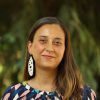
Alison Kyra Carter is an assistant professor of anthropology at the University of Oregon. She is an anthropological archaeologist with an interest in the political economy and evolution of complex societies in Southeast Asia. Carter has been undertaking archaeological research in Cambodia since 2005. Her current project is focused on the Angkorian civilization of Cambodia from the ninth to the 15th centuries. Specifically, she is trying to understand the daily lives of non-elite members of society by studying their households and occupation areas.
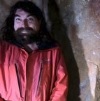
Alistair Pike is a professor of archaeological sciences at the University of Southampton in England.
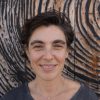
Alla Katsnelson is a freelance science writer and editor based in Northampton, Massachusetts. She writes about biology, medicine, technology, and the methods and tools that power the scientific process. Her work has been published in Nature, Scientific American, BBC Science Focus Magazine, and elsewhere. Follow her on Twitter @lalakat.

Allison Mickel is an assistant professor of anthropology at Lehigh University in Bethlehem, Pennsylvania, and the author of Why Those Who Shovel Are Silent: A History of Local Archaeological Knowledge and Labor. Her research focuses on conditions for locally hired laborers on archaeological excavations, especially in the Middle East. She has excavated in Jordan, Turkey, Kenya, and the U.S. As an activist, Mickel has served in leadership roles for POWER Lehigh Valley, Women’s March Pennsylvania, and Lehigh Valley Stands Up.

Alma Gottlieb is a professor emerita of anthropology, African studies, and gender and women’s studies at the University of Illinois, Urbana-Champaign. Follow her on Twitter @almagottlieb.

Alma Simba is a writer, historian, and experimental sound artist interested in both the potentials and failures of words in capturing the human experience. Her subject matter is ancestral heritage and how Indigenous Black Africans can communicate and explore this history through oral traditions, memory, and imagination. Simba was awarded a B.A. in international history from the London School of Economics and Political Science, and she completed her M.A. in history at the University of Dar es Salaam with a focus on Tanzanian heritage housed in Germany. She was a “Sensitive Provenances” Research Fellow at the University of Göttingen in 2022 and is part of the Ajabu Ajabu audio-visual collection in Dar es Salaam. Follow her on Instagram @aa_noun.

Alyshia Gálvez is a cultural and medical anthropologist and a professor of Latin American and Latino studies at Lehman College of the City University of New York. She is the author of the recent book Eating NAFTA: Trade, Food Policies, and the Destruction of Mexico, which is about changing food policies, systems, and practices in Mexico and Mexican communities in the United States. She was the founding director of the Jaime Lucero Mexican Studies Institute at CUNY and is the author of two previous books on Mexican migration, Patient Citizens, Immigrant Mothers: Mexican Women, Public Prenatal Care, and the Birth Weight Paradox (winner of the 2012 ALLA Book Award from the Association of Latino and Latin American Anthropologists) and Guadalupe in New York: Devotion and the Struggle for Citizenship Rights Among Mexican Immigrants.
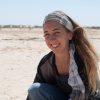
Amaia Arranz-Otaegui is an archaeobotanist who specializes in the late Epipaleolithic and early Neolithic of southwest Asia. Her research focuses on topics such as plant domestication, plant subsistence, vegetation change, and human impact. She has worked extensively in several countries, including Syria, Lebanon, Jordan, and Iran. She completed her Ph.D. at the University of the Basque Country in Spain in 2015, and she is currently a postdoctoral researcher at the University of Copenhagen in Denmark.

Amanda Grace Santos is an archaeologist working with the Continental Divide Trail Coalition in Santa Fe, New Mexico. She received her master’s in archaeology from Boston University. Her research interests include landscape archaeology, place-based pedagogy, public archaeology, and social resistance in ancient Roman provinces. Through her research, she hopes to understand the physical manifestations of community across cultures and time. Santos is also passionate about conservation education, climate justice, trains, and literature as a form of resistance to governments, social frameworks, and more.

Amanda J. Guzmán is a Ph.D. candidate in anthropology at the University of California, Berkeley. She graduated from Harvard University with a B.A. in archaeology and minors in Latin American history and the Spanish language. Her dissertation project focuses on a range of major museums to analyze the history of North American museum collecting in, and representations of, Puerto Rico. In the context of Puerto Rico’s current environmental and economic uncertainty, her dissertation critically traces understudied museum acquisition narratives documenting the island’s material relations with the U.S. mainland. Guzmán’s research has been supported by the Smithsonian Institution’s Summer Institute in Museum Anthropology, a Smithsonian Institution graduate student fellowship, a Smithsonian Institution predoctoral student fellowship, and the Mellon Mays graduate initiatives program. She is the author of the recently published Museum Anthropology article, “Collecting the Puerto Rican Colony: Spanish-American War Material Encounters Between Officer-Wives and Puerto Ricans.”

Prior to becoming the managing editor of SAPIENS in May 2015, Amanda Mascarelli spent more than a decade as a freelance science journalist. She has written about oil spills, autism, the neuroscience of magic, the biological complexity of sex and gender, and many other topics, and her reporting has taken her around the world. Her work appears in Audubon, Nature, Science, Science News for Students, The Los Angeles Times, The New York Times, The Washington Post, and elsewhere. Mascarelli earned an undergraduate degree in biology and a master’s in journalism, and spent several years doing biology research before becoming a writer and editor. She lives with her husband and three children in Denver, Colorado.

Amanda Votta is a Ph.D. candidate in anthropology at Brown University in Rhode Island. She received her M.A. from Brandeis University in 2019. Her work explores the effects of opioid prescribing changes on chronic pain sufferers and conceptions of drug use and dependence in the U.S. Votta aims to add nuance to understandings of dependence and to current perceptions of the medical and nonmedical use of opioids in North America.

Amber Dance is an award-winning freelance science journalist based in Southern California. She earned a Ph.D. in biology from the University of California, San Diego, before retraining as a journalist at the University of California, Santa Cruz. She enjoys covering topics beyond her life-sciences comfort zone and contributes to a variety of publications. Follow her on Twitter @amberldance.

Amber Wutich is the director of the Center for Global Health at Arizona State University and a faculty member in the university’s anthropology program. She received her Ph.D. from the University of Florida. Her research examines institutional injustice and health disparities, with a focus on water and food. Wutich directs the Global Ethnohydrology Study, a cross-cultural study of water knowledge and institutions in 10 countries. Her teaching has been recognized with the Arizona Professor of the Year Award, which is sponsored by the Council for Advancement and Support of Education and the Carnegie Foundation for the Advancement of Teaching. She serves as the associate editor of Field Methods and teaches in the National Science Foundation’s programs in research methods in anthropology. She blogs (with Alexandra Brewis Slade) at lazycrazydisgusting.com. Follow her on Twitter @awutich.
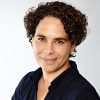
Amira Mittermaier is an anthropologist who studies Islam in Egypt. She received her Ph.D. from Columbia University and is currently an associate professor in religious studies and anthropology at the University of Toronto. She is the author of the award-winning book Dreams That Matter: Egyptian Landscapes of the Imagination. Currently she is working on a project, funded by the Wenner-Gren Foundation and the Social Sciences and Humanities Research Council, that examines Islamic practices of giving against the backdrop of the 2011 Egyptian uprising and its aftermath.

Amy Hanes is a doctoral candidate in cultural anthropology at Brandeis University. She studies care between species—namely humans and orphaned chimpanzees—in primate sanctuaries in Cameroon. Touch, race, morality, and postcolonial theory are central themes in her work. Her research in Cameroon was funded by a Wenner-Gren Foundation Dissertation Fieldwork Grant. Hanes is a 2018 Charlotte W. Newcombe Doctoral Dissertation Fellow. Follow her on Twitter @AmyHanes7.

Amy Holmes-Tagchungdarpa teaches religious studies and Asian studies at Occidental College in Los Angeles. Originally from Aotearoa, she works on Buddhist material culture in the Himalayas.

Amy Mosig Way is an Australian archaeologist who supports community-driven archaeological projects. She is a stone artifact specialist who studies the richness of past human behavior through high-resolution lithic analysis. Way holds a joint position with the Australian Museum and University of Sydney.

Amy Starecheski is a cultural anthropologist and oral historian whose research focuses on the use of oral history in social movements and the politics of urban property. She is the co-director of the oral history master of arts program at Columbia University. She received a Ph.D. in cultural anthropology from the City University of New York’s Graduate Center, where she was a public humanities fellow. She is the author of Ours to Lose: When Squatters Became Homeowners in New York City and is currently working on a public sound-art project about the Lower East Side using oral histories with squatters.
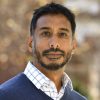
Anand Pandian is a professor of anthropology at Johns Hopkins University. His recent books include A Possible Anthropology: Methods for Uneasy Times and Crumpled Paper Boat: Experiments in Ethnographic Writing. Pandian is working on a new book about indifference in contemporary American life—the everyday arrangements that allow cruelty to harbor in the most banal of circumstances. Follow him on Twitter @anandspandian. Any views stated on this site are Pandian’s own and do not express the position or views of Johns Hopkins University.
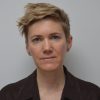
Anastasia Riehl is a linguist with a Ph.D. from Cornell University. She is currently the director of the Strathy Language Unit at Queen’s University in Kingston, Ontario, Canada. Her work with endangered languages has taken her to Indonesia and Vanuatu, as well as to the city of Toronto, where she directs a project to document the endangered heritage languages of immigrant communities.
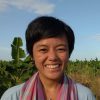
Andrea Malaya M. Ragragio is an anthropologist and archaeologist who works with Manobo communities in the Pantaron mountain range, southern Mindanao, the Philippines. She is a faculty member of the department of social sciences at the University of the Philippines in Mindanao and is a Ph.D. candidate at the Institute of Cultural Anthropology and Development Sociology at Leiden University. In 2018, Ragragio received an Early Career Grant from the National Geographic Society to study Manobo tattooing. Follow her on Twitter @AMRagragio.

Andrew Curry is a journalist based in Berlin, Germany. He covers science, history, culture, and politics (pretty much in that order) for a wide variety of publications, including Archaeology, National Geographic, Science, and Wired. His work has been included in The Best American Science and Nature Writing anthologies and awarded prizes by the German Foreign Ministry. He recently lost his glasses while bodysurfing in the Pacific Ocean and was optimistic enough to look for them on the beach the next morning, just in case.
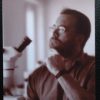
Andrew Fairbairn is a professor of archaeology at the University of Queensland in Australia. He specializes in ancient agriculture, human landscape change, and plant economies, and has worked in Europe, Southwest Asia, and the Australia-Pacific region.
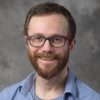
Andrew Flachs researches food and agriculture systems, exploring genetically modified crops, heirloom seeds, and our own microbiomes. An assistant professor of anthropology at Purdue University in Indiana, his work among farmers in the American Midwest, the Balkans, and South India investigates ecological knowledge and technological change in agricultural systems spanning Cleveland urban gardens and Indian genetically modified cotton fields. He is the author of Cultivating Knowledge: Biotechnology, Sustainability, and the Human Cost of Cotton Capitalism in India and is a co-editor of the journal Ethnobiology Letters. Follow him on Twitter @drflachsophone.

Andrew Ofstehage completed his Ph.D. in anthropology at the University of North Carolina, Chapel Hill, in 2018. His training engages agronomy and anthropology, and his research on transnational soybean farmers in Brazil focuses on themes of work, land, and value. Ofstehage is currently a postdoctoral associate in development sociology at Cornell University, where he is pursuing research on the socio-material life of soil and agriculture.
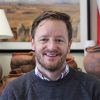
Andrew Roddick is an associate professor of anthropology at McMaster University. He has worked in the Bolivian highlands for 15 years, conducting archaeological research principally focused on the Tiwanaku civilization and its precursors. Roddick is currently working on the Challapata Project, among others, an effort that investigates ancient villages in the eastern Lake Titicaca basin. He is also directing an ethnoarchaeological project with highland Bolivian contemporary potters. Roddick recently co-edited two books, Knowledge in Motion: Making Communities and Constellations of Practice Across Time and Place (with Ann B. Stahl) and Constructions of Time and History in the Pre-Columbian Andes (with Edward Swenson).

Ang Dolma Sherpa is a social entrepreneur who won the top “ideator” award at Idea Studio Nepal 2019 for her concept of biodegradable khatak, or scarves. The platform led her to initiate Utpala Craft in 2020, creating a shift from synthetic prayer flags and khatak to biodegradable ones.

Angela Garcia is a Ph.D. candidate and graduate researcher in biological anthropology at the University of California, Santa Barbara (UCSB). She holds a B.A. in sociology from Wayne State University in Detroit, Michigan, and an M.A. in biological anthropology from UCSB. Her research uses evolutionary and biocultural approaches to explain social disparities in health. Her dissertation looks at the interplay of social and biological factors on disease risk among immigrants on the island of Utila, Honduras. She is the author of a manuscript (in press) that focuses on the relationship between perceived socioeconomic status and diurnal cortisol levels in people who live on Utila.
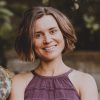
Anita Hannig is an anthropologist who studies illness, death, and dying from a cultural perspective. She is an associate professor at Brandeis University, where she teaches classes on medicine, religion, and the end of life. Her most recent book, The Day I Die: The Untold Story of Assisted Dying in America, investigates how medical assistance in dying is transforming the ways people in the U.S. die. Her writing has appeared in Cognoscenti, The Conversation, and The Seattle Times, among other publications.

Ann McGrath is director of the Australian Centre for Indigenous History at the Australian National University. She researches gender and colonialism in the United States and Australia. She wrote How to Write History That People Want to Read (with Ann Curthoys) and the prize-winning ‘Born in the Cattle’: Aborigines in Cattle Country. She co-directed the film Message From Mungo (with Andrew Pike) and edited Long History, Deep Time: Deepening Histories of Place (with Mary Anne Jebb). Her latest book, published in 2015, is Illicit Love: Interracial Sex and Marriage in the United States and Australia. Follow her on Twitter @annmcgrath5.

Anna Antoniou is an anthropologist and archaeologist who draws on a mix of storytelling and four-field methods to help communities across the globe regain crucial parts of their cultural heritage. As a Cypriot American, she brought her academic interests home through a 400-mile ethnographic walk around Cyprus that explored the cultural and political dynamics of the division on the island. Her current research uses an archaeological understanding of past foodways to serve Indigenous communities in Washington state in their efforts to revitalize traditional foodways. She received her Ph.D. from the University of Michigan and is the 2021–2022 Andrew W. Mellon Foundation Native American Scholars Initiative postdoctoral fellow at the American Philosophical Society.

Anna Florin is a postdoctoral research fellow at St John’s College, Cambridge, and the McDonald Institute for Archaeological Research, University of Cambridge. She is also an associate investigator at the ARC Centre of Excellence for Australian Biodiversity and Heritage, University of Wollongong. Florin studies charred food scraps from ancient fireplaces to understand the diets of people in the past. Her Ph.D. research focused on archaeobotanical analysis at Madjedbebe, a 65,000-year-old site on Mirarr Country in Northern Australia. She is researching the role of plant foods in early human migrations out of Africa and the complexity of long-term human-plant interactions within Indigenous communities in Australia, New Guinea, and Island Southeast Asia.


Anna L. Jordan is a psychological anthropologist whose areas of interest include subjectivity and identity, ethics and morality, and power and inequality. She is a program manager for Imoyase Community Support Services, a nonprofit organization committed to community-based participatory action research, where she evaluates alternatives to youth incarceration. While earning her Ph.D. from Washington State University, she studied psychocultural experiences of morality in the U.S. criminal legal system through ethnographic fieldwork with formerly incarcerated people and former gang members in Los Angeles. Jordan is a founding member of the nonprofit CURE California, which is dedicated to criminal justice reform.

Anna Lakó is an ethnographic photographer with an interest in Transylvanian minority groups. She is an undergraduate double majoring in cinematography, photography, and media, and ethnography at Babes-Bolyai University in Cluj Napoca, Romania.
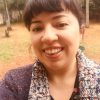
Anna Luisa Daigneault is a linguistic anthropologist, a researcher, a writer, and an artist. She holds an M.Sc. in linguistic anthropology from Université de Montréal. She currently resides in the United States and serves as the program director for the Living Tongues Institute for Endangered Languages. Daigneault has conducted ethnolinguistic fieldwork throughout the Americas and in the Pacific Islands, and has contributed to the publication of more than 30 online Talking Dictionaries for endangered and minority languages around the world. She has been published by The Dominion, Global Voices, and SAPIENS. Follow her on Twitter @anna_daigneault and @livingtongues.

Annah Zhu is a political ecologist who studies conservation and development in Madagascar from an ethnographic perspective. Her work, informed by the fields of anthropology, geography, and environmental studies, focuses specifically on Madagascar’s trade in natural resources with China. She is currently a Ph.D. candidate at the University of California, Berkeley, and she holds an M.A. from Duke University. In May, American Ethnologist published her most recent article, “Hot Money, Cold Beer: Navigating the Vanilla and Rosewood Export Economies in Northeastern Madagascar.”

Annalisa Bolin is a postdoctoral fellow in the UNESCO Chair on Heritage Futures at Linnaeus University in Sweden. Her research focuses on the ethics and politics of cultural heritage, especially in Rwanda. Her most recent projects include a study of community relations to heritage resources in Nyanza District (with David Nkusi) and an investigation of how heritage mediates the postcolonial relationship between Rwanda and Germany. Bolin has a Ph.D. in anthropology from Stanford University. Follow her on Twitter @bolinresearch.
Annelies Moors is an anthropologist at the University of Amsterdam and the principal investigator of the European Research Council advanced grant “Problematizing ‘Muslim Marriages’: Ambiguities and Contestations.”

Annemieke Milks is an honorary research fellow at the Institute of Archaeology at University College London. Her research is centered on the archaeology of Pleistocene humans, and, in particular, subsistence behaviors and technologies. Milks’ expertise is in hunting technologies, with a specific focus on the use of wood. She has conducted experimental work on the ballistics of early weapons in collaboration with Cranfield Defence and Security, the Defense Academy of the U.K., and Loughborough University.

Annie Tucker received her Ph.D. from the University of California, Los Angeles, where she designed and taught new classes on autism and neurodiversity for the disability studies minor. She is a researcher and writer for Elemental Productions and is an award-winning translator of Indonesian literature. Her most recent co-authored book is Widening the Frame With Visual Psychological Anthropology: Perspectives on Trauma, Gendered Violence, and Stigma in Indonesia (with Robert Lemelson). Tucker and Lemelson are currently working on a book exploring autism in Indonesia through the lens of visual psychological anthropology.

Anthony Sinclair is a professor of archaeological theory and method in the archaeology, classics, and Egyptology department at the University of Liverpool in the U.K. He conducts research into the archaeological record of the first modern humans and their immediate ancestors, and has conducted field research in Western Europe, Southern Africa, and Arabia. Sinclair is currently working on a large-scale scientometric study of archaeology and its relationship to cognate disciplines between 1960 and 2020 using bibliometric data and science mapping.

Antonio Montañés Jiménez is a non-Rroma Spanish anthropologist and sociologist with an interest in the study of Rroma people, Christianity, and social movements. He is a Margarita Salas postdoctoral fellow affiliated with the School of Anthropology and Museum Ethnography at the University of Oxford and a member of St. Antony’s College, Oxford. Previously, he held an Economic and Social Research Council postdoctoral fellowship at the University of St. Andrews.

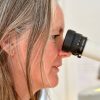
Aoife Daly is the principal investigator of the project Northern Europe’s Timber Resource—Chronology, Origin, and Exploitation. This project builds a multidisciplinary team to analyze the material and written evidence for timber usage over six centuries (1100–1700). The region of origin of timber is being analyzed using several scientific methods, some of which are experimental. Identifying the timber source and the timber destination and using the high precision dating that dendrochronology provides, she studies the changes, through time, in the availability and exploitation of this essential resource.
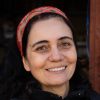
Aparecida Vilaça is a professor of social anthropology at the National Museum, Federal University of Rio de Janeiro in Brazil. She has come and gone among the Wari’ people in Amazonia since 1986. Among other books, she is the author of Strange Enemies: Indigenous Agency and Scenes of Encounters in Amazonia, Praying and Preying: Christianity in Indigenous Amazonia, and Paletó and Me: Memories of My Indigenous Father. Vilaça is also a co-editor of Science in the Forest, Science in the Past (with Geoffrey Lloyd). Like many Brazilian anthropologists, she is dedicated to the continual fight for the protection of Indigenous peoples’ rights in Amazonia.

April Nowell received her Ph.D. from the University of Pennsylvania. She is a Paleolithic archaeologist and a professor of anthropology at the University of Victoria in Canada. Currently, she directs an international team of researchers in the study of Lower and Middle Paleolithic sites in Jordan, and is known for her publications on cognitive archaeology, the archaeology of children, Paleolithic art, and the relationship between science, pop culture, and the media. She is a co-editor of Stone Tools and the Evolution of Human Cognition (with Iain Davidson) and Archaeology of the Night: Life After Dark in the Ancient World (with Nancy Gonlin). Watch her TEDx talk: “Paleo Porn.”

April Zhu is a freelance journalist and writer based in Nairobi, Kenya, and a senior editor at Guernica magazine. She is also the producer of Until Everyone Is Free, a Sheng’ (Kenya’s urban patois) podcast on the life and work of Goan-Kenyan socialist and freedom fighter Pio Gama Pinto.

Arba Bekteshi is an urban anthropologist, cultural researcher, and artist. Her work focuses on changing urban landscapes, negotiations of public and private spaces, citizen agency, and understandings of immanence in documentary film. Bekteshi uses multimodal and sensory ethnography, psychogeography, cartography, and other forms of arts-based research to engage with the ethnographic field. She holds an M.A. in the anthropology of development and social transformation from the University of Sussex, an M.A. in international communication from IULM University in Italy, and an M.Sc. in archaeology from the University of Tirana. She teaches part-time at the University of Tirana.

Ariel Sophia Bardi is a multimedia journalist and researcher based in South Asia. Her work has appeared in BBC, The Guardian, Slate, Roads & Kingdoms, The Atlantic, Buzzfeed, Quartz, and Vice.

Ariel Taivalkoski teaches at Stockton University in New Jersey and is the avifaunal analyst for the Unalaska Sea Ice Project at Boston University. She examines long-term human-environment dynamics, with interests in experimental archaeology, paleopathology, and ethno-ornithology. Taivalkoski’s current research focuses on the relationship between the ancestral people of the Aleutian Islands, the ancestral Unangax̂, and animals. Her work has been published in peer-reviewed journals, and she maintains the Aleutian Zooarchaeology Group blog.
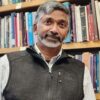
.

Ashvina Patel is a doctoral candidate in the anthropology department at Southern Methodist University. She recently concluded an ethnographic study of three urban refugee settlements in New Delhi, India, to understand how issues of geopolitics and domestic policy inform various types of human insecurity for refugees. She is currently a visiting student fellow at Oxford University’s Refugee Studies Centre, where she is developing further publications on Rohingya refugee displacement.

Astrid A. Noterman has been affiliated with Sweden’s Stockholm University as part of a project funded by the Swedish Research Council titled “Interacting With the Dead: Belief and Conflict in Early Medieval Europe,” led by Alison Klevnäs. Noterman’s ongoing research centers on early medieval grave reopening, Merovingian historiography, and 19th-century archaeology and its implications for the construction of French identity. She is also a collaborative member of the Center for Medieval Studies, a mixed research unit managed by the University of Poitiers and the Centre national de la recherche scientifique.

Ather Zia is a political anthropologist, poet, short fiction writer, and columnist. She is an associate professor in the department of anthropology and the gender studies program at the University of Northern Colorado, Greeley. Zia is the founder-editor of Kashmir Lit and the co-founder of Critical Kashmir Studies Collective. She is also a co-editor of Cultural Anthropology. She is the author of Resisting Disappearances: Military Occupation and Women’s Activism in Kashmir, which won the 2020 Gloria E. Anzaldúa Honorable Mention Award, 2021 Public Anthropologist Award, and Advocate of the Year Award 2021. And she is a co-editor of Can You Hear Kashmiri Women Speak? (with Nitasha Kaul), Resisting Occupation in Kashmir (with Haley Duschinski, Mona Bhan, and Cynthia Mahmood), and A Desolation Called Peace (with Javaid Iqbal Bhat). Zia has published a poetry collection titled The Frame, and her ethnographic poetry won an award from the Society for Humanistic Anthropology and was featured as a SAPIENS poetry contest winner in 2020.

Augusta X. Thomson is a Ph.D. candidate in anthropology at New York University, where she is currently working on a Fulbright-supported dissertation project along the Camino de Santiago in Spain. Her ethnographic fieldwork has been supported by The Council for European Studies, the SVA/Robert Lemelson Foundation Fellowship Program, Fulbright, and the Wenner-Gren Foundation. Thomson is the director of Nine-Story Mountain, a documentary/autoethnographic record of a pilgrimage to and around Mount Kailash in the far west of Tibet, and flotsam, a short film about the haunted Flatbush shoreline of Dead Horse Bay. She has written for Religion and Politics, The Daily Beast, Women in the World, HuffPost, Al Jazeera English, The New Internationalist, and Wellesley Magazine, among other publications.
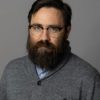
Austin “Chad” Hill is an archaeologist whose research focuses on the Neolithic, Chalcolithic, and Early Bronze Age periods of the Near East, with specializations in remote sensing, GIS, advanced image processing, and faunal analysis. He is a postdoctoral fellow in the Penn Paleoecology Lab in the department of anthropology at the University of Pennsylvania and a visiting scholar in the Spatial Archaeometry Lab in the department of anthropology at Dartmouth College. He is a co-director of the National Science Foundation-funded Kites in Context project. Follow him on Twitter @Achiii.

Ayesha Fuentes is an objects conservator and material historian specializing in the care of archaeological and ethnographic collections. She is a graduate of the UCLA/Getty master’s program in the conservation of cultural heritage, and she earned a Ph.D. from SOAS University of London, where she wrote her dissertation on the use of human remains in Tibetan and Himalayan ritual objects. Fuentes is the Isaac Newton Trust Research Associate in Conservation at the University of Cambridge Museum of Archaeology and Anthropology.
Aysha Navest holds an M.A. in Middle Eastern Studies (with a specialization in Arabic) from the University of Amsterdam, and she is an independent researcher.
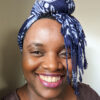
Azuka Nzegwu holds a Ph.D. in philosophy, interpretation, and culture from Binghamton University. Her research focused on virtual whirlpools as new sites of knowledge that are reshaping the old politics of knowledge production. Nzegwu also explores how ancient spirituality can assist us in dealing with the ups and downs of our lives. She draws on the principles of African spirituality to inform her work. To that end, she guest edited two special issues on the African-based practices of Vodou and Santeria in the Americas for the peer-reviewed publications Journal on African Philosophy and JENdA: A Journal of Culture and African Women Studies. She interviewed practitioners about their personal journey, growth, and insights. The interviews add to a growing body of research that debunks assumptions and stereotypes about African spirituality. Nzegwu hopes to combine her training and spiritual insights to bring about positive change in the world.
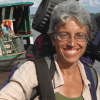
Barbara Fraser is a freelance journalist from the United States who has lived in Peru for more than 25 years. She specializes in issues related to the environment, public health, and Indigenous peoples. Her work has appeared in Nature, Science, EcoAméricas, Environmental Health News, The Daily Climate, The Lancet, Mongabay, and other publications.
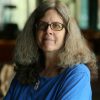
Barbara J. King is an anthropologist emerita at William & Mary. She is the author of How Animals Grieve and a TED talk speaker on animal love and grief.

Barry Yeoman is a freelance journalist living in Durham, North Carolina, who specializes in putting a human face on complex social issues. His articles have appeared in Popular Science, Audubon, The Saturday Evening Post, Parade, The American Prospect, and many other publications, and he is the author of The Gutbucket King, a multimedia narrative about the New Orleans bluesman Little Freddie King.
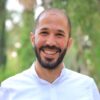
Basil Farraj is a Palestinian anthropologist researching violence, torture, and resistance in Palestine and beyond. He is an assistant professor in the department of philosophy and cultural studies at Birzeit University, Palestine. Basil has published on topics related to carcerality and conducted research in several countries, including Chile, Colombia, and Palestine. He is working on a research project funded by the Arab Council for the Social Sciences that explores the global circulation of carceral policies and practices. Follow him on X, formerly Twitter, @basilafarraj.
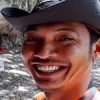
Basran Burhan is a freelance archaeologist and Ph.D. candidate at Griffith University in Queensland, Australia. He is interested in the modern human dispersal through Wallacea, the oceanic islands lying east of continental Asia. Burhan’s research speciality is in geo-archaeology.
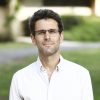
Ben Belek is a social and medical anthropologist. He holds a Ph.D. in social anthropology from the University of Cambridge and an M.Sc. in medical sociology and anthropology from the University of Amsterdam. His research projects have focused on questions concerning subjectivity, activism, and the ontological status of neurological diversity among autistic adults in the U.K. In another project, he engaged with the shifting values of blood constituents in the Israeli blood economy. Belek is currently involved in sustainable policy design, acting as impact manager for the Israel Society of Ecology and Environmental Sciences.
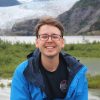
Ben Bridges is a dual Ph.D. candidate in folklore and anthropology at Indiana University. His dissertation focuses on the intersection of traditional Alaska Native arts, environmental change, and harvesting regulations in Southeast Alaska. Bridges currently serves as a visiting scholar with the Sealaska Heritage Institute in Juneau. Follow him on Instagram @benbridges81.

Ben Leeming is chair of history at The Rivers School, a private high school outside of Boston, Massachusetts, where he has been a member of the faculty since 1996. Since completing his Ph.D. in anthropology, Leeming has also worked as a practicing ethnohistorian whose independent scholarship focuses on early colonial Mexico and the missionary Nahuatl writings of Franciscans and Nahuas who produced the earliest translations of Christianity in the Americas. In 2020, Leeming was awarded an NEH Fellowship to translate an early collection of Nahuatl sermons written in the 1540s by a team of Nahua scholars under the direction of eminent Franciscan friar Bernardino de Sahagún.
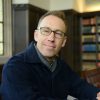
Ben Marwick is an associate professor of archaeology at the University of Washington, where he also supervises the geoarchaeology laboratory. His main research activities combine models from evolutionary ecology with analyses of archaeological evidence to investigate past human behavior.
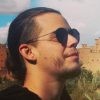
Ben Thomas is the author of several books, a producer of a range of documentaries, and a globe-trotting journalist covering culture, history, and science. He specializes in telling stories from the frontiers of science, history, culture, and geography—and the ways in which all these things come together.

Beni Sumer Yanthan (Yanbeni) is an Indigenous tribal scholar from Nagaland, India. She is an assistant professor of English and cultural studies at Nagaland University. Her areas of specialization include the study of oral tradition, language studies, and the vernacular literature of Nagaland. In addition to poetry, she writes essays, short stories, and book reviews. Her work has been featured in The Bangalore Review, The Bombay Literary Magazine, Outlook India, and Raiot, among other publications.
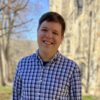
Benjamin Hollenbach is a sociocultural anthropologist whose research focuses on the intersections of queerness, inclusive practice, and Christian churches in the United States. He earned his Ph.D. from the department of anthropology at the University of Michigan, Ann Arbor, where he is now a lecturer. With funding from the Wenner-Gren Foundation, he conducted more than two years of ethnographic fieldwork in queer-affirming congregations in Michigan, exploring how LGBTQ+ Christians advocate for themselves in church settings.

Benjamin Schoville is a research fellow in the Centre for Heritage and Culture at the University of Southern Queensland, Australia, and previously was a lecturer in archaeology at the University of Queensland. He held a Centre of Excellence in Palaeosciences postdoctoral fellowship at the University of Cape Town, South Africa, after receiving his Ph.D. from Arizona State University. Through field excavations and rigorous experimental studies, his research has led to major discoveries of stone-tipped spears from 500,000 years ago and complex stone tool technologies from 72,000 years ago. Schoville’s current project explores the southern Kalahari Basin for early modern human archaeological and paleoanthropological remains and includes excavations at middle Stone Age sites at Ga-Mohana Hill and on the Tswalu Kalahari Reserve.
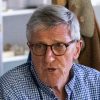
Bernard Wood is the University Professor of Human Origins at George Washington University. He is the author or a co-author of 20 books ranging from a 1991 door-stopper monograph on the hominid cranial remains from Koobi Fora to the nontechnical Human Evolution: A Very Short Introduction. Wood also authored more than 240 scientific articles and book chapters, and a slew of commentaries in Nature and other journals. His research interests are taxonomy, phylogeny reconstruction, and comparative morphology. He is an honorary fellow of the Royal College of Surgeons of England.

Beth L. Leech is a professor of political science at Rutgers University in New Brunswick, New Jersey. Her research and teaching focus on interest groups and social movements and how those organizations form, cooperate, and compete in the public policy process. Leech received her Ph.D. from Texas A&M University. She is the author of Lobbyists at Work and a co-author of the books Basic Interests: The Importance of Groups in Politics and in Political Science (with Frank R. Baumgartner), Lobbying and Policy Change: Who Wins, Who Loses, and Why (with Frank R. Baumgartner, Jeffrey M. Berry, Marie Hojnacki, and David C. Kimball), and Meeting at Grand Central: Understanding the Social and Evolutionary Roots of Cooperation (with Lee Cronk). Her current project, funded by the Economic and Social Research Council, is a comparative study of the policy agendas of interest groups and the public in four Western democracies.
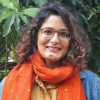
Bhoomika Joshi is a doctoral candidate in anthropology at Yale University. Her dissertation research examines the attachments of love, hurt, and mobility in the making of a region and its critical demography in the Indian Himalayas. She is the author of the recently published Hindi novel Lachchhi: The Newness of Nostalgia. Follow her on Twitter @bhoomikajoshi.

Bilinda Straight is a cultural anthropologist who works with northern Kenyan pastoralists on issues relating to warfare, emotion, gender, and health. She received her Ph.D. from the University of Michigan and is a professor of anthropology at Western Michigan University. She is currently working on a project, funded by the National Science Foundation, that examines potential DNA methylation changes associated with maternal exposure to extreme drought in a context of violence. Her work builds upon similar research with warfare combatants.
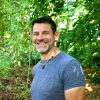
Bill Schindler is an internationally known archaeologist, primitive technologist, and chef. He founded and directs the Eastern Shore Food Lab with a mission to preserve and revive ancestral dietary approaches to create a nourishing, ethical, and sustainable food system, and is an adjunct associate professor of archaeology at University College Dublin. Schindler’s work is currently the focus of Wired magazine’s YouTube series Basic Instincts and Food Science, and he co-starred in the National Geographic Channel series The Great Human Race, which aired in 2016 in 171 countries. He has also been featured on CNN, Maryland Public Television, NPR’s Weekend Edition and Here and Now, and on such podcasts as Milk Street Radio, Peak Human, and The Academic Minute. Schindler’s work has appeared in The Washington Post, The Atlantic, and The London Times, among other publications. Follow him on Twitter @DrBillSchindler.

Blanca Begert is a writer and multimedia producer with a background in environmental anthropology. She covers forest management, environmental conflict, climate change, and environmental justice issues in the U.S. and Latin America. Begert holds a master of environmental science degree from the Yale School of the Environment and has conducted research on policies affecting Indigenous peoples’ land rights and livelihoods with the Center for International Forestry Research in Peru. She is currently an environment editor and video producer with KCET | PBS SoCal in Los Angeles.

Brad Weiss is a professor of anthropology at the College of William & Mary. He has conducted extensive fieldwork on social transformation in rural and urban Tanzania, and on contemporary American food systems in North Carolina. Weiss is the author of four books, including Real Pigs: Shifting Values in the Field of Local Pork. He is an incoming editor of the journal Cultural Anthropology.

Bree Kelly earned a master’s degree in Egyptology and digital humanities from Macquarie University in Australia. Her thesis explored how the Fabricius Workbench by Google Arts and Culture might improve aspects of Egyptological research and the teaching of hieroglyphic Egyptian. Her interests lie in how machine learning and AI can be harnessed to improve or enhance research practices and higher education. Kelly is also interested in studying prominent ancient Egyptian figures, such as Hatshepsut and Akhenaten, and analyzing how their lives have been interpreted by previous scholars.
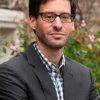
Brendan Borrell is a freelance journalist based in Brooklyn, New York. He writes for Bloomberg Businessweek, Nature, Outside, Scientific American, and many other publications, and is a co-author (with ecologist Manuel Molles) of the textbook Environment: Science, Issues, Solutions. Follow him on Twitter @bborrell.
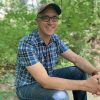
Brendan H. O’Connor, a lifelong fan of the Kansas City Royals, is a linguistic anthropologist and anthropologist of education. He studies issues of language, identity, and education in the U.S.-Mexico borderlands, primarily in relation to Mexican American and other Latinx students and families. He received his Ph.D. from the University of Arizona and is currently an associate professor in the School of Transborder Studies at Arizona State University. O’Connor’s academic writing has appeared in many journals, including Anthropology & Education Quarterly, Journal of Latinos and Education, and Journal of Latin American and Caribbean Anthropology.

Brendane A. Tynes (she/her) is a Black queer feminist scholar and storyteller from Columbia, South Carolina. As a doctoral candidate in anthropology at Columbia University, she studies the affective responses of Black women and girls to multiple forms of violence within grassroots Black political movements. Her scholarship has received generous support from the CAETR, Ford Foundation, and Wenner-Gren Foundation. She works with the Say Her Name Coalition and In Our Names Network to address sexual violence against Black women, femmes, girls, and gender-expansive people. Tynes also co-hosts the Zora’s Daughters Podcast, a Black feminist anthropological intervention on popular culture and issues that concern Black women and queer and trans people. Follow her on Twitter @brendanetynes.
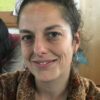
Brenna R. Hassett is a bioarchaeologist at University College London and a scientific associate at the Natural History Museum, London. She is the author of Growing Up Human: The Evolution of Childhood and Built on Bones: 15,000 Years of Urban Life and Death. Hassett is a member of Team TrowelBlazers, a collective that runs the grassroots and largely community-sourced TrowelBlazer project, which seeks to reset imaginations by presenting the stories of women in the “digging” sciences.

Brenna McCaffrey is a cultural anthropologist who studies the interaction of activism, medicine, and reproduction. She has conducted ethnographic research on abortion in Ireland and is currently researching the history and impact of abortion pills on feminist movements in the United States. She received her Ph.D. from The Graduate Center, City University of New York. Follow her on Twitter @anthrofeminist and on TikTok @paigingbrenna.

Brian Anthony Keeling is a doctoral candidate studying paleoanthropology at Binghamton University, State University in New York. His research interests include human paleobiology, evolutionary morphology, and mandibular biomechanics, with a focus on why our own species and the Neanderthals evolved. Keeling is particularly interested in the lower jawbone (mandible) to identify prehistoric human species and make inferences about how behavior, diet, and climate can affect its shape over time.

Brian Ballsun-Stanton is the solutions architect in digital humanities for the Macquarie University Faculty of Arts, with more than seven years’ experience designing and delivering technical solutions for academic and student research projects. He studies the philosophy of data and the trends of far-right extremism within social networks. Ballsun-Stanton is also the technical director for the FAIMS project, which builds electronic field notebooks for offline, geospatially enabled data collection with structured data and multimedia. Follow his newsletter at faims.substack.com.

Brian Fagan was born in England, was educated at the University of Cambridge, and worked in Central Africa before beginning his teaching career at the University of California, Santa Barbara, in 1967. He is now emeritus. One of the world’s leading archaeological lecturers and writers, Fagan is the author of numerous general books on archaeology. His most recent books are Elixir: A History of Water and Humankind, Beyond the Blue Horizon: How the Earliest Mariners Unlocked the Secrets of the Oceans, and The Attacking Ocean: The Past, Present, and Future of Rising Sea Levels, all published by Bloomsbury Press in New York.

Brian Howell is a cultural anthropologist who studies religion in Southeast Asia and North America. He received his Ph.D. from Washington University in St. Louis, Missouri, and is currently a professor of anthropology at Wheaton College in Illinois. He is the author of two monographs, Christianity in the Local Context: Southern Baptists in the Philippines and Short Term Mission: An Ethnography of Christian Travel Narrative and Experience, an article on Billy Graham in American Anthropologist, and numerous chapters and articles on how a Christian standpoint and theology inform ethnographic work and, more generally, anthropology.

Briana Pobiner has been a paleoanthropologist at the Smithsonian’s Human Origins Program since 2005. Her research centers on the evolution of human diet (with a focus on meat eating) but has included topics as diverse as cannibalism in the Cook Islands and chimpanzee carnivory. In addition to her active field, laboratory, and experimental research programs (mainly in Africa), she leads the Human Origins Program’s education and outreach efforts, and manages its public programs, website content, social media, and exhibition volunteer training. She is also an associate research professor of anthropology at George Washington University. Follow the Human Origins Program on Twitter @HumanOrigins.
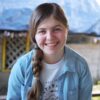
Brianna Muir is a master’s student in biological anthropology at the University of Central Florida. As an emerging bioarchaeologist, she is interested in how integrative approaches can be used to address questions of personhood, identity, and agency in the past. In particular, she investigates how these factors may have shaped and influenced a person’s lived experiences. Muir received her B.A. from the Australian National University in 2019 and has undertaken fieldwork and research in the Philippines, Vanuatu, and Australia.

Bridget Alex holds a Ph.D. in anthropology and human evolutionary biology. Her research focuses on understanding the processes by which Homo sapiens dispersed globally as all other human groups went extinct over the past 100,000 years. She is particularly interested in the timing and nature of Neanderthal–modern human interactions, and uses radiocarbon dating to reconstruct the biogeography of these populations. Her field projects are in the Balkans, Northeast Europe, and the Levant.
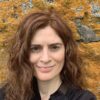
Britt Halvorson is a cultural anthropologist who studies global Christianity, aid, medical waste, and whiteness in the Midwest U.S. and Madagascar. She received her Ph.D. from the University of Michigan and is currently an associate professor at Colby College in Maine. She is also the author of Conversionary Sites: Transforming Medical Aid and Global Christianity From Madagascar to Minnesota.
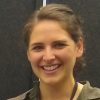
Brittany Kenyon-Flatt is a biological anthropologist who studies primate evolution, variation, and taxonomy. She received her Ph.D. from the University at Buffalo, where her dissertation focused on macaque taxonomy and morphology. Currently, she is a National Science Foundation postdoctoral research fellow at North Carolina State University and is working on questions related to hominin postcranial taxonomy. Kenyon-Flatt has published widely for academic and public audiences. Follow her on Twitter @britkenyon01.

Bruce Hardy is a paleoanthropologist and archaeologist specializing in Neanderthals. His research focuses on understanding stone tool use through microscopic residue analysis. He is a professor of anthropology at Kenyon College in Gambier, Ohio, where he teaches his students Neanderthal skills such as making fire and wooden spears. In 2020, he and his colleagues published evidence of the oldest-known surviving string, circa 50,000 years old, from the Neanderthal site of Abri du Maras in France. He also teaches a course on science and pseudoscience.

C.D. Green is a Ph.D. candidate in the department of anthropology at the University of Pennsylvania. His research is about understanding the power of the past in political ideologies and community identity formation. In particular, he focuses on how normalizing narratives of the past in museums also normalizes certain political realities and their goals. His dissertation research is on the independence movement and referenda in Kanaky/New Caledonia. His background is in archaeological heritage legal compliance work, especially the Native American Graves Protection and Repatriation Act, for museums, universities, and the U.S. military.

Caitlin Schrein earned a doctorate in evolutionary anthropology from Arizona State University. She has conducted fieldwork searching for early primates in North America, monkeys in Europe, apes in Kenya, and the first hominins to leave Africa. Her doctoral research examined the relationship between human evolution education and students’ interest in science and their decision-making about social issues with a scientific basis, such as climate change.

Caleb Everett is an Andrew Carnegie fellow and a professor of anthropology at the University of Miami.
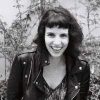
Camilla Di Biase-Dyson is a lecturer in the department of history and archaeology at Macquarie University in Australia. Her research focuses on metaphor in ancient Egyptian, and Egyptian language, ancient medicine, and everyday religion. Di Biase-Dyson’s approaches to ancient data range from linguistics and cognitive science to literary analysis and cultural studies. She focuses on utilizing and expanding the tools of digital corpus analysis for ancient languages. Follow her on Twitter @DiBiaseDyson.

Cara Ocobock is the director of the Human Energetics Laboratory at Notre Dame. Her research program integrates human biology and anthropology, with a focus on the interaction between anatomy, physiology, evolution, and the environment. She explores the physiological and behavioral mechanisms necessary to cope with and adapt to extreme climate and physical activity. Ocobock works in northern Finland in collaboration with researchers from the University of Lapland and University of Oulu. This project focuses on reindeer herders, a highly active cold climate population. Her research assesses their lifeways, life history patterns, and cold climate adaptations, and addresses potential health disparities. This work was funded by the National Science Foundation and the American-Scandinavian Foundation. Follow her on X, formerly Twitter, @caraocobock.

Caree Banton is an associate professor of African diaspora history and the director of African and African American studies at the University of Arkansas. She completed her Ph.D. at Vanderbilt University in 2013. Her research has been supported by grants such as a Lapidus Center Fellowship at the Schomburg Center and a Nancy Weiss Malkiel Scholars Award, and funded by organizations such as Rotary International, the Andrew W. Mellon Foundation, the American Association of University Women, and the National Endowment for the Humanities. Her book, More Auspicious Shores: Barbadian Migration to Liberia, Blackness, and the Making of the African Republic explores experiences of freedom, citizenship, nationhood, race, and belonging across the Atlantic world.

Carlos David Londoño Sulkin is a sociocultural anthropologist who contributes to international scholarship on Indigenous Amazonian societies and on morality. He teaches at the University of Regina in Canada and is the president of the Society for the Anthropology of Lowland South America. Londoño Sulkin received his B.A. from the Universidad de Antioquia, Medellín, in Colombia, and his Ph.D. from the University of St. Andrews in Scotland. He is the author of People of Substance: An Ethnography of Morality in the Colombian Amazon.

Caroline Giles Banks is a medical anthropologist who studies the cultural dimensions of eating disorders. After receiving her Ph.D. from the University of Minnesota, Banks served on the faculties of the University of Wisconsin-River Falls and Luther College in Deborah, Iowa, among other colleges and universities. Written in several genres—poetic memoir, ekphrastic poetry, and haiku—her poetry is informed by her training and experience as a cultural anthropologist and often explores themes of marginalization, displacement, and loss. Banks is the author of six books of poetry, including The Weight of Whiteness: a Memoir in Poetry and Picture a Poem: Ekphrastic and Other Poems.

Carolyn Wilke is a Chicago-based freelance science journalist and one of the hosts of the podcast Science for the People. After a decade in the lab and earning a Ph.D. in environmental engineering, she now writes about research in areas spanning archaeology to neuroscience. Her work appears in outlets including Science News, Scientific American, Eos, and Knowable. Follow her on Twitter @CarolynMWilke.

Carrie Arnold is a freelance writer living in Virginia. She writes about various aspects of the natural world and has had her work published in Mosaic, Aeon, Nautilus, Environmental Health Perspectives, Scientific American, Discover, New Scientist, and other publications. When she isn’t writing, she enjoys spending time outdoors, knitting, and annoying her cat. Find her on Twitter @edbites.

Caterina Sartori is a visual anthropologist and film curator in London. She is a film officer and film festival director at the Royal Anthropological Institute and a doctoral candidate at Goldsmiths, University of London. Her research focuses on property regimes, value, and citizenship in the London housing market. Follow her on Twitter @cate_etac.

Catherine Draycott is from Bermuda and works as a classical archaeologist at Durham University in the U.K. She specializes in ancient art and the archaeology of Iron Age Anatolia, modern Turkey. Draycott is interested in theories of interpretation, decentering the Greco-Roman focus of classical archaeology to include other contemporary groups, and the demographics of archaeology as a discipline.

Catherine Bolten is a development anthropologist who has worked in Sierra Leone since 2003. She received her Ph.D. from the University of Michigan and is currently an associate professor of anthropology and peace studies at the University of Notre Dame. Bolten is the author of I Did It to Save My Life: Love and Survival in Sierra Leone. She is currently working on a project investigating the nexus of agriculture, wildlife, and zoonotic disease in rural villages.

Catrine Jarman is a Ph.D. researcher in archaeology and anthropology at the University of Bristol, specializing in bioarchaeology with a particular focus on isotope analysis to study past migration, diet, and resource use. Her research covers both Viking Age Europe and Polynesia, and she currently directs a project investigating the Viking Great Army’s winter camp in Repton, Derbyshire.
Cay Leytham-Powell is an editorial intern at SAPIENS. She holds a B.A. in biology and human-environment relations from Grand View University, and is pursuing an M.A. in media and public engagement from the University of Colorado, Boulder.

Cecilia Padilla-Iglesias is a Ph.D. candidate in evolutionary anthropology at the University of Zürich. Her research aims to reconstruct the past of contemporary hunting and gathering people from different places in Africa to better understand the processes that shaped the enormous genetic and cultural human diversity on the continent today. Her work is interdisciplinary, combining genetic, ecological, and archaeological analyses with ethnographic fieldwork among hunter-gatherer populations in the Republic of Congo. Previously, she worked in the Yucatán Peninsula, studying the drivers of linguistic diversity. She has been funded by several organizations, including the Leakey Foundation and Fundación “la Caixa.”

Celia Emmelhainz is an anthropologist with fieldwork experience in Mongolia and Kazakhstan. She received her M.A. in anthropology from Texas A&M University, and she now works as the anthropology and qualitative research librarian at the University of California, Berkeley. Follow her on Twitter @celiemme.

Ceren Kabukcu is an archaeobotanical scientist with broad interests in Quaternary paleoecology and plant food and wood fuel use by hunter-gatherers and the earliest farmers in Southwest Asia and Europe. She specializes in the analysis of carbonized plant macro-remains, such as wood charcoal, seeds, and tubers, and has published on a variety of topics including the establishment of anthropogenic, managed woodlands in Neolithic Anatolia; the changing nature of pre-agricultural plant food; and woodland exploitation by late Pleistocene and early Holocene hunter-gatherers.

Chad Huddleston is a sociocultural anthropologist who is interested in how individuals and communities prepare for disasters. He received his Ph.D. from the University of Canterbury in Christchurch, New Zealand. Huddleston is currently an instructor at Southern Illinois University, Edwardsville, and an adjunct assistant professor at Saint Louis University in Missouri. His current research focus is on preppers and their perception of disasters and their own agency. He is also interested in how popular media constructs the “idea” of preppers and how preppers co-construct an image of themselves on platforms such as YouTube.
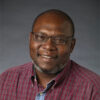
Chapurukha Kusimba is a distinguished professor of anthropology in the Institute for Advanced Studies in Culture and Environment at the University of South Florida. He holds his degrees from Bryn Mawr (Ph.D.) and Kenyatta University in Nairobi. His specialties include the archaeology of complex societies and the origins of inequality, ancient African chiefdoms and states, urbanism in Africa, Islam in Africa, and the African diaspora in Asia and the Americas. Kusimba directs multiple anthropological research projects in East Africa and Madagascar. His current project, based on the Kenyan coast, is investigating ancient trade networks between East Africa and South, Southeast, and East Asia.

Charlene Mohammed is currently pursuing her M.A. in anthropology at the University of Victoria. While completing her B.A. at McMaster University, Mohammed researched food security and dietary change among immigrants and refugees living in Canada. Her current research explores the intersections of food security, social relations, and emotions among Indonesian domestic workers who live and work in Singapore.

Charles Fruehling Springwood is a professor of cultural anthropology at Illinois Wesleyan University who specializes in sociocultural theory, race and racism, performance, violence, and Indigeneity. He has conducted fieldwork in Japan, Indigenous North America, Mexico, and most recently, New Zealand. The author or editor of four books, Springwood gained recognition for Team Spirits: The Native American Mascot Controversy (co-edited with C. Richard King), named as a 2001 Choice Outstanding Academic Title. He has recently served on the executive board of the Central States Anthropological Society.

Charles Keil is a musician, cultural anthropologist, and activist who has published a large number of books, including Urban Blues, Tiv Song: The Sociology of Art in a Classless Society, Polka Happiness, Music Grooves (with Steven Feld), and Bright Balkan Morning: Romani Lives and the Power of Music in Greek Macedonia (with Dick Blau, Angeliki Vellou Keil, and Steven Feld). Born to Groove, previously published online, is coming out as a book in 2021, along with Polka Theory: Perspectives on the Will to Party. Keil is a professor emeritus at the State University of New York at Buffalo. His biography can be summed up in books that have prepared him for versifying and improvised musicking in service to our true species—Humo ludens collaborans. His 2020 book Easily Pleased features “dear gretas,” published by 12/8 Publications.
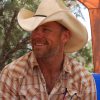
Charles R. Riggs is a professor of anthropology and a curator of archaeological collections at Fort Lewis College in Durango, Colorado. Riggs earned his Ph.D. in anthropology from the University of Arizona in 1999. He is the author of The Architecture of Grasshopper Pueblo and many other publications on Indigenous architecture in the American Southwest. He is an organizer of the annual Pecos Conference, which is sponsored by Southwestern Archaeology Inc. Riggs has directed a number of field projects in the U.S. Southwest, including those associated with Fort Lewis College’s Archaeological Field School. Through these projects, he has trained numerous students in archaeological field methods and ethical practice.

Charlotte Joy is an anthropology lecturer at Goldsmiths, University of London. She is the author of The Politics of Heritage Management in Mali: From UNESCO to Djenné. Joy earned a Ph.D. at the University College London and conducted postdoctoral research at the Museum of Archaeology and Anthropology, University of Cambridge.

Charlotte Williams is a Ben Franklin, Presidential Endowment, and Sundry Gifts graduate fellow pursuing a Ph.D. in anthropology at the University of Pennsylvania, with a focus on cultural heritage and the history of archaeology. Her dissertation investigates how American imperial projects ranging from the United Fruit Company to the Panama Canal used archaeology as a way to control Central American territory in the early 20th century. This research seeks to show how both harvests and heritage were extracted using the same labor and infrastructural systems. Williams’ research has been supported by the Wenner-Gren Foundation and the Smithsonian Institution. From 2021–2022, she served as a graduate student fellow for the Mellon-funded Just Futures initiative at the University of Pennsylvania.

Chelsea Fisher is an assistant professor of anthropological archaeology at the University of South Carolina. She studies the deep histories of environmental justice conflicts through community-engaged archaeology. Since 2013, she has been conducting research in and with the community of Yaxunah, Yucatán, Mexico. Fisher’s research investigates the historical-ecological dynamics of colonial and modern cattle farming in Yucatán and the history of gold mining in the Carolinas in the U.S. Her research interests also include the entangled histories of global food systems, interactions among Indigenous and colonial ecological knowledges, and the application of archaeological approaches to environmental justice conflicts.

Chelsea H. Meloche is a Ph.D. candidate in the department of archaeology at Simon Fraser University, British Columbia, where she is exploring the effects of repatriation. Her research interests also include critical cultural heritage studies and collaborative and decolonizing research strategies in archaeology and biological anthropology.

Chelsey Kivland, a political and urban anthropologist, studies street politics, insecurity, and social performance in contemporary urban Haiti. She received her Ph.D. from the University of Chicago and is an assistant professor in the department of anthropology at Dartmouth College. She is the author of the recently published book Street Sovereigns: Young Men and the Makeshift State in Urban Haiti and several articles in edited volumes and journals. Kivland is currently working on a project, funded by the National Science Foundation and Wenner-Gren Foundation for Anthropological Research, to analyze the resettlement experiences of deportees in Haiti.

Chenyu Wang is an anthropologist who studies elite students and their self-organizing efforts in China and the United States. She received her Ph.D. from the University of Virginia and is currently a visiting assistant professor of anthropology at Hamilton College. She is working on a project to study the experience of student activism in predominantly White colleges.

Cherry Jackson is a recent graduate of Oxford University, where she earned a B.A. in archaeology and anthropology. For her undergraduate dissertation, she focused on the performance of gender and respectability among pole dancers. She is interested in issues of representation (from the body, gender, and landscapes to death and burial), Indigenous issues, and the power of the written word. Jackson will begin a master’s in material and visual culture at University College London in the fall of 2016. Follow her on Twitter @CherryJackson19.

Cheryl Deutsch is a Ph.D. candidate in anthropology at the University of California, Irvine. A former Uber driver in Los Angeles, she is currently based in Delhi, where her research explores the science and politics of how transportation planners imagine the future of cities. Her blog, www.HowToAnthropology.com, offers tips and tricks of the trade, including practical discussions of grant writing, research methods, getting published, and teaching.

Chiara Natalucci is an interpreter and translator of Russian and English who teaches English in a secondary school in Italy.

Chilton Tippin is a Ph.D. student in cultural anthropology at the University of Colorado, Boulder. He focuses on environmental anthropology, with interests in the anthropology of water and development, the social lives of rivers, and the co-production of land, watersheds, space, and place in the borderlands of the United States and Mexico. Follow him on Twitter @ChiltonTippin.

Chip Colwell is an anthropologist and the founding editor-in-chief of SAPIENS. He was the senior curator of anthropology at the Denver Museum of Nature & Science from 2007 to 2020. He received his Ph.D. from Indiana University and has received grants and fellowships with the American Academy of Arts & Sciences, Rockefeller Foundation, U.S. Fulbright Program, National Endowment for the Humanities, and National Science Foundation. His research has been highlighted by the BBC, C-SPAN, and The Wall Street Journal, and his writing has appeared in The New York Times, The Guardian, Salon, Aeon, Foreign Affairs, and elsewhere. He has published 12 books, including Plundered Skulls and Stolen Spirits: Inside the Fight to Reclaim Native America’s Culture, which has received six national awards. Follow him on Twitter @drchipcolwell.

Chloe Ahmann is an environmental anthropologist who studies how people politicize “impure” environments in the long afterlife of American industry. Much of her work is based in Baltimore, Maryland, where she follows industrialism’s enduring traces in toxified landscapes, patchy regulation, quotidian expressions of white supremacy, and particular orientations toward time. She is the author of Futures after Progress: Hope and Doubt in Late Industrial Baltimore and an assistant professor of anthropology at Cornell University. Follow her on the social platform X @chloeahmann.
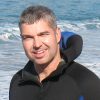
Chris Begley is an archaeologist who works on issues of identity and popular images of societal collapse. He received his Ph.D. from the University of Chicago, focusing on the archaeology of the Mosquitia region of Honduras. He is the author of The Next Apocalypse: The Art and Science of Survival (Basic Books, 2021). He currently focuses on underwater archaeology, working and training students in Albania, Montenegro, and Croatia. His active projects center on shipwrecks in El Salvador, where he was a Fulbright scholar. Follow him on Twitter @ctbegley.

Chris Clarkson is a professor of archaeology at the University of Queensland in Australia. His research focuses on understanding past human behavior through the study of stone artifacts. He has research projects in Australia, India, Africa, and France that all seek to further develop an understanding of Paleolithic human behavior, settlement, and subsistence via the study of lithic technology.

Chris Fisher is an archaeologist, professor of anthropology at Colorado State University (CSU), a National Geographic explorer, and the founder of the Earth Archive. He also directs CSU’s Center for Archeology & Remote Sensing. Fisher’s work explores the connection between human societies and environments through a variety of archaeological and earth science methodologies. He has performed fieldwork throughout Latin America, Europe, and North America. Fisher’s articles and book chapters have appeared in numerous publications, including the American Anthropologist and the Proceedings of the National Academy of Sciences. His most recent edited volume is The Archaeology of Environmental Change: Socionatural Legacies of Degradation and Resilience (with J. Brett Hill and Gary M. Feinman). He has received funding from the National Science Foundation, the National Geographic Society, and private sources.

Chris Hunt is a professor of cultural paleoecology at Liverpool John Moores University in the U.K.
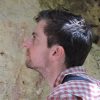
Chris Standish is a postdoctoral fellow of archaeology at the University of Southampton in England.

Chris Urwin conducts archaeological research in partnership with Indigenous communities in Australia and Papua New Guinea. He is a postdoctoral research fellow at Monash University and the Australian Research Council’s Centre of Excellence for Australian Biodiversity and Heritage. Urwin was previously curator for the First Peoples archaeology collection at the Melbourne Museum. His research has been published in the Journal of Social Archaeology, Australian Archaeology, and The Conversation. Urwin investigates contemporary Indigenous understandings of colonial-era collecting practices and how people build places through time and remember that process. He has received research funding from the Australian Nuclear Science and Technology Organisation, and he will soon commence a Smithsonian Institution fellowship to investigate the social histories of Pacific canoe collections. Follow him on Twitter @c_urwin.
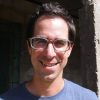
Christian Laheij received his Ph.D. from the London School of Economics and Political Science, and is currently a research fellow at the Max Planck Institute for Social Anthropology in Halle/Saale, Germany. His research interests include topics of religious change, dispute resolution, inequality, and uncertainty. Laheij has done anthropological research on the impact of Salafi-inspired Islamic reformism in Mozambique, where he is currently studying the emergence of new religious movements in the context of natural resource extraction and the increasing precariousness of the country’s workforce.
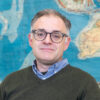
Christian Tryon is a Paleolithic archaeologist who studies the archaeology of the origin and dispersal of Homo sapiens. Most of his work focuses on the Mediterranean region and eastern Africa, and he is particularly interested in stone tools, geological approaches to the human past, biogeography, and the use of museums and archives. He received his Ph.D. from the University of Connecticut, where he is a professor of anthropology and the department head. Tryon is also a research associate in the Human Origins Program at the Smithsonian Institution’s National Museum of Natural History and in the anthropology department at Harvard University. His current field project investigates early human occupation of what is today Sicily, Italy, and his archival research centers around rockshelters in Tanzania and Uganda.

Christina Cheung is a bioarchaeologist specializing in the use of stable isotope analysis to reconstruct past lifeways. She received her Ph.D. from the University of British Columbia in 2015 and is currently a postdoctoral researcher at the Muséum national d’Histoire naturelle in Paris. Cheung’s research interests include reconstructing past subsistence strategies, looking at the impact of climate change on ancient societies, and exploring themes such as social stratification and the construction of power through studying reconstructed diets. Follow her on Twitter @chris_tt_cheung.
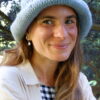
Christina Kefala is a Ph.D. candidate under the China-White European Research Council research project at the University of Amsterdam in the department of anthropology. Her research focuses on foreign businesses and entrepreneurs in China and explores whiteness, gender, branding, advertising, and technology. Kefala obtained her master’s degree in sociology from Fudan University in Shanghai, China. She holds a bachelor’s degree in social anthropology from Panteion University of Social and Political Sciences in Athens, Greece.

Christine Cave recently completed her Ph.D. in archaeology at the Australian National University in Canberra.

Christine Chalifoux is a Ph.D. candidate in anthropology at the University of Michigan. With funding from the National Science Foundation, she conducted fieldwork in Kampala, Uganda, among migrant laborers working in the capital city to support their families living in their home regions. She is currently writing her dissertation, which explores themes of family and kinship, ethnicity, resentment, and cosmopolitanism.

Christine Finnan is a cultural anthropologist who focuses on education and childhood. She received her Ph.D. from Stanford University and is currently a professor at the College of Charleston in South Carolina. She holds a joint appointment in the department of sociology and anthropology, and the department of teacher education. Her research focuses on school cultures and the effect of schools on students’ sense of self. With the support of a Fulbright-Nehru research grant, she recently completed fieldwork in Odisha, India, examining the school culture and effects on students of a residential school for 25,000 tribal children.

Christine Jeske is a cultural anthropologist who studies work-related racism and narratives of the good life. She received her Ph.D. from the University of Wisconsin–Madison and is currently an associate professor at Wheaton College in Illinois. Jeske is the author of The Laziness Myth: Narratives of Work and the Good Life in South Africa. Her current research focuses on Whiteness in the narratives of hope among White South Africans and in sustainable farming communities in the United States.

Christine Weeber is the copy editor, sub-editor, and poetry editor at SAPIENS. She has an M.A. in cultural anthropology and a graduate certificate in women’s studies from Colorado State University. She has published two poetry chapbooks, In the Understory of Her Being (in English and Spanish) and Sastrugi. Her work also appears in the Wild Roof Journal, the Kyoto Journal, Wild Gods: The Ecstatic in Contemporary American Poetry and Prose, and other publications. Follow her on Mastodon @christineweeber@mastodon.world.
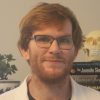
Christopher Aris is a biological anthropologist who studies the variation and microevolution of human dentition. He holds a B.Sc. in biological anthropology and an M.Sc. in human osteology and funerary archaeology, and he is awaiting examination for his Ph.D. in anthropology. Currently, he works as a teaching associate in anatomy and osteology, and university teacher in anatomy at the University of Sheffield in the U.K. Aris’ research interests include dental development and enamel growth variation between historic populations, and the ethics of destructive analysis of human remains. He is a fellow of the Royal Anthropological Institute and a certified forensic anthropologist. Follow him on Twitter @ChrisJDAris.

Christopher D. Lynn is a biocultural medical anthropologist who studies cultural impacts on health and human cognitive evolution. He received his Ph.D. from the University at Albany, SUNY, and is currently an associate professor of anthropology at the University of Alabama. He is a co-editor of the volume Evolution Education in the American South: Culture, Politics, and Resources In and Around Alabama and is working on a book about dissociation and consciousness. He is currently conducting research on tattooing and immune response among Pacific Islanders, developing an anthropology outreach program for elementary students, and co-hosting the Sausage of Science podcast. Follow him on Twitter @Chris_Ly.
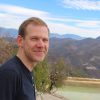
Christopher DeCou trained as a historian at the University of Michigan and the University of Chicago. Now based in Tel Aviv, Israel, he writes about science, history, and archaeology. Follow him on Twitter @chrisdecou.

Christopher Hernández is an assistant professor in anthropology at Loyola University, Chicago. As an anthropological archaeologist, his research focuses on issues of archaeological ethics, the application of community-based methods, relational philosophy, and understanding social conflict in a long-term perspective. Through the application of aerial laser scanning (lidar), documentary analysis, and traditional excavation methods, he investigates how the process of making war shaped landscapes in Mensabak, Chiapas, Mexico. Follow him on Twitter @profclh and his YouTube channel.

Christopher Howard is an anthropologist and award-winning wine writer. Originally from Sonoma, California, he resides in Wellington, New Zealand.

Christopher Kavanagh is a postdoctoral researcher in cognitive anthropology at the University of Oxford, currently based in Japan. His research interests include East Asian religions, ritual behavior, and the bonding effects of shared dysphoria.

Christopher Manoharan is a Ph.D. candidate in anthropology at the University of Connecticut. His research focuses on religion, musical performance, and mystical experience. His publications and conference presentations include works on Sufism, romantic love, morality, and anthropological methodology. Manoharan studied music and history at the State University of New York, New Paltz, and anthropology at Queen’s University Belfast in Northern Ireland. He is currently a graduate researcher affiliated with the Department of Islamic Arts and Music at Istanbul University in Turkey. His field research in Istanbul is supported by a Fulbright scholarship. Follow him on Instagram @chriskulivan.

Christopher R. Moore is an archaeologist and special projects director at the Savannah River Archaeological Research Program at the University of South Carolina. He received an M.A. in anthropology from East Carolina University in 2000 and a Ph.D. in coastal resources management from East Carolina University in 2009. Moore’s research interests include geoarchaeology, luminescence dating, hunter-gatherer archaeology, Late Quaternary climate and human adaptation, GIS, and remote sensing.

Christopher Roos is an environmental archaeologist and a professor of anthropology at Southern Methodist University in Texas. For two decades, he has collaborated with Indigenous communities to study multi-century histories of Indigenous fire management in the U.S. Southwest, the Great Plains of North America, Fiji, and Northern Australia. His primary areas of interest and expertise are in human pyrogeography and behavioral geoarchaeology.
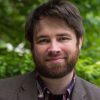
Christopher Webb is a cultural anthropologist who studies the relationship between North American military/warrior culture and medical epistemologies of violence, trauma, and healing. He is a Ph.D. candidate in cultural anthropology at Duke University and is the author of articles in Ethnos and Critical Military Studies. Webb is currently working on a project, funded by the National Science Foundation, that investigates the experience of veterans who pursue healing from war in American Indian purification rituals.

Cindy Hsin-yee Huang (she/her) is a Paleolithic archaeologist with a focus on stone tools and cultural evolution. She is a Ph.D. candidate at the School of Human Evolution and Social Change, and affiliated with the Institute of Human Origins at Arizona State University. Her dissertation, supported by the Social Sciences and Humanities Research Council of Canada, studies the emergence and dispersal of microliths, or small stone tools, across Eurasia during the late Pleistocene. This research attempts to understand large-scale patterns of innovation and cultural diffusion during the ancient past and how those impacted, facilitated, and reflected human evolution, migration, and social interactions. Follow her on X, formerly Twitter, at @CHYHuang.
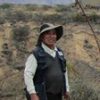
Cirilo Vivanco is a Peruvian archaeologist who received his degree from the Universidad Nacional de San Cristóbal de Huamanga in Peru, where he currently teaches. He investigates the ancient human occupation of the Peruvian central highlands, with a focus on the pre-Inca and Inca occupations.

Claudia Geib is a science journalist and editor based on Cape Cod, Massachusetts. Her work focuses on marine science, the environment, and wildlife. Her writing has appeared in outlets such as Wired magazine, Hakai Magazine, Mongabay, and Undark, among others.

Claudio Sopranzetti is an associate professor in the department of sociology and anthropology at Central European University. He received his Ph.D. from Harvard University and was a postdoctoral research fellow at Oxford University. He is a co-author of The King of Bangkok and the author of Owners of the Map, the winner of the 2019 Margaret Mead Award. Follow him on Twitter @anthroaddict.

Corinna Howland is a Ph.D. candidate in social anthropology at the University of Cambridge. Her doctoral work explores quinoa producer cooperatives, local economies, and capitalism in the southern Peruvian Andes. Her other research interests include political violence, consumption, and the middle class. She has a background in educational outreach and is a contributor to This Anthro Life Podcast (@thisanthrolife).
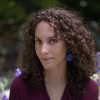
Cory-Alice André-Johnson is a sociocultural anthropologist who studies knowledge production in Southwest Madagascar. She received her Ph.D. from the University of Virginia and is currently a postdoctoral fellow in African studies at Tulane University. Her current project engages with colonial afterlives, truth, refusal, and the unknown.
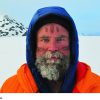
Craig Childs is the author of Apocalyptic Planet. He has been a regular commentator for NPR’s Morning Edition, and his work has appeared in The New York Times, the Los Angeles Times, Men’s Journal, Outside, The Sun, and Orion Magazine. Awards he has received include the Ellen Meloy Desert Writers Award, the Rowell Award for the Art of Adventure, the Sigurd F. Olson Nature Writing Award, and, for his body of work, the 2003 Spirit of the West Award.
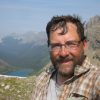
Craig M. Lee is a scientist at the Institute of Arctic and Alpine Research, an instructor at Montana State University, and a principal investigator at Metcalf Archaeological Consultants. His research interests include the human ecology and landscape archaeology of alpine and high-latitude environments. Lee frequently collaborates with Native Americans to develop culturally respectful methods for ice patch archaeology, and he delights in sharing his results with Native American communities, the general public, and other professionals. He lives in Bozeman, Montana, with his wife and daughter, and their much-loved dog. For more information about his research, see the Ice Patch Archaeology and Paleoecology Project.

Cristina Rocha is a professor of anthropology and the director of the Religion and Society Research Cluster at Western Sydney University in Australia. She is the former president of the Australian Association for the Study of Religion (2018–2019), and she co-edits the Journal of Global Buddhism and the Religion in the Americas series. Rocha’s research focuses on the intersections of globalization, migration, and religion. Her books include Australian Pentecostal and Charismatic Movements: Arguments From the Margins (with Mark Hutchinson and Kathleen Openshaw); John of God: The Globalization of Brazilian Faith Healing, one of the winners of the 2019 Clifford Geertz Prize; The Diaspora of Brazilian Religions (with Manuel Vásquez); Buddhism in Australia (with Michelle Barker); and Zen in Brazil: The Quest for Cosmopolitan Modernity. Follow her on Twitter at @crocha2.
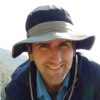
Cyler Conrad is an anthropologist and archaeologist who studies human-animal and human-environmental relationships in mainland Southeast Asia, California, New Mexico, and the Galapagos. He received his Ph.D. from the University of New Mexico (UNM) and is currently an adjunct assistant professor of archaeology at UNM. Conrad is the author of several articles, book chapters, opinion essays, and blogs that focus on aspects of animals, subsistence, and environments in the archaeological record. He has received funding from the National Science Foundation, the National Geographic Society, and the project of Empowering Network for International Thai Studies, among others. Follow him on Twitter @cylerconrad.
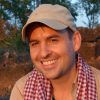
Damian Evans is a research fellow with the École française d’Extrême-Orient (EFEO) who specializes in using geospatial and computational methods to explore and understand landscapes across monsoon Asia, from the deep past to the present. An anthropological archaeologist by training, his work lies at the intersection of the geosciences, data science, tropical ecology, and landscape history. Evans was the founding director of the University of Sydney’s overseas research center at Angkor, in Cambodia, before joining the EFEO in 2015. Since then, he has been leading an interdisciplinary team that pursues questions of social complexity, urbanism, cultural exchange, and technological innovation in Southeast Asia from a geospatial laboratory at the EFEO. Evans has active field projects and collaborations in numerous countries in South and Southeast Asia, funded primarily by the European Research Council.
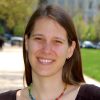
Dana J. Graef is an environmental anthropologist who studies environmentalism and globalization in Latin America. She received her Ph.D. from Yale University and is currently a visiting scholar in anthropology at Brown University. She has taught courses on the anthropology of climate change and what it means to be “green.” Graef has published essays and articles on topics such as mining, wildness, and cultural diversity. Follow her on Twitter @danagraef.

Dána-Ain Davis is a professor of urban studies and anthropology, and the director of the Center for the Study of Women and Society at the City University of New York Graduate Center. Davis’ work covers two broad domains: Black feminist ethnography and the dynamics of race and racism. She is the author or co-editor of five books; her most recent book is the award-winning Reproductive Injustice: Racism, Pregnancy, and Premature Birth, which examines how Black women experience racism in medical encounters during preconception, conception, pregnancy, labor, delivery, and postpartum. Davis also trained at Ancient Song Doula Services and currently supports birthing people as a doula. Follow her on Twitter @drdanaaindavis.

Daniel Ginsberg is the director of education and professional practice at the American Anthropological Association (AAA). They conduct research on anthropologists’ careers in academic, business, government, and nonprofit settings, as well as anthropology education at the graduate, undergraduate, and pre-university levels. Ginsberg also manages education and outreach activities, including Anthropology Day, the AAA’s webinar series, and the public education initiative World on the Move: 250,000 Years of Human Migration. Trained as a linguistic anthropologist of education, Ginsberg’s other interests include experiential and critical pedagogy, such as undergraduate research opportunities, nonformal education, and un-grading.

Daniel Green is an evolutionary biologist and geochemist studying climate change and human and primate origins in Africa. As a Lamont-Doherty Earth Observatory and Climate School postdoctoral fellow at Columbia University, Green is contributing to reconstructions of seasonal environments in East Africa over the last the 30 million years that shaped the evolution of African fauna, including African great apes and human ancestors. Green’s research relies upon stable light isotope geochemistry, trace metal analyses, microscopy, and physiological modeling.

Daniel Hruschka is an anthropology professor in the School of Human Evolution and Social Change at Arizona State University. He studies culture change and the relationship between culture and behavior. Hruschka’s two main research questions focus on how we stay healthy in diverse social environments and how humans cooperate. For the last 10 years, he has been conducting research on these questions in rural Bangladesh.

Daniel Meza is a Peruvian science journalist and editor-in-chief and founder at N+1 (nmas1.lat), a popular science and technology magazine for Latin America and Spain. He founded the Peruvian Association of Science Journalists and Communicators (APCiencia) and also was a 2019 professional fellow at the International Center for Journalists, U.S.

Danilyn Rutherford is the president of the Wenner-Gren Foundation for Anthropological Research, which funds SAPIENS. Previously, she was an associate professor of anthropology at the University of Chicago and, more recently, a professor of anthropology at the University of California, Santa Cruz. She is the author of Raiding the Land of the Foreigners, Laughing at Leviathan, and Living in the Stone Age.

Danny Pinedo is a cultural anthropologist who studies the relationship between state formation and Indigenous people in the Peruvian Amazonia. He received his Ph.D. from the University of Florida and is currently an associate professor and the head of the anthropology department at the Universidad Nacional Mayor de San Marcos in Lima, Peru. He is the author of several articles and book chapters on community-based conservation, Indigenous mobilization, territory, and ethnicity.

Darcie DeAngelo is an anthropologist who studies postwar ecologies in Cambodia. She received her Ph.D. from McGill University and is currently a postdoctoral fellow at the Institute for Genocide and Mass Atrocity Prevention at Binghamton University in New York. She is working on her book Beloved Technologies: On Bombs and Rats in a Cambodian Minefield as part of the University of California Press’s Atelier workshop series. DeAngelo also produces short ethnographic film and experimental ethnographic exhibits.

David A. Westbrook is the Louis A. Del Cotto professor at the University at Buffalo School of Law, State University of New York. His books include Navigators of the Contemporary: Why Ethnography Matters and Deploying Ourselves: Islamist Violence and the Responsible Projection of U.S. Force.
David Berliner is a professor of anthropology at Université Libre de Bruxelles. His research interests include social memory and cultural transmission. He lives in Brussels.
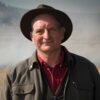
David Bowman is a professor of pyrogeography and fire science at the University of Tasmania and is an honorary professor of archaeology and natural history at the Australian National University. He explores the relationship between fire, landscapes, and humans. Bowman’s research is focused on the ecology, evolution, biogeography, and management of fire. He co-authored the textbook Fire on Earth: An Introduction.

David E. Shi sacrificed simplicity to serve as president of South Carolina’s Furman University from 1994 to 2010. He is an American intellectual historian who has published two books about simplicity in the American experience: The Simple Life: Plain Living and High Thinking in American Culture and In Search of the Simple Life: American Voices, Past and Present. He received his Ph.D. from the University of Virginia in 1976. Shi is also a co-author (with George Brown Tindall) of the best-selling book America: A Narrative History, now in its 10th edition, and is at work on a cultural history of loneliness.

David Flood is a cultural anthropologist who studies race, capitalism, and activism in the U.S. His current project is a critical exploration of Whiteness and class in the rural U.S. South based on ethnographic work in amateur music scenes where leftist activists and White working-class communities interact. Flood’s work has been supported by the National Science Foundation and the Wenner-Gren Foundation, and published in Ethos and Anthropology News. He received his Ph.D. from the University of Virginia, where he is a postdoctoral fellow, and he currently serves as co-editor-in-chief of the Journal for the Anthropology of North America.

David Graeber was a professor of anthropology at the London School of Economics. He authored Debt: The First 5,000 Years and Bullshit Jobs: A Theory, and was a contributor to Harper’s Magazine, The Guardian, and The Baffler. An iconic thinker and renowned activist, his early efforts in Zuccotti Park helped make Occupy Wall Street an era-defining movement. He died on September 2, 2020.
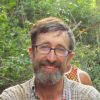
David K. Wright is a professor of anthropology at the University of Oslo in Norway. His research interests primarily revolve around understanding interactions between humans and the environments they inhabit. Over the last several years, he has pursued archaeological research in three primary geographic regions: the U.S. Southwest and in different parts of Africa. Wright’s objective is to understand where sediments originate from and where they end up being deposited within a chronometric framework (source-to-sink analysis). This informs archaeological site preservation/taphonomy and understandings of human behavior and adaptations to landscape change.

David Leins is a video journalist, filmmaker, and aspiring anthropologist. He is currently a web producer at American Ethnologist and plans to pursue a Ph.D. in anthropology focusing on youth media production and the dynamics of grassroots activist networks in Palestine and Detroit, Michigan. Leins’ pieces have appeared in such publications as the Middle East Eye, Cultural Anthropology’s AnthroPod: The SCA Podcast, and The Arab American News. To learn more about his work, visit CultureRealm. Follow him on Twitter @davidleins.
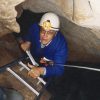
David Lewis-Williams is an emeritus professor of archaeology at the University of the Witwatersrand in South Africa. His research has primarily concerned San peoples’ rock art. He has also published books on the Upper Paleolithic cave art of Western Europe and the megalithic tombs of the Near East and Europe. Lewis-Williams founded the Rock Art Research Institute at the University of the Witwatersrand and has been awarded honorary doctorates by the University of the Witwatersrand and the University of Cape Town. He is an elected member of the Royal Society of South Africa and a past president of the South African Archaeological Society. In 2015, he was awarded the South African Order of the Baobab (Gold Class) for his contributions to archaeology. His most recent book is Image-Makers: The Social Context of a Hunter-Gatherer Ritual.
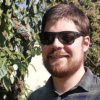
David Witelson is a doctoral candidate in archaeology at the Rock Art Research Institute at the University of the Witwatersrand. His thesis concentrates on the rock art in and around the Stormberg and uses performance theory to investigate the practice of image-making. His other research interests include the late Holocene archaeology of Southern Africa’s Later Stone Age. Witelson is currently conducting research on the archaeology and rock art in the eastern foothills of the Maloti-Drakensberg mountains with archaeologist Paloma de la Peña at the Evolutionary Studies Institute at the University of the Witwatersrand and the McDonald Institute for Archaeological Research at Cambridge University. He has also published research about Southern African stone tools
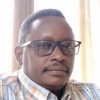
David Nkusi is a heritage management and heritage studies expert. He received his master’s degree in heritage management from the University of Kent and Athens University of Economics and Business, and is a heritage sites protection specialist at Rwanda Cultural Heritage Academy. Nkusi is working on a project supported by Linnaeus University in Sweden to study the relationship between heritage, communities, and the decolonization process in Rwanda, with a particular focus on Nyanza District. Follow him on Twitter @daudinkusi.

David Pearce is an associate professor of archaeology at the Rock Art Research Institute at the University of the Witwatersrand. His primary research interest is in cognitive archaeology, and he specializes in Southern African hunter-gatherers. Pearce mostly works with Later Stone Age rock art and related archaeology in South Africa’s Eastern Cape Province Drakensberg mountains. His other major interest is in the chronology and direct dating of rock paintings.

David Reich is a professor of genetics and of human evolutionary biology at Harvard University. His work focuses on studying population mixture, with application to both medicine and human history. In medical genetics, he has developed and applied methods to use the history of mixture of populations in the history of African Americans to find genetic risk factors that contribute to health disparities. His methods have also led to the discovery of ancient population mixtures in South Asians, Europeans, and remote Oceanians as well as interbreeding between archaic and modern humans. In 2013, Reich built the first state-of-the-art laboratory in the U.S. for studying genome-wide ancient DNA, and much of his work focuses on using the power of ancient DNA to gain new insights into medical and evolutionary genetics. His book Who We Are and How We Got Here: Ancient DNA and the New Science of the Human Past summarizes the state of this field.

David Wengrow is a professor of comparative archaeology at the Institute of Archaeology at University College London and has been a visiting professor at New York University. He is the author of several books, including What Makes Civilization? Wengrow conducts archaeological fieldwork in various parts of Africa and the Middle East. Follow him on Twitter @davidwengrow.
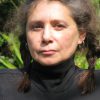
Dawn Starin, an anthropologist, received her Ph.D. from the Graduate Center of the City University of New York. She has spent decades doing research on primates—human and nonhuman. Her articles have appeared in publications as varied as Al Jazeera, Behaviour, Critical Asian Studies, The Ecologist, Gastronomica, The Humanist, Journal of the Royal Society of Medicine, Natural History, The New York Times, Philosophy Now, and Scientific American, among others.

Dean Falk is an evolutionary anthropologist who studies the brain, cognition, and culture. She is a distinguished research professor and the Hale G. Smith professor of anthropology at Florida State University. Falk is also a senior scholar at the School for Advanced Research in Santa Fe, New Mexico. She has written about wide-ranging topics that include the origins of language and music, Albert Einstein’s brain, and the discoveries of pathbreaking early hominins, such as Australopithecus africanus and Homo floresiensis (“hobbit”). Her most recent book, Geeks, Genes, and the Evolution of Asperger Syndrome (2018), is co-authored with her granddaughter Eve Penelope Schofield.

Deborah A. Thomas is the R. Jean Brownlee professor of anthropology at the University of Pennsylvania and the director of the Center for Experimental Ethnography at the University of Pennsylvania. She is the author of Modern Blackness, Exceptional Violence, and Political Life in the Wake of the Plantation, and a co-editor of the volume Globalization and Race: Transformations in the Cultural Production of Blackness (with Kamari Maxine Clarke). Thomas also co-produced and co-directed the experimental documentary Four Days in May, co-curated the Bearing Witness Exhibit and co-directed the documentary Bad Friday: Rastafari After Coral Gardens. Prior to her life as an academic, she was a professional dancer with the New York–based Urban Bush Women.

Deepa Padmanaban is a freelance journalist based in Bangalore, India. Her work has been published in BBC Earth, National Geographic, The Atlantic, The Christian Science Monitor, The Cut, and other publications. Follow her on Twitter @deepa_padma.

Deidre H. Crumbley is a sociocultural anthropologist and emerita professor of Africana studies at North Carolina State University. Her books, Spirit, Structure, and Flesh: Gendered Experiences in African Instituted Churches Among the Yoruba of Nigeria, and Saved and Sanctified: The Rise of a Storefront Church in Great Migration Philadelphia, are examples of her fascination with how people negotiate inequalities while building community. Crumbley is delving into these dynamics closer to home in her current writing project. In it, she relates incidents from her mother’s life in Jim/Jane Crow America, experienced north and south of the Mason-Dixon Line, during the Great Migration of 6 million Black Americans between the 1910s and 1970s.

Delande Justinvil is a third-year doctoral student at American University whose interests lie at the intersections of biocultural anthropology, cultural history, race and science, critical geography, and Black studies. His research brings together biological, archaeological, and archival methods to interrogate the afterlives of slavery, with a particular focus on the 19th- and 20th-century mid-Atlantic region of the U.S. Delande has participated in excavations in the Mediterranean, the Caribbean, and the Eastern Seaboard of the U.S. In 2019, he was the lead curator of Plans to Prosper You: Reflections of Black Resistance and Resilience in Montgomery County’s Potomac River Valley, presented by the American University Museum.
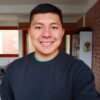
Delmar Ulises Méndez-Gómez is an essayist, documentary filmmaker, and Tseltal academic from Chiapas, México. He is a doctoral student in anthropological sciences at the Universidad Autónoma Metropolitana Unidad Iztapalapa. His field of study is affective anthropology, Native peoples, and communication. Méndez-Gómez is the author of the bilingual book of essays El giro de la Pelota. Te sututet ixtabil. He is conducting a study on the semantics of emotions and sexuality in young Tseltals in Chiapas. Follow him on Twitter @S0fes and Instagram @Delmar_penka.
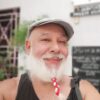
Demetrio Gómez Ávila is a leading Rroma human rights activist who has worked for more than three decades advocating for social justice and Rromani rights through decolonial and intersectional perspectives. During his activist career, he became a founding member of the Forum of European Roma Young People, the first international Romani youth organization in Europe, and president of Ververipen: Rroma for Diversity, a pioneering Spanish Rromani LGBTQ+ organization. He has served as an expert and trainer for the Council of Europe, the European Commission, and other organizations connected to racial justice, anti-fascism, and the fight against xenophobia and discrimination.

Denise Su is an associate professor in the School of Human Evolution and Social Change and a research scientist in the Institute of Human Origins. Her research explores the environments in which our early ancestors lived to provide insight into how environmental factors shaped the trajectory of human evolution. She previously was the curator of paleobotany and paleoecology and the chief academic engagement officer at the Cleveland Museum of Natural History, integrating research with public outreach and education, and leading initiatives to increase access to and diversify participation in science.
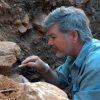
Dennis Sandgathe is a paleoanthropologist and Paleolithic archaeologist who studies Neanderthal adaptations. He is particularly interested in the development of fire use and the evidence for intentional burial among Neanderthals. He received his Ph.D. from Simon Fraser University (SFU) in British Columbia and is currently a lecturer in the department of archaeology at SFU. He is also a consulting scholar at the University of Pennsylvania Museum of Archaeology and Anthropology. He is the lead author of “Timing of the Appearance of Habitual Fire Use” and “The Roc de Marsal Neandertal Child: A Reassessment of Its Status as a Deliberate Burial.”
The authors would like to acknowledge the other members of their research team: a third Paleolithic archaeologist, Shannon McPherron (at Max Planck Institute for Evolutionary Anthropology in Leipzig, Germany) and two geoarchaeologists: Paul Goldberg (a professor emeritus at Boston University) and Vera Aldeias (a researcher at Max Planck Institute).

Devin Proctor is a cultural anthropologist who specializes in digital anthropology, studying identity and group construction in online spaces. He earned his Ph.D. from George Washington University and works as an assistant professor of anthropology at Elon University. Proctor is currently working on projects that address the process of radicalization into online white power extremism and those that trace misinformation and memorialization during the COVID-19 pandemic.

Di Hu is an archaeologist whose work focuses on the Andes. In 2016, she received her Ph.D. in anthropology from the University of California, Berkeley. She is currently working on a book titled Social Landscapes of Rebellion in the Late Colonial Andes, 1760–1840. Another of her projects is the analysis and experimental re-creation and use of Tiwanaku projectile points to shed light on state formation among the Tiwanaku, who lived in parts of present-day Bolivia, southern Peru, and northern Chile around 400–1000. She is also working to understand the social landscape of Vilcashuamán province just before it was conquered by the Incas, and she is attempting to figure out Native Andean migration patterns by analyzing colonial censuses. She is an avid flint knapper. Follow her on Twitter @dihuarchaeology.

Diana Crow is a freelance science writer based in Providence, Rhode Island. Follow her on Twitter at @CatalyticRxn.

Diana Kwon is a freelance science journalist based in Berlin, Germany, with a master’s in neuroscience from McGill University in Canada. She covers the life sciences, health, and academic life through news stories, features, and profiles. Her work has appeared in publications such as Scientific American, The Scientist, Nature, and Quanta Magazine. Follow her on Twitter @DianaMKwon.

Diana Marre is a social anthropologist who studies assisted conception and reproductive technologies, parenthood, and childhood in Spain. She received her Ph.D. from the University of Barcelona. Marre is currently an associate professor at the Autonomous University of Barcelona and the director of the AFIN Research Group and Outreach Centre. She co-edited, with Laura Briggs, International Adoption: Global Inequalities and the Circulation of Children. She is currently working on a project, funded by the Spanish Ministry of Economy and Competitiveness, studying reproductive politics, rights, and desires in Spain. Follow her on Twitter @DianaMarre and Facebook @Diana Marre.
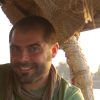
Diego Garate is an archaeologist who studies the world’s earliest cave art. He received his Ph.D. from the University of Cantabria in Spain, where he is currently working as a researcher. Garate is the author of several books and papers about the symbolism of artwork made by the first modern humans in Europe, and he leads various survey projects in Spain and France. He has discovered 10 unknown decorated caves. Follow him on Twitter @GarateDiego.

Dimitris Xygalatas is an anthropologist at the University of Connecticut, where he directs the Experimental Anthropology Lab. He has previously held positions at Princeton University, Aarhus University in Denmark, and Masaryk University in the Czech Republic, where he served as the director of the Laboratory for the Experimental Research of Religion. His research focuses on some of the things that make us human, such as ritual, sports, music, and group membership, which he studies through a combination of ethnographic and experimental methods. Xygalatas has conducted several years of ethnographic fieldwork in Southern Europe and Mauritius. He is the author of Ritual: How Seemingly Senseless Acts Make Life Worth Living and over 100 articles published in journals and volumes across several disciplines. Follow him on Twitter @xygalatas, Facebook @xygalatas, and Instagram @xygalatas.

Dina Rivera is a bioarchaeologist whose work focuses on the ethical responsibility of scientific engagement in virtual spaces, as well as the healing closure offered by human remains repatriation. She received her master’s degree from the University of South Florida and is currently the administrative and communications coordinator of the Register of Professional Archaeologists. Rivera is currently collaborating with a global set of professional archaeologists to decolonize and diversify archaeology. Follow her on Twitter @dangergrrlie.
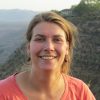
Djuke Veldhuis is an anthropologist and science writer based at Monash University in Australia, where she is a course director in the B.Sc. advanced–global challenges degree program. Her Ph.D. research examined the effects of rapid socioeconomic change on the health and well-being of people in Papua New Guinea. Veldhuis is passionate about science communication, public engagement with science, and citizen science initiatives. She has written for a series of popular science outlets, including SciDev.Net, Asia Research News, and New Scientist. Follow her on Twitter @DjukeVeldhuis.

Dolly Stolze is a forensic-science writer and researcher. Her work has been featured in Forensic Magazine, the blogs Defrosting Cold Cases and Death & the Maiden, and the travel-destination website Atlas Obscura. She is also the editor of Strange Remains. Follow her on Twitter @StrangeRemains.

Dona Davis is a cultural anthropologist who specializes in medical, psychological, and biocultural anthropology and maritime studies. She is currently a professor emeritus at the University of South Dakota. Davis has conducted research in Newfoundland, Canada; the Norwegian Arctic; and the United States. Her latest books are Twins Talk: What Twins Tell Us About Person, Self, and Society and The Meaning of Horses: Biosocial Encounters (co-edited with Anita Maurstad).
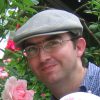
Donald C. Wood is a cultural anthropologist and an associate professor in the medical school of Akita University, Akita City, Japan, where he has been based since completing a doctoral degree in cultural anthropology at the University of Tokyo in 2004. He has been researching social conditions in northeastern Japan since 1995. He is the author of Ogata-Mura: Sowing Dissent and Reclaiming Identity in a Japanese Farming Village and was a contributor to the volume Japan’s Shrinking Regions in the 21st Century: Contemporary Responses to Depopulation and Socioeconomic Decline. Wood is also the editor of Research in Economic Anthropology, a member of the editorial board of the Japanese Review of Cultural Anthropology, and a frequent contributor to the Kyoto Journal (2011, 2014, 2018).
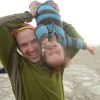
Douglas Fox is a freelance journalist who writes about the earth, the Antarctic, and polar sciences—with an occasional foray into neuroscience. His stories have appeared in Scientific American, National Geographic, and other publications. Fox is a contributing author to The Science Writers’ Handbook: Everything You Need to Know to Pitch, Publish, and Prosper in the Digital Age.

Douglas K. Smit is an anthropological archaeologist who studies the historical relationships between local communities, colonial states, and globalization. He received his Ph.D. in anthropology from the University of Illinois, Chicago, in 2018. Smit is currently a senior fellow in anthropology at the University of Pennsylvania, where he teaches classes on archaeology, economic anthropology, and popular culture. He co-directs Proyecto de Investigación Histórico Arqueológico-Santa Bárbara, a joint Peruvian-North American research program that examines the mercury mines of Santa Barbára, Peru. Using archaeology, archival research, and oral histories, this project investigates the everyday lives of past miners and works with the contemporary descendent community to illuminate how the mine’s legacy continues into the 21st century. When not teaching anthropology, Smit is most likely playing with his two rescue dogs, Charlie Darwin and Nuna. Follow him on Twitter @AnthroArch.
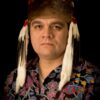
Duke Peltier recently served five consecutive terms as the elected Ogimaa (Chief) of Wiikwemkoong Unceded Territory. He provides his guidance and expertise on several boards, including the Robinson Huron Treaty Trust. In 2019, he was appointed the Children’s Commissioner of the Anishinabek Nation, a role he continues to fulfill.

Duncan Sayer is a reader in archaeology at the University of Central Lancashire. He directed excavations at Oakington early Anglo-Saxon cemetery and Ribchester Roman Fort, and has worked extensively in field archaeology. Sayer is the author of Ethics and Burial Archaeology.

Durrie Bouscaren is a radio journalist, covering migration and social change in Turkey and the Middle East. She regularly contributes to National Public Radio, Public Radio International, and various podcasts. Follow her on Twitter @durrieB.
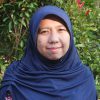
Dyna Rochmyaningsih is a freelance science journalist based in North Sumatra whose works have appeared in Nature, Science, and BBC Future. She received a National Geographic Society grant to support her coverage of the Orang Rimba.

Eben Kirksey is an associate professor of anthropology at the Alfred Deakin Institute in Melbourne, Australia. He is the author of three books: Freedom in Entangled Worlds, Emergent Ecologies, and The Mutant Project. His writing has appeared in The Guardian, The Sunday Times, The Atlantic, and Wired. Follow him on Twitter @eben_kirksey. (Author photo courtesy of Kyle Depew.)

Edda Guareschi is an adjunct lecturer in forensic science at the College of Science, Health, Engineering, and Education at Murdoch University. She is a medical doctor and specialist forensic pathologist. Guareschi has earned an M.Sc. in forensic anthropology and odontology and is a Ph.D. candidate. She conducts research for Murdoch University at the Western Australia Shipwrecks Museum, studying bones that have been submerged at sea for centuries.
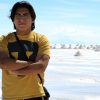
Eduardo García is an activist and photojournalist from Mexico City. His work has focused primarily on the struggles of Indigenous peoples in Mexico, Central American migration, forced disappearance, and social movements. He now forms part of the Michigan Solidarity Network, the Militarization in the Americas Research Collective, and the School of the Americas Watch. García studied political science, but he has learned more from Central American migrants demanding their rights to safe transit and from families looking for their disappeared loved ones. As a researcher and photographer, he is currently involved with the Undocumented Migration Project. Follow him on Twitter @garo87.

Edward F. Fischer is a professor of anthropology at Vanderbilt University, where he also directs the Institute for Coffee Studies. He has authored and edited several books, including Making Better Coffee: How Maya Farmers and Third Wave Tastemakers Create Value and The Good Life: Aspiration, Dignity, and the Anthropology of Wellbeing. Follow him on Twitter @effischer.

Eleanor Scerri is an archaeological scientist interested in exploring the articulation between genetics, biogeography, and material culture phylogeny to further theoretical, methodological, and scientific advances in the field of human evolution. She is the head of the Pan-African Evolution Research Group at the Max Planck Institute for the Science of Human History in Jena, Germany. Scerri’s research combines primary fieldwork in the Arabian Peninsula and West and North Africa with experimental and quantitative approaches integrated with diverse sources of information, such as genetic and palaeoclimatic, in order to test competing hypotheses about human evolution. Follow her on Twitter @DrEleanorScerri.

Elham Shabahat is a researcher and writer interested in conservation, cities, forests, and the climate crisis. She studied environmental anthropology and sciences at the Yale School of the Environment. Follow her on Twitter @eshirin.

Elic Weitzel is a human ecologist and an archaeologist pursuing a Ph.D. at the University of Connecticut. Previously, he received his M.S. in anthropology from the University of Utah and his B.A. in archaeology from Dickinson College. His research currently focuses on the behavioral, ecological, and demographic consequences of depopulation, particularly following past disease outbreaks. Weitzel has conducted fieldwork in both eastern North America and Southeastern Europe. Follow him on Twitter @ElicWeitzel.

Elisa (E.J.) Sobo is a medical anthropologist and the chair of anthropology at San Diego State University. Her research focuses on alternative approaches to health and illness, and what they tell us about the world in which we live. Her most recent projects concern vaccination choice, cannabis use for children with intractable epilepsy, conspiratorial thinking, and the COVID-19 vaccine rollout. Past president of the Society for Medical Anthropology, Sobo has published numerous peer-reviewed journal articles and has authored, co-authored, and co-edited 12 books—including second editions of Dynamics of Human Biocultural Diversity: A Unified Approach and The Cultural Context of Health, Illness, and Medicine. Her work has been featured on NPR’s All Things Considered and by The New York Times, The Washington Post, and other news outlets.

Elise Andaya is a cultural anthropologist who studies gender and reproductive politics in the U.S. and Cuba. She received her Ph.D. from New York University in 2007 and is an associate professor at the State University of New York, Albany. She is the author of Conceiving Cuba: Reproduction, Women, and the State in the Post-Soviet Era, as well as a number of articles and book chapters on gender and reproductive health care.

Elisheva L. Cohen is a postdoctoral fellow in international issues and sustainable development at Indiana University. She is a researcher and practitioner of refugee education, international and global education, and international development.

Elizabeth A. DiGangi is an assistant professor of anthropology at the State University of New York, Binghamton.

Elizabeth Grace Veatch is a zooarchaeologist who studies the diet of ancient humans from Island Southeast Asia. She received her Ph.D. from Emory University in 2021 and is currently a postdoctoral fellow in the Human Origins Program at the Smithsonian’s National Museum of Natural History. Most of her research centers on abundant rat remains from Liang Bua in Indonesia to understand how humans incorporated smaller animals into their diet. Follow her on Twitter @egveatch.

Elizabeth Keating is a professor of anthropology at the University of Texas, Austin. Her research interests include societal impacts of technology, visual and multimodal communication, virtual work groups, cross-cultural communication, language and hierarchy, knowledge transfer in families, and anthropological methods in cross-disciplinary research. She holds a B.A. from the University of California, Berkeley, and a Ph.D. in anthropology from the University of California, Los Angeles. Keating is the author of Words Matter: Communicating Effectively in the New Global Office and Power Sharing: Language, Rank, Gender, and Social Space in Pohnpei, Micronesia.

Elizabeth Obregón is a Ph.D. candidate in the anthropology department at the University of Illinois, Chicago. Her dissertation research explores race-making through the lens of family genealogies and considers how genetic ancestry tests are (re)shaping narratives of race and ancestry. Her work has been published in Ethnic and Racial Studies. She is a University of Illinois Chicago–Inter-University Program for Latino Research Mellon fellow.

Elizabeth Preston is a freelance science journalist whose writing appears in publications including The New York Times, The Boston Globe, and Science. She also contributes to McSweeney’s Internet Tendency and other humor outlets. Preston lives in the Boston area with her family. Follow her on Twitter @inkfish.
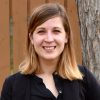
Elizabeth Sawchuk is a bioarchaeologist and anthropological archaeologist who studies the biological and social impacts of the spread of food production across sub-Saharan Africa. She conducts research in Kenya, Tanzania, and Zambia to understand the different ways in which people adopted herding and farming, and the environmental and cultural contexts of these transitions. Sawchuk’s work combines diverse evidence from human remains, ancient DNA, mortuary contexts, material culture, and ethnographic records to understand how people cope with periods of major change and what lessons we can learn from the past. She is currently a Banting postdoctoral fellow and an adjunct professor at the University of Alberta in Canada. She is also affiliated with Stony Brook University in New York, the Turkana Basin Institute in Kenya, and the Max Planck Institute for the Science of Human History (MPI-SHH) in Germany.

Elizabeth Svoboda is the author of What Makes a Hero?: The Surprising Science of Selflessness, and she has contributed to Aeon, Discover magazine, Psychology Today, and The New York Times. She lives in San Jose, California, with her husband and two young sons. Follow her on Twitter @svobodster.
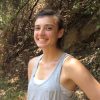
Elizabeth Weigler is a Ph.D. candidate and graduate researcher in cultural anthropology at the University of California, Santa Barbara (UCSB). For her B.A., she double majored in anthropology and history at Ripon College. She also holds an M.A. in cultural anthropology from UCSB. Her dissertation fieldwork focuses on the public heritage projects of Sikhs living in the United Kingdom. She has published with community-based endeavors, including Sikh Foundation International in 2012, and she has two forthcoming articles in Brill’s Encyclopedia of Sikhism. Follow her on Twitter @ea_weigler.

Ellie Lobovits is a filmmaker, anthropologist, and cultural observer. Her research, writing, and filmmaking focus on borderlands, the body, and feminist narratives. She holds an M.A. in visual anthropology from San Francisco State University, and her writing has appeared in The Establishment and American Anthropologist. Lobovits’ recently released documentary film Birth on the Border explores women’s stories of border crossing, border harassment, and childbirth in El Paso–Ciudad Juárez. Follow her on Facebook @birthontheborderfilm.

Elvia Andía Grageda is a linguist specializing in the study and instruction of Bolivian Quechua and Spanish. She holds a master’s degree. Andía Grageda’s research investigates the role of Quechua in the linguistic policies of Indigenous languages in higher education, particularly in the Quechua Public Indigenous University in Bolivia. Andía Grageda joined Ohio State University in 2016 and coordinates the Quechua program for both undergraduate and graduate students across six institutions. She is the world’s first certified oral proficiency interview tester for Quechua and has published on teaching methods and Indigenous stories. In 2019, she won the Premio Guamán Poma de Ayala in Indigenous Language, a national literature prize in Bolivia, for her novel Pirqakunawan parlaspa – Hablando con las paredes, which is in Quechua and Spanish.
Emiliano Rodríguez Mega is a science journalist based in Mexico. He is a bilingual reporter covering research and science policy, with a particular focus on Latin America. He has worked for a variety of media outlets, including The Associated Press, Scientific American, and the news sections of Science and Nature.

Emily K. Brunson is a cultural anthropologist who studies health care access and decision-making in the United States. She received her Ph.D. from the University of Washington and is currently an associate professor at Texas State University. She has published in American Anthropologist, Cultural Anthropology, Pediatrics, and Vaccine. Brunson co-leads CommuniVax, a rapid research and action coalition, funded by the Chan Zuckerberg Institute, in support of an equitable COVID-19 vaccination campaign.

Emily Hammer is an anthropological archaeologist of the Middle East and South Caucasia. She is currently an assistant professor of archaeology and digital humanities at the University of Pennsylvania. Her research investigates the territorial organization of ancient polities, the development of early cities, and long-term changes in the interactions between culture and environment. Hammer uses geographic information science (GIS and spatial analysis), archaeology, satellite imagery analysis, and archival research as tools for recovering human experiences that have otherwise been sidelined in narratives about the past. In particular, she works to uncover the experiences of mobile pastoralists and other communities that lived in agriculturally marginal environments, such as deserts and highlands. Hammer has conducted archaeological surveys and excavations in Turkey, the United Arab Emirates, Azerbaijan, and Iraq with funding from the National Science Foundation, the National Geographic Society, the Wenner-Gren Foundation, and other sources.

Emily Laber-Warren writes about health, psychology, and the environment for The New York Times, Newsweek, Scientific American, and other publications, and is a contributing editor at Spectrum. She is the director of health and science reporting at the Craig Newmark Graduate School of Journalism at the City University of New York, and the author of A Walk in the Woods: Into the Field Guide, an introduction to forest ecology for young children. She lives in New Jersey. Follow her on Twitter @elaberwarren.

Emily Mendenhall is a medical anthropologist and professor at the Edmund A. Walsh School of Foreign Service at Georgetown University. She has published widely at the boundaries of anthropology, psychology, medicine, and public health, and serves as a co–editor-in-chief of Social Science and Medicine—Mental Health. Her monographs include Syndemic Suffering, Rethinking Diabetes, and Unmasked. Follow her on Twitter @mendenhall_em.

Emily Sekine is the cultural and linguistics development editor for SAPIENS. She has a Ph.D. in anthropology from The New School for Social Research. Prior to joining the team at SAPIENS, she worked with academic authors to craft journal articles and book manuscripts as the founder of Bird’s-Eye View Scholarly Editing. Her anthropological research and writing explore the relationships between people and nature, especially in the context of the seismic and volcanic landscapes of Japan. Emily’s work has been supported by the Wenner-Gren Foundation, the National Science Foundation, and the Society of Environmental Journalists, among others, and her essays have appeared in publications such as Orion magazine, the Anthropocene Curriculum, and Anthropology News.

Emily Yates-Doerr is an anthropologist who studies public health nutrition in the U.S. and Guatemala. She received her Ph.D. from New York University. She is currently an associate professor at Oregon State University, where she teaches in the Food in Culture and Social Justice program, and a faculty member of the University of Amsterdam. She is the principal investigator on a multisited European Research Council–funded project documenting maternal health interventions. Yates-Doerr is the author of The Weight of Obesity: Hunger and Global Health in Postwar Guatemala and is currently working on her second book, Doing Good Science: When Fetal Development Is Global Development in Guatemala and Beyond. Follow her on Twitter at @eyatesd.

Emlyn Dodd is an archaeologist investigating ancient wine and oil production across the Mediterranean. He is the assistant director of archaeology at the British School at Rome and has worked at sites such as Pompeii in Italy and the Acropolis and Classical Agora in Athens. Dodd currently directs excavation and survey projects in Italy and Greece, including the Roman city of Falerii Novi. He is also a specialist consultant at the Roman site of Antiochia ad Cragum in southern Turkey, with the University of Nebraska, Lincoln. In addition, he works closely with the Centre for Social Justice and Inclusion at the University of Technology Sydney.

Emma Cieslik is a religious scholar, museum worker, and public historian based in the Washington, D.C., area. She has conducted extensive research among Catholic, Jewish, and religious LGBTQIA+ communities. Her writing, which focuses on religious culture in the U.S., material religion, and embodiment, has been published in Archer Magazine, Religion & Politics, The Revealer, Nursing Clio, Feminist Studies in Religion, Killing the Buddha, Teen Vogue, and more. Cieslik has also worked in a variety of museums across the D.C. area focused on the collections management and curation of objects with sacred, spiritual, and religious power.

Emma Elliott Smith is a historical ecologist and interdisciplinary scientist who studies food webs in the past and present. She received her Ph.D. from the University of New Mexico (UNM) and recently completed a Peter Buck Postdoctoral Fellowship at the Smithsonian’s National Museum of Natural History. Elliott Smith is now a postdoctoral researcher and adjunct assistant professor at both San Diego State University and UNM. She is studying the changing ecology and food web dynamics of fish populations along the Pacific Coast of North America through geochemical analyses of specimens from zooarchaeological and historical contexts.

Emma Louise Backe is a medical anthropologist who works on gender-based violence, trauma, and reproductive health issues. She received her M.A. from George Washington University and currently works as a subcontractor with the United States Agency for International Development. She is the managing editor of The Geek Anthropologist and an active member of the D.C. resistance, working to combat street harassment and improve the care provided to survivors of sexual violence. She has been published by Peeps magazine, The New Inquiry, and Anthropology News. Follow her on Twitter @EmmaLouiseBacke.
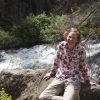
Emma Marris writes about nature, people, food, and culture from Klamath Falls, Oregon. Her stories have appeared in Discover, Nature, and The New York Times, among other publications, and she is the author of Rambunctious Garden. Find her on Twitter @Emma_Marris.

Eric Guiry is a postdoctoral fellow at the Trent Environmental Archaeology Laboratory at Trent University in Canada. He is an archaeological scientist specializing in using chemical analyses to explore past cultural and biological phenomena. Guiry’s research explores questions about how humans interacted with their environments in the past.
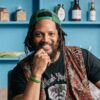
Eric Jackson is an organizer, educator, author, and filmmaker. He serves as the visionary and a co-founder of Black Yield Institute, an organization committed to building a movement toward Black land and food sovereignty in Baltimore, Maryland. He and his team are committed to building a cooperatively owned grocery store in South Baltimore, while also conducting Black-led research, facilitating political education, and organizing an action network. A Baltimore native from the Cherry Hill Community, Jackson is the recipient of numerous awards and a public speaker who has presented hundreds of addresses and workshops to diverse groups about food sovereignty, building power, and establishing strong organizations to address complex social issues, specific to people of African descent.

Eric Montgomery is an assistant professor of anthropology at Michigan State University and a faculty member in peace and conflict studies at Wayne State University. He is a co-author of the book An Ethnography of a Vodu Shrine in Southern Togo: Of Spirit, Slave, and Sea (with Christian Vannier) and an editor and a contributor to Shackled Sentiments: Slaves, Spirits, and Memories in the African Diaspora. Some of his publications can be found in the journal Shaman, The Applied Anthropologist, the Journal of Religion and Society, the Journal of Africana Religions, Visual Anthropology, American Ethnologist, and the Journal of Ritual Studies.
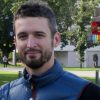
Eric Simons is an anthropological archaeologist and a Ph.D. candidate at the University of British Columbia, primarily focused on the interplay between archaeology and contemporary peoples. His doctoral research examines how archaeology can contribute to Canada’s truth and reconciliation process, particularly through applied, community-driven archaeological investigation in Indian Residential School mortuary contexts.
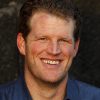
Erik Vance is a science writer and author based in Baltimore, Maryland. He writes about psychology and the environment—and does the odd archaeology story. His work has appeared in Harper’s Magazine, National Geographic, and Scientific American.

Erin L. Thompson is a professor of art crime at John Jay College of Criminal Justice, City University of New York. She holds a Ph.D. in ancient art history and a J.D., both from Columbia University, and is the author of the book Possession: The Curious History of Private Collectors From Antiquity to the Present. Currently, she is curating an exhibit of artwork made by detainees at Guantánamo Bay. Follow her on Twitter @artcrimeprof.
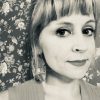
Erin Routon is a Ph.D. candidate in sociocultural anthropology at Cornell University. Her current research focuses on legal advocacy in migrant “family” detention facilities in the U.S., primarily in South Texas. Through her work, she is interested in addressing questions of care and the management of the complex relationship between the state, for-profit carceral entities, and humanitarian legal advocacy within the current climate of immigrant detention. A native Texan, she presently lives in Ithaca, New York, while she completes her dissertation.

Erina Baci is a Ph.D. student in anthropology at the University of Michigan. She received her M.A. from Mississippi State University and her B.A. from the University of Toronto. Her dissertation research consists of settlement pattern analyses to explore questions of settlement, movement, and mobility in human communities from the end of the Bronze Age to the end of the Iron Age in present-day Western Kosova and Northern Albania. Baci is currently the geodatabase manager for RAPID-Kosova, an archaeological survey project based in Western Kosova. She shares her writing and other resources on the blog The Albanian Archaeologist.

Erle C. Ellis is a professor of geography and environmental systems at the University of Maryland, Baltimore County, where he also directs the Laboratory for Anthropogenic Landscape Ecology. His research investigates the ecology of human landscapes from local to global scales with the aim of informing sustainable stewardship of the biosphere. Ellis recently published the book titled Anthropocene: A Very Short Introduction.
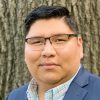
Ernest Weston Jr. is a member of the Oglala Sioux Tribe and was born and raised on the Pine Ridge Indian Reservation in the Porcupine district. He’s traveled the world studying regenerative food systems development and sociology as a student at both South Dakota State University and Oglala Lakota College. Weston has put his skills to use on the reservation and now serves as the Oglala Sioux Tribe’s economic development strategist. He is a well-known community member who is highly involved in grassroots volunteering and outreach projects.
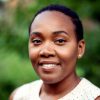
Eshe Lewis holds a Ph.D. in cultural anthropology from the University of Florida. She has worked extensively with Afro-descendants in Peru on women’s rights, gender violence, social movements, Black feminism, and identity politics. Lewis was the public anthropology fellow at SAPIENS magazine from 2020 to 2022 and is currently the project director for the SAPIENS public scholars training fellowship program.

Esteban M. Gómez has done archaeological research on pre-Columbian and historic sites in Mexico and Central America. He received his Ph.D. from the University of California, Berkeley, and is currently the curator of digital anthropology at the University of Denver. His research is concerned with colonial encounters in the Americas, postcolonial narratives, cultural representation, and rituals of citizenship performed at museums and heritage sites. Gómez is currently working on a creative arts research project about Denver high school students’ views of the social, economic, and demographic changes happening in their city. Follow him on Instagram @curation.days and on Twitter @CurationDays.
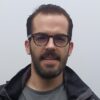
Esteban Salmón is a Ph.D. candidate in anthropology at Stanford University studying the criminal justice system in Mexico. He carried out two years of ethnographic fieldwork in prosecutors’ offices and neighborhoods in Mexico City to understand how democratic pressures for crime control affect the everyday work of prosecutors and the lives of incarcerated communities. Follow him on Twitter @EsteSalmon.

Esther Landhuis is a biologist-turned-journalist who freelances in the San Francisco Bay Area. Her stories have appeared in NPR, Scientific American, Nature, Undark, Science News for Students, and other publications. She enjoys writing profiles and stories about surprise and hope. Follow her on Twitter @elandhuis.
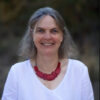
Fay Johnston is a public health physician and epidemiologist who heads the interdisciplinary Environmental Health Research Group at the Menzies Institute for Medical Research to address environmental determinants of health, including the epidemiology of air pollution from outdoor fires and domestic wood heaters, aero-allergens, and heatwaves. She also holds a concurrent appointment as a specialist medical adviser for population health services in the Tasmanian Department of Health. Johnston also led an expert team from the United States, Canada, and Australia to produce the only existing global mortality burden estimate for landscape fire smoke, which placed the health impacts of tropical deforestation fires on the global agenda. She was named among 145 international women leaders in fire science by the Fire journal in 2018 and the 2019 air quality champion by the Clean Air Society of Australia and New Zealand.

Faye Harwell is a Ph.D. candidate in anthropology at Boston University, where she studies the life history patterns of great apes. For her dissertation research, she is investigating the growth and development of orangutans during their long juvenile period. In particular, she is examining hormonal changes that lead to somatic growth and sexual maturation. Her past research looked at the jumping performance of frogs under different moisture and temperature conditions. Harwell received both her B.A. and M.S. degrees in biology from Clark University in Worcester, Massachusetts.

Felix Padel is an anthropologist trained at the University of Oxford and the University of Delhi. He has authored many articles and three major books: Sacrificing People: Invasions of a Tribal Landscape, Out of This Earth: East India Adivasis and the Aluminum Cartel (with Samarendra Das), and Ecology, Economy: Quest for a Socially Informed Connection (with Ajay Dandekar and Jeemol Unni). Padel has been a professor of rural management at the Indian Institute of Health Management Research and has lectured and taught at Jawaharlal Nehru University and many other institutions in India and elsewhere.
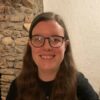
Ffion Reynolds is an honorary research fellow at Cardiff University who specializes in ancient Britain and Ireland. In 2011, she joined Cadw, the historic environment service for the Welsh government, to work as a community archaeologist in the south Wales area. Reynolds oversees the public programs for Cadw across 130 sites in Wales. She also co-directs a public archaeology project in the multi-period landscape around the important site of the Bryn Celli Ddu Neolithic passage tomb on the island of Anglesey.

Fiona Murphy is an anthropologist based in Queen’s University Belfast. As an anthropologist of displacement, she works with Stolen Generations in Australia and people seeking asylum and refuge in Ireland, the United Kingdom, and Turkey.

Fiona Stewart is a lecturer in wildlife conservation at Liverpool John Moores University in England. She earned her Ph.D. in biological anthropology from the University of Cambridge in 2011. Her current research uses genetics to improve a chimpanzee survey across the Greater Mahale Ecosystem of western Tanzania. In collaboration with Alexander Piel, The Nature Conservancy, the Frankfurt Zoological Society, and the Jane Goodall Institute, she is working to prioritize key areas for conservation using technology, genetic census, and investigation of gene flow. She and her collaborators also provide information and assistance to local and regional governments to coordinate village land use plans with conservation strategies.
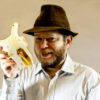
Flint Dibble is an archaeologist whose research focuses on foodways in ancient Greece and urbanism, climate change, religious ritual, and everyday life. He is a Marie-Skłodowska Curie research fellow in the School of History of Archaeology and Religion at Cardiff University. His project ZOOCRETE: The Zooarchaeology of Historical Crete: A Multiscalar Approach to Animals in Ancient Greece combines archaeological, textual, and biomolecular evidence for the human management and consumption of animals. Follow him on the social platform X @FlintDibble and on YouTube.

Frances Jenner is a journalist based in Medellín, Colombia. She writes about Indigenous languages, politics, and minority rights for Latin America Reports, and has contributed to The Bogotá Post and The Next Web. Follow her on Twitter @Fjenner91.

Frances Sutton is a Ph.D. candidate in anthropology at Ohio State University, where she earlier earned her M.A. She received her B.A. in anthropology from Kenyon College. Her research focus is sports and culture in the United States, with a particular interest in the relationship between gender and sports consumption. Her dissertation research focuses on the intersection of sports and social identity among Arab American women in the U.S.

Francine Russo is a journalist based in New York City. She has written for The Atlantic, TIME, Parade, and Scientific American. She is the author of Love After 50: How to Find It, Enjoy It, and Keep It. (Author photo credit Jane Hoffer.)

Franco Viviani is a retired anthropologist teaching at the University of Padua, Italy. He has studied many different topics, mainly related to the evolution of the body, and conducted field research across Guatemala, Costa Rica, the Philippines, Malaysia, Indonesia, Malta, Guinea-Bissau, and South Africa. He served as the president of the International Society for Physical Activity and Health for 14 years. Viviani is currently interested in the impacts of globalization.
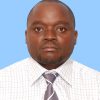
Fred Nyongesa Ikanda is a lecturer in and the chair of the sociology and anthropology department at Maseno University in Kenya. He received his doctorate in social anthropology from the University of Cambridge and has published extensively on refugee and migration issues. His current research focuses on kinship, religion, and gender relations in the Dadaab refugee camps. Follow him on Twitter @Wnyongesa.
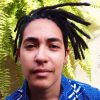
Gabby Omoni Hartemann (they/them) is Afro Guianese, Omo Òrìs̩à in the Ilê Axé Iyaba Omi community (Brazil), and a transgender Ph.D. student in anthropology and archaeology at the Federal University of Minas Gerais (Brazil). Their approach to archaeology is defined by African and Afrodiasporic ontologies and the anti-colonial commitment to invoke the many silenced stories of their homeland Guiana, a contemporary French colony situated in the Amazon. Their dissertation project deals with past and present relations between the land and Afro Amazonian communities in the Guianas. They are currently a co-director of “Archéo La Caroline: Lavi Nou Gangan,” an ethnographic and archaeological project based in Guiana that centers on a 19th-century site of African enslavement and its relationship with Indigenous and Afrodiasporic communities.
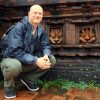
Gabriel D. Wrobel is an associate professor of anthropology at Michigan State University and the director of the Central Belize Archaeological Survey Project. He researches mortuary and biological variability in ancient Maya individuals interred in caves and rockshelters in central Belize.
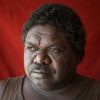
Gabriel Maralngurra is a co-manager and founding member of Injalak Arts, a cooperative of Indigenous artists from the Aboriginal community of Gunbalanya in northern Australia. A painter and printmaker, his work features a breadth of subject matter—from ancestral narratives, plants, and animals to imagery of early colonial encounters. In January 2020, he undertook a residency at the University of Virginia to coincide with the launch of The Inside World: Contemporary Aboriginal Memorial Poles at The Fralin Museum of Art. His work is held in the Kluge-Ruhe Aboriginal Art Collection, the National Museum of Australia, the National Gallery of Victoria, and the British Museum.
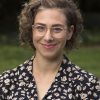
Gabriella Soto is an anthropological archaeologist who studies how migrants, border agents, humanitarian activists, artists, land managers, and other stakeholders interact within the landscape of migration and contemporary security along the Mexico border in the U.S. Southwest. She received her Ph.D. from the University of Arizona in 2018, and after completing a postdoctoral fellowship at Trinity College, she joined the faculty at Arizona State University’s Barrett Honors College as a visiting fellow.

Gary Urton is the Dumbarton Oaks professor of pre-Columbian studies in the department of anthropology at Harvard University. His latest book is Inka History in Knots: Reading Khipus as Primary Sources.
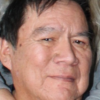
George “Choch” Kenny is an Elder, Knowledge Keeper, and Band member of the Lac Seul First Nation (Lac Seul Ojibwe). He has a lifetime of knowledge of Lac Seul First Nation’s topography, protocols, and local language. He is currently completing a master’s thesis in cultural anthropology at Lakehead University in Canada. A former journalist and editor of Wawatay News, Kenny is also a translator for Oji-Cree and Anishinaabe First Nations. He is the author of Indians Don’t Cry (Gaawiin Mawisiiwag Anishinaabeg) and a co-author of the play October Stranger, which was dramatized in 1985. Kenny, his son Mike Auksi, Alicia Colson, and other members of the Teaching Circle are working on a project partially funded by an Engaged Research Grant from the Wenner-Gren Foundation on Animism: An Insider’s View.

George Gmelch is a professor of anthropology at the University of San Francisco and at Union College. He is the author of a dozen books, including the memoir Playing With Tigers: A Minor League Chronicle of the Sixties. He played minor league baseball in the Detroit Tigers organization in the 1960s, and in 1997, he received a Lifetime Achievement Award from the Minor League Baseball Association for his writings on baseball.

George M. Leader is an archaeologist who studies hominid and early human behavior through the analysis of stone-tool manufacturing and usage. His research in South Africa focuses on how early hominins produced stone tools and the subsequent transmission of cultural knowledge from 2 million years ago until 300,000 years ago. He received his Ph.D. from the University of the Witwatersrand in Johannesburg, South Africa, and is a visiting assistant professor of anthropology at The College of New Jersey.

George Nicholas is a professor of archaeology at Simon Fraser University (SFU) in British Columbia, Canada. He was the founding director of SFU’s Indigenous Archaeology Program in Kamloops (1991–2005). Nicholas has worked closely with the Secwepemc and other First Nations in British Columbia, and Indigenous groups worldwide. Since 2003, he has also been an adjunct faculty member of the archaeology department at Flinders University in South Australia.

Georgiana Murariu is a public engagement officer in anthropology at University College London. She is currently working on the Anthropology of Smartphones and Smart Ageing project. Murariu has worked as a qualitative researcher in different sectors ranging from commercial market research to user research for local government. She has a master’s in social anthropology from Goldsmiths College, University of London.

Gideon Lasco is an anthropologist and a physician based in Manila, the Philippines. He obtained his Ph.D. from the University of Amsterdam and his M.D. from the University of the Philippines, where he currently teaches anthropology. His research includes the chemical practices of young people, the meanings of human height, the politics of health care, and the lived realities of the Philippine “drug war.” Lasco has a weekly column in the Philippine Daily Inquirer, where he writes about health, culture, and society. Follow him on Twitter @gideonlasco.

Gillian Tett serves the Financial Times as the editorial board chair and editor-at-large in the U.S. She writes weekly columns, covering a range of economic, financial, political, and social issues. Before joining the Financial Times in 1993, Tett was awarded a Ph.D. in social anthropology from Cambridge University based on fieldwork in the former Soviet Union. She is the author of The Silo Effect: The Peril of Expertise and the Promise of Breaking Down Barriers, which looks at the global economy and financial system through the lens of cultural anthropology. She also authored Fool’s Gold: How Unrestrained Greed Corrupted a Dream, Shattered Global Markets, and Unleashed a Catastrophe, a 2009 New York Times bestseller and Financial Book of the Year at the inaugural Spear’s Book Awards. Her next book, Anthro-Vision: A New Way to See in Business and Life came out in June 2021. Follow her on Twitter @gilliantett.
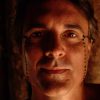
Glenn H. Shepard Jr. is an ethnobotanist, filmmaker, and museum curator at the Goeldi Museum in Brazil. He has worked with diverse Indigenous peoples of Latin America, particularly in Amazonia. Shepard’s research interests include ethnobiology, medical anthropology, visual anthropology, and the territorial rights of isolated peoples. He has participated in the production of several films and has collaborated with Columbia University and the American Museum of Natural History in curating an online virtual reality exhibit on Kayapó Indigenous filmmakers in Brazil. He has also published literary nonfiction and reviews in The Common, The Millions, Broad Street, Popula, and The New York Review of Books. He has won several writing awards, including a prize for anthropological fiction from the Society for Humanistic Anthropology and the W.H.R. Rivers Graduate Prize. In 2020, his poem “The Fish Trap” was featured by SAPIENS for World Poetry Day. He blogs at Notes From the Ethnoground. Follow him on Twitter @TweetTropiques and Instagram @ethnoground_photography.

Gloria Dickie is a freelance environmental journalist. Her work has appeared in National Geographic News, High Country News, onEarth, Discover, Outside, Adventure Journal, and Motherboard. Reporting trips have taken her across North America and beyond. She’s covered wildfires in Arizona; grizzly bear and black bear management in Alberta and Montana; the 2015 U.N. Climate Summit in Paris, France; and energy issues north of the Arctic Circle, in Tromsø, Norway. She has a master’s degree in environmental journalism from the University of Colorado.

Gordon Barclay is an archaeologist who spent 30 years as the principal inspector and latterly head of policy at the government heritage agency Historic Scotland. He is active in challenging “fake history” presented by both English and Scottish nationalists, and has written extensively on the misuse of the past for political ends.

Gordon Mathews teaches anthropology at the Chinese University of Hong Kong. He has written about topics as varied as the Japanese generation gap, Hong Kong identity, what makes life worth living, and cross-cultural meanings of happiness. His most recent research has focused on low-end globalization, leading to the books Ghetto at the Center of the World: Chungking Mansions, Hong Kong; Globalization From Below: The World’s Other Economy, for which he was an editor; and The World in Guangzhou: Africans and Other Foreigners in China’s Global Marketplace (forthcoming).

Grace Neveu is a linguist who studies sign languages. Her research has centered on Peru, both in the Indigenous communities of the Amazon and the urban populations of Iquitos. Her particular focus is on emerging sign languages and how community makeup affects the process of language development. Neveu’s research has been supported by the National Institutes of Health and the National Science Foundation.

Graham Pruss earned a Ph.D. in anthropology at the University of Washington. His research focuses on vehicle residency, homelessness, critical narratives, public policy, and outreach to marginalized people in the United States. Pruss currently contracts as a liaison for the unhoused community for the city of Seattle, serves on the mayor of Seattle’s Innovation Advisory Council, and has led the documentation of regional vehicle residency for the annual point-in-time count of homeless and unhoused people since 2017.

Greg Beckett is an assistant professor of anthropology at Western University in Canada. He specializes in the study of crisis, disaster, and trauma from the standpoint of moral experience. His work focuses on how people make sense of exceptional events and on the ethical and political relationships that emerge in and around responses to crisis. His geographic area of expertise is the Caribbean, specifically Haiti, where he has worked for about 15 years. His most recent publication is There Is No More Haiti: Between Life and Death in Port-au-Prince. Follow him on Twitter @GregBeckett9.

Gregory Forth obtained his doctorate from Oxford University and is professor emeritus in anthropology at the University of Alberta and a fellow of the Royal Society of Canada. He has conducted ethnographic fieldwork in Indonesia over a period of nearly 50 years and is the author of 10 books and more than 100 scholarly papers. His interests include religion, ritual, oral narrative, ethnobiology, and systems of classification.

Greta Uehling is a teaching professor at the University of Michigan who studies war and migration. Her major projects have examined the experiences of refugees, asylum-seekers, and the internally displaced. She has published two books, Everyday War: The Conflict Over Donbas, Ukraine and Beyond Memory, and co-edited two volumes. She has also authored numerous scholarly articles and book chapters. Uehling earned her Ph.D. in cultural anthropology from the University of Michigan. She was previously a postdoctoral fellow with the Solomon Asch Center for the Study of Ethnopolitical Conflict at the University of Pennsylvania and a fellow with Institute for the Humanities at the University of Michigan.
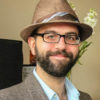
Gwynfryn Thomas is an anthropologist working in the nonprofit sector in London. He is also a columnist, with Djuke Veldhuis, for SAPIENS. His poems have appeared in Haque, Pomegranate, SAPIENS, and Vocal Solo. Follow him on Twitter @matthewgthomas.

Haidamteu Zeme Newme is a doctoral student in humanities and social sciences at the Indian Institute of Technology Delhi, India. Her research areas include translation studies, comparative literature, archival processes, and Indigenous cultures and their language systems. Her article “Writing Every-Day in Translation: Thoughts on Genre, Language, and the ‘Translated Naga’” published in the South Asian Review and short pieces on Indian artforms appear on the Memeraki blog. She also writes about her translation journey between Zeme and English. Her forthcoming publication, due out from Zubaan, focuses on migration and women.

Hal Phillips is an ethnographic filmmaker. He and his partner, Meg Kinney, founded Bad Babysitter, a business ethnography firm based in New Orleans, Louisiana. Combining principles of the social sciences, documentary filmmaking, and business acumen, Bad Babysitter helps businesses and organizations grow by becoming more empathetic to the people they serve. He earned a bachelor’s degree in philosophy from Emory University and has since molded himself into a researcher, videographer, editor, and digital storyteller whose media are video and photography.

Hannah Borenstein is a Collegiate assistant professor in the Social Sciences Collegiate Division and Harper-Schmidt fellow in the Society of Fellows at the University of Chicago. Her research and writing is broadly concerned with intersections of sports, race, gender, politics, and labor, with a particular focus on long-distance running in Ethiopia. Her book project, provisionally titled Running to Labor: Ethiopian Women Distance Runners in Networks of Capital, comes from over two years of fieldwork in Ethiopia, along with multisited archival and anthropological research in the U.S., Europe, and Asia. Borenstein received her Ph.D. in anthropology from Duke University, with certificates in African and African American studies, and gender, sexuality, and feminist studies.

Hannah Hoag is an award-winning science journalist who covers people, the planet, and the ways they interact. She is a former managing editor of Arctic Deeply and has written for The Atlantic, Discover, Nature, and other publications. Follow her on Twitter @hannahh.

Hannah Odoom is a multi-genre writer who explores poetry and academic writing and their intersections. In 2021, she received her B.A. in anthropology from Temple University in Philadelphia, Pennsylvania. Her writing explores themes of language, identity, belonging, and what it means to carve out diasporic identity. Odoom is also interested in investigating the exchange and intersection of African diasporic language in musical forms by exploring the use of pidgin, patois, and U.K. slang within music genres.

Hannah Seo is a freelance science journalist, podcast writer, and poet based in Brooklyn, New York. She has covered everything from neuroscience to Indigenous harvest rights, coral cell cultures, and the power of small talk. Their work can be found in WIRED, Scientific American, The Walrus, and Popular Science, among other publications.
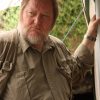
Harold L. Dibble is a Paleolithic archaeologist specializing in Neanderthal behavior. He has directed excavations at a number of sites in France, Egypt, and Morocco, and he is the director of the Laboratory for the Study of Ancient Technology, which focuses on experiments in stone tool production. He is currently a professor of anthropology at the University of Pennsylvania and curator-in-charge of the European Archaeology Section at the Penn Museum.
The authors would like to acknowledge the other members of their research team: a third Paleolithic archaeologist, Shannon McPherron (at the Max Planck Institute for Evolutionary Anthropology in Leipzig, Germany) and two geoarchaeologists: Paul Goldberg (a professor emeritus at Boston University) and Vera Aldeias (a researcher at the Max Planck Institute).
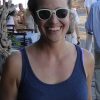
Heath Cabot is a sociocultural anthropologist who studies refugees, human rights, and access to health care in Greece. In 2010, she received her Ph.D. from the University of California, Santa Cruz, and she is now an assistant professor of anthropology at the University of Pittsburgh. She is the author of On the Doorstep of Europe: Asylum and Citizenship in Greece. Her current project, which has been funded by the Fulbright Program, is on austerity, community-based health care, and solidarity movements in Greece. She is also co–editor-in-chief of the Political and Legal Anthropology Review. Follow her on Twitter @heathcabot.

Helena Miton is a cognitive anthropologist and complexity postdoctoral fellow at the Santa Fe Institute. She investigates how culture is maintained through time and what determines the shapes traditions take. She holds her Ph.D. in cognitive science from Central European University and previously was a member of the Minds & Traditions research group at the Max Planck Institute for the Science of Human History. Follow her on Twitter @HelenaMiton.
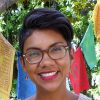
Hilda Lloréns is a cultural anthropologist whose research investigates the workings of race, gender, power, and resistance across sociocultural contexts. Geographically, her focus is on the Hispanic Caribbean, mainly Puerto Rico, and U.S. Latinas. She received her Ph.D. from the University of Connecticut and is an assistant professor of anthropology at the University of Rhode Island. Lloréns is the author of Imaging the Great Puerto Rican Family: Framing Nation, Race, and Gender During the American Century and a co-author of Arrancando Mitos de Raíz: Guía Para una Enseñanza Antirracista de la Herencia Africana en Puerto Rico (Pulling Myths Up From the Roots: A Guide to an Antiracist Teaching of the African Heritage in Puerto Rico). Currently, she is conducting ethnographic research on environmental injustice, racism, and women’s activism in Puerto Rico. Follow her on Twitter @HildaLlorens.

Hipólito Sanchiz Alcaraz graduated in journalism and humanities from CEU-San Pablo University in Madrid. His research focused on historical battles in the history of Spain. He is an adjunct professor in the Spanish department at Colgate University in Hamilton, New York.
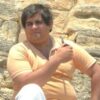
Hipólito Sanchiz Álvarez de Toledo is an adjunct professor of ancient history at the Faculty of Humanities and has a C.C. in communication from the CEU-San Pablo University in Madrid, where he teaches prehistory, the ancient history of the Near East, and archaeology. He also coordinates and teaches the digital archaeology module at the CEU School of Architecture. His main research lies in the ancient Middle East, especially Mesopotamia, and his second line of research has to do with contemporary Spanish history. He co-published A History of Spanish Secret Societies (with León Arsenal) and various articles in Aportes and Revista de Órdenes Militares on military orders in the 19th and 20th centuries. Álvarez de Toledo has also participated with the CEU-San Pablo (Madrid) and UTPL (Loja, Ecuador) universities in the project to apply new technologies in prehistory at the Quillusara site in Ecuador. He is a member of the editorial board of the F.U.E. Historical Research Cuadernos magazine and secretary of the Military Orders Magazine of the Spanish Órdenes Foundation.

Holly Dunsworth is an associate professor of anthropology at the University of Rhode Island, where she teaches courses on human origins, evolution, and variation. She performs paleontological work at the Early Miocene sites on Rusinga Island, Kenya, where some of the most ancient fossil apes are preserved. She also studies living primates, particularly when it comes to their energy use, reproduction, and life history. Follow her on Twitter @HollyDunsworth.

Holly Walters is a cultural anthropologist and lecturer in anthropology at Wellesley College. She received her Ph.D. from Brandeis University and is a current member of the MeTooAnthro Collective. Her ethnographic work focuses on Shaligram (sacred ammonite) practice in Nepal, in India, and among the global South Asian diaspora. She is the author of Shaligram Pilgrimage in the Nepal Himalayas and a book on Shaligram interpretive practice due out in 2023. She also has multiple article publications on ritual and divine personhood in South Asia, discussing topics such as the language of fossil folklores, deity darshan, and robot ritual performance. Follow her on Twitter @Manigarm.

Huarui “Cherry” Zhang is a senior at Hamilton College double majoring in anthropology and economics. She is writing her senior thesis on college students’ pursuit of “collegiate fun” and the formation of neoliberal subjecthood.

Hugh Gusterson is a professor of anthropology at the University of British Columbia, Vancouver. With a Ph.D. from Stanford University, he writes about nuclear culture, drone warfare, counterinsurgency, international security, and ethics. His books include Drone: Remote Control Warfare, People of the Bomb: Portraits of America’s Nuclear Complex, and Nuclear Rites: A Weapons Laboratory at the End of the Cold War. Gusterson’s essays have appeared in The Washington Post, the Los Angeles Times, The Boston Globe, the San Francisco Chronicle, Science, Nature, and New Scientist. He recently was awarded the Anthropology in Media Award by the American Anthropological Association. Follow him on Twitter @GustersonP.
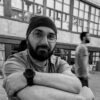
Husik Ghulyan is a visiting scholar at the Cornell Institute of Archaeology and Material Studies with a Ph.D. in urban and environmental studies. His dissertation examined the production of urban space in Turkey. His current research studies the political geographies of modern and Soviet Armenia.

Ian Gilligan is an honorary associate in the School of Humanities at the University of Sydney in Australia. His interdisciplinary research examines the origins of clothing and psychological and philosophical implications of wearing clothes. He graduated in medicine (M.B., B.S.) and prehistoric archaeology (M.Phil.) at the University of Sydney, and earned his Ph.D. in paleoanthropology at the Australian National University. Gilligan is the author of the books Another Tasmanian Paradox: Clothing and Thermal Adaptations in Aboriginal Australia and Climate, Clothing, and Agriculture in Prehistory: Linking Evidence, Causes, and Effects. The latter received the 2020 PROSE Award for best book in archaeology and ancient history.
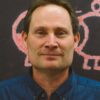
Ian Kuijt is a professor of anthropology at the University of Notre Dame, Indiana, who specializes in the social geography of village life within small-scale ancient and historical communities. Drawing on ethnography, social theory, and archaeology, his scholarship focuses on emerging social inequality, identity, and the construction of community through ritual and economic means. Kuijt is the author or co-editor of seven books, including Transformation by Fire: The Archaeology of Cremation in Cultural Context and People of the Middle Fraser Canyon: An Archaeological History. His co-authored book Island Places, Island Times uses photographic-recognition software to play 23 linked 2-minute films that he designed, filmed, and produced with William Donaruma. Kuijt has written numerous articles in scholarly publications, including the Proceedings of the National Academy of Sciences, Current Anthropology, American Antiquity, Economic Anthropology, and the Journal of Archaeological Science.
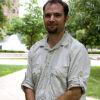
Ian Lindsay is an associate professor of anthropology at Purdue University in Indiana. He has been studying the history and prehistory of the South Caucasus since 2000, and his research has been supported by the National Science Foundation, the Wenner-Gren Foundation, the Fulbright Program, and Purdue University, among other organizations. He most recently led an archaeological settlement survey of Armenia’s upper Kasakh River Valley as part of Project ArAGATS, a long-standing international archaeological collaboration between Armenian and American scholars. His archaeological practice incorporates the use of GIS and terrestrial and aerial remote-sensing techniques.

Ina Goel works with hijras, a “third” gender community in India, and is the founder of The Hijra Project. She has a B.A. in journalism and an M.A. in social work from the University of Delhi in India. She completed her M.Phil. in social medicine and community health from Jawaharlal Nehru University. Goel has worked with All India Radio and Al Jazeera English. She was a recipient of a German Academic Exchange Service (DAAD) scholarship at the department of epidemiology and international public health at Bielefeld University and an INLAKS scholar at the department of gender and sexuality studies at University College London. Goel has also worked with FHI 360 (a nonprofit human development organization), UNICEF, the National AIDS Control Organization in India, the Indian Institute of Mass Communication, and the humanitarian organization Plan International. She is currently a Hong Kong Ph.D. Fellowship Scheme awardee based in the anthropology department at The Chinese University of Hong Kong.

Ioana Iancu has a master’s in cultural anthropology and development from the University of Bucharest. Her work as a research assistant for U.S. and Dutch anthropologists doing fieldwork in Romania focused on tuberculosis, childbirth, housing, and urban marginality. She has also volunteered for many cultural projects and film festivals. Follow her on Twitter @IoanaIancu.

Ira Bashkow teaches cultural anthropology at the University of Virginia. His award-winning book The Meaning of Whitemen: Race and Modernity in the Orokaiva Cultural World explores the entanglement of ideas of race with development and modernity in Papua New Guinea. His essays on the history of anthropology have been published in American Anthropologist, Histories of Anthropology Annual, History of Anthropology Newsletter, and TLS: The Times Literary Supplement. Bashkow is currently writing a book tentatively titled The Corporate Form: History, Culture, Capital.

Irma McClaurin is an award-winning author, poet, and “born again” anthropologist. She is the founder of the Irma McClaurin Black Feminist Archive at the W.E.B. Du Bois Library at the University of Massachusetts, Amherst. SAPIENS Public Anthropology Fellow Eshe Lewis published an in-depth conversation with McClaurin about the archive at “Preserving Black Women’s Stories as a Labor of Love.” McClaurin holds a Ph.D. and M.A. in anthropology and an MFA in English. She has published more than 90 articles and three books of poetry. She is the author of Women of Belize: Gender and Change in Central America and the editor of Black Feminist Anthropology: Theory, Politics, Praxis, and Poetics, which was selected as an Outstanding Academic Title by Choice Magazine in 2001. McClaurin is a member of the National Writers Union and the Triangle Association of Freelancers, and she sits on the Ms. Magazine committee of scholars. She has a forthcoming collection called JustSpeak: Essays on Race, Culture, and Politics in America. Follow her on Twitter as the culture and education editor @insightnews.

Isabella Alexander-Nathani is an award-winning writer, filmmaker, educator, and cultural anthropologist focused on human rights. She is the founder and executive director of Small World Films, a nonprofit production studio that uses grounded social science research and social impact storytelling to lift the voices of marginalized populations to the global stage and to fight for international policy change. Follow her on Twitter @isabella_writes and Instagram @smallworldfilms.

Ishaan Patil completed a master’s of science in environmental anthropology from the University of Kent. He now works as a research assistant at the James Hutton Institute in Scotland. His research interests include environmental conservation, education, migration, food, and social inequality. Patil tries to make his research more accessible through drawing and art. Follow him on Twitter @ish2an and on Instagram @ishaanpatil.

István Darabán is a Transylvanian-born freelance writer covering topics in science, philosophy, anthropology, and archaeology. He has a B.Sc. in biomedical science from King’s College London and is currently completing his M.Sc. in neuroscience and science communication at the University of Amsterdam.

Iván Sandoval-Cervantes is an assistant professor in anthropology at the University of Nevada, Las Vegas. He was a research fellow at the Animal Law and Policy Program at Harvard Law School in 2022. He received his B.A. in anthropology from the Universidad de las Américas-Puebla, an M.Sc. in the philosophy of social science from the London School of Economics, and a Ph.D. in anthropology from the University of Oregon. His work on internal and transnational migration from Mexico to the United States has appeared in academic journals and in his recent book, Oaxaca in Motion: An Ethnography of Internal, Transnational, and Return Migration. For his research project on animal rights in Mexico, Sandoval-Cervantes has been conducting ethnographic fieldwork in his hometown of Ciudad Juárez, Chihuahua, since 2017.

Ivo Ngade is a postdoctoral researcher at the Centre for Gender and Africa Studies at the University of the Free State in South Africa and a visiting professor of anthropology and ethnography in Africa at Ghent University in Belgium. In 2014, he received his Ph.D. from the department of African languages and cultures at Ghent University. Ngade’s research focuses on behavioral changes during disease outbreaks, especially emerging infectious diseases (including Ebola and COVID-19), cultural changes due to technology use, and transnational migration. Follow him on Twitter @ivongade.
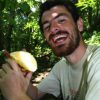
Jacob Dunn is a senior lecturer in zoology at Anglia Ruskin University in the U.K. From 2012 to 2016, he was a lecturer in the division of biological anthropology at the University of Cambridge.

Jacob Pagano is a journalist based in Los Angeles, California. Follow him on Twitter @jacobapagano.

Jacqueline Knirnschild currently lives and works on a permaculture farm in western Massachusetts. She holds a B.A. in English from the University of Mississippi, and her writing has been published in Ninth Letter, Product Magazine, Full Stop, Number: Inc, The Key Reporter, Burnaway, and the Cleveland Review of Books.
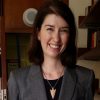
Jacqueline Matthews is a consultant archaeologist and postgraduate student at the University of Western Australia. Her research interests include Australian Indigenous archaeology, modern human origins, and theoretical approaches in archaeology. Together with Martin Porr, she is currently working on a project titled Decolonising Human Origins. Follow her on Twitter @archaeo_jacq.
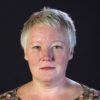
Jacqui Mulville is an archaeologist with over 35 years of experience in professional, field, and academic archaeology. She is a professor of bioarchaeology and the head of archaeology and conservation at Cardiff University. Mulville specializes in archaeological science (particularly zooarchaeology and bioarchaeology), the archaeology of islands and coasts, heritage management and archaeological practice, and contemporary and historical archaeology.
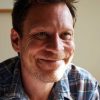
James Suzman is an anthropologist and the head of the Cambridge-based research and support group Anthropos. His latest book is Affluence Without Abundance: The Disappearing World of the Bushmen. Follow him on Twitter @anthrotwittering.

Jamie E. Shenton is a cultural anthropologist who specializes in questions of gender and sociocultural change among Indigenous Kichwa peoples in the Ecuadorian Amazon. She received her Ph.D. from Vanderbilt University and is currently an associate professor of anthropology at Centre College in Kentucky. Shenton also teaches in gender studies, social justice studies, and Latin American studies. Her most recent work on the Kichwa can be found in the edited volume From Filmmaker Warriors to Flash Drive Shamans: Indigenous Media Production and Engagement in Latin America. Her research at present focuses on the politics of representation in contemporary feminism.

Jamie Hodgkins is an associate professor of anthropology at the University of Colorado, Denver. She is a co-director for excavations at the Arma Veirana site in northwestern Italy. Her research is focused on reconstructing modern human and Neanderthal behaviors by uncovering their hunting and butchering patterns and analyzing the mobility of their prey species through isotopic analysis. Hodgkins’ other research projects include excavations in France, Spain, Bulgaria, Morocco, and South Africa.

Jan Simek is a faculty member in the department of anthropology at the University of Tennessee, Knoxville. His research interests include Paleolithic archaeology, human evolution, quantitative analysis, spatial analysis, archaeology of the Southeastern United States, and cave archaeology. He has been involved in the exploration of numerous “unnamed caves,” a naming practice used to protect their location, in the Cumberland Plateau. Simek has been instrumental in the investigation of ancient artwork dating back thousands of years. He has also conducted research in France at Neanderthal habitation sites.
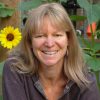
Jane Palmer is a science journalist based in Eldorado Springs, Colorado. She covers public health, medicine, natural hazards, and climate change. Follow her on Twitter @JanePalmerComms.

Janine R. Wedel is an anthropologist and professor in the Schar School of Policy and Government at George Mason University. She earned her Ph.D. from the University of California, Berkeley. She is the global policy chair at the University of Bath in the U.K. and a fellow at the Hertie School of Governance in Berlin. She is the author of Unaccountable: How the Establishment Corrupted our Finances, Freedom, and Politics and Created an Outsider Class, now out in paperback and as an e-book. Her other books include the award-winning Shadow Elite, Collision and Collusion: The Strange Case of Western Aid to Eastern Europe, and The Private Poland. A public intellectual, Wedel has contributed to more than a dozen major media outlets and appeared on CNN, MSNBC, Al-Jazeera, BBC, and NPR. She is a co-founder and the former president of the Association for the Anthropology of Policy. Follow her on Twitter @janinewedel.

Janric van Rookhuijzen is a classical archaeologist and postdoctoral research fellow at Utrecht University. His research (part of a Veni grant by the Dutch Research Council, 2019–2022) concerns the symbolism, archaeology, and reception history of the Acropolis of Athens. Van Rookhuijzen’s work examines the role monuments played in the formation of Greek, European, and Western identities, disentangling stories about enemy action embedded within the discourse surrounding them. His research traces the role of such stories in a reviewed architectural history and topographical reconstruction of the Acropolis temples and has been featured in National Geographic.
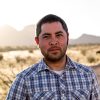
Jason De León is an assistant professor of anthropology at the University of California, Los Angeles, and the director of the Undocumented Migration Project. He is the author of The Land of Open Graves: Living and Dying on the Migrant Trail. Follow him on Twitter @Jason_p_deleon.
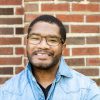
Jason Vasser-Elong’s research focuses on identity in a postcolonial context. He was the 2022 SAPIENS poet-in-residence. He studied anthropology and later received his MFA from the University of Missouri, St. Louis, where he is currently a teaching professor in English and African American studies in the Pierre Laclede Honors College and a doctoral student in the College of Education. Vasser-Elong is the author of the poetry collection shrimp. His essay “Treading the Atlantic” was presented at the Canadian Association for the Advancement of Netherlandic Studies conference as an introduction to the keynote lecture on postcolonial memory. He also presented that essay at the American Anthropological Association’s conference “Truth and Responsibility” in Baltimore, Maryland, in 2021.
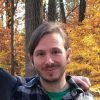
Jay Schwartz is a Ph.D. candidate in the psychology department at Emory University. As part of his M.A. in anthropology from Ohio State University, he studied howler monkey behavior in southern Mexico. Before that, he did volunteer work rehabilitating orphaned howler monkeys at the Alouatta Sanctuary in Panama. His current research focuses on vocal communication, emotion, and evolution in rhesus macaques and humans. Follow him on Twitter @jayrrulous.
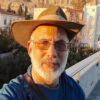
Jay Silverstein is a senior lecturer in archaeology at Nottingham Trent University. He specializes in the archaeology of warfare and has extensive experience in the study of conflict, imperialism, and the rise and fall of complex societies. His doctoral research centered on the archaeology of the Aztec-Tarascan Imperial frontier. Silverstein also has 17 years of experience searching for people who were missing in action from past wars, including WWII, Korea, and Vietnam. As part of this effort, he developed Enterprise GIS to track the investigation and recovery of 80,000 missing persons. Silverstein is a director of the study of the Graeco-Roman city of Thmouis (Tell Timai) in the Nile Delta.

Jayne Wilkins is a paleoarchaeologist and Discovery Early Career Research Fellow at the Australian Research Centre for Human Evolution, Griffith University, Australia. She researches the origins of human adaptation, social learning, and sociality. Wilkins approaches her studies from three directions: archaeological excavation, lithic analysis, and experimental archaeology.
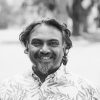
Jayur Madhusudan Mehta is an assistant professor in anthropology at Florida State University, specializing in the study of North American Native Americans, human-environment relationships, and the consequences of French and Spanish colonization in the Gulf South. He has led archaeological excavations in both the U.S. and Mexico, and he recently appeared in the documentary Keepers of the Mound. Mehta, a National Geographic Society research fellow, has published research in the fields of environmental archaeology, ethnohistory, and Indigenous religious and ritual practices. He is also an executive board member of the Gulf Communities Research Institute, a Louisiana-based nonprofit that works to preserve the health, resilience, and lifeways of coastal communities threatened by sea-level rise and climate change. See the Adams Bay documentary for more information.

Jean-Jacques Hublin, a paleoanthropologist, is the director of the department of human evolution at the Max Planck Institute for Evolutionary Anthropology in Leipzig, Germany. He also holds the international chair in paleoanthropology at the Collège de France in Paris, and he is the founder and president of the European Society for the Study of Human Evolution. The origins of Neanderthals and Homo sapiens, and, most notably, the interactions between the two groups, have occupied a central place in his career. Follow him on Twitter @jjhublin.

Jeanette Moreland is an anthropologist, budget travel enthusiast, and media wonk. She received her M.A. in sociocultural anthropology from Binghamton University in New York, publishing a thesis on border theory and the anthropology of airports. An advocate of educational media, she currently works with U.K.-based Archaeosoup Productions, writing and producing videos and online content about anthropology and archaeology for public audiences. In her spare time, she volunteers on heritage projects and goes on backpacking trips. Follow her on Twitter @jeanetterz.

Jeannette Plummer Sires is a Spanish and American archaeologist, museum curator, and human remains specialist based in the U.K. She plays a pivotal role in promoting inclusivity and sustainability in archaeology as a board member of the Council for British Archaeology and founding member of the European Society of Black and Allied Archaeologists. Plummer Sires’ extensive international fieldwork spans Iceland, Antigua and Barbuda, Spain, Morocco, and the U.K. She is a researcher at the Natural History Museum in London and previously served as project curator of archaeological assemblages at the British Museum. Follow her on X, formerly Twitter, @JPlummerSires.

Jeffrey Bristol is a Ph.D. candidate in anthropology at Boston University and a J.D. candidate at the University of Michigan Law School. He also holds an M.A. in Middle Eastern studies from the University of Chicago. He has conducted research on how Muslims use and understand Islamic law in Mauritania and in the United States, primarily focusing on the greater Boston area. Bristol is interested in Islamic law as it is practiced today and its development throughout history.

Jeffrey H. Cohen is a cultural anthropologist at Ohio State University who studies migration, rural development, and food in Mexico, Turkey, and China. He received his Ph.D. from Indiana University in 1994. Cohen is the editor of the forthcoming book Handbook of Culture and Migration and the author of numerous articles and books, including Eating Soup Without a Spoon: Anthropological Theory and Method in the Real World and Cultures of Migration: The Global Nature of Contemporary Mobility (co-authored with Ibrahim Sirkeci). Currently, he directs the project Household Producer Effects of Rural Diet Transformation for the National Science Foundation.

Jeffrey H. Schwartz is an emeritus professor in the departments of anthropology and history and philosophy of science at the University of Pittsburgh, and a research associate in the division of anthropology at the American Museum of Natural History. His publications span evolutionary and systematic theory, primate (including human) evolution and systematics, developmental and theoretical biology, and bioarchaeology. Schwartz’s books include The Human Fossil Record series, Sudden Origins: Fossils, Genes, and the Emergence of Species, The Red Ape: Orangutans and Human Origins, and Skeleton Keys: An Introduction to Human Skeletal Morphology, Development, and Analysis. In 1997, he began a detailed study of the human fossil record that has now encompassed virtually all known skulls, jaws, and teeth, as well as numerous pelvic and leg bones. Schwartz has been invited to write critical reviews of the uses and abuses of DNA analyses in human evolutionary studies, the most recent on mitochondrial DNA.

Jeffrey Hoelle is a cultural anthropologist who studies human-environment interactions in the Brazilian Amazon with a focus on land uses, livelihood strategies, and deforestation. He is the author of Rainforest Cowboys: The Rise of Ranching and Cattle Culture in Western Amazonia. An assistant professor of anthropology at the University of California, Santa Barbara, he received his Ph.D. in anthropology from the University of Florida in 2011. His current research focuses on perceptions of nature and the creation of space in Amazonia, as well as the integration of anthropological data and insights into research on global environmental change.

Jeffrey Shenton is a visiting assistant professor of anthropology at Centre College in Danville, Kentucky. He teaches courses in cultural anthropology, linguistic anthropology, environmental anthropology, the anthropology of violence, the anthropology of tourism, the anthropology of religion, oral history, and writing. Shenton’s published research has examined the language and cognition of space and the environment in an Amazonian Kichwa community in Napo, Ecuador, and a Tzotzil Maya community in Chiapas, Mexico. He is deeply interested in the way that language frames understandings of and motivations toward action in the natural world. He received his Ph.D. in anthropology from Vanderbilt University in 2014.

Jemima Pierre is a sociocultural anthropologist and professor of African American studies at the University of California, Los Angeles. She is the author of The Predicament of Blackness: Postcolonial Ghana and the Politics of Race. Pierre’s essays on global racial formation, Ghana, immigration, and African diaspora theory and politics have appeared in a number of academic journals, including Cultural Anthropology, Current Anthropology, Feminist Review, Social Text, Identities, Cultural Dynamics, Transforming Anthropology, Journal of Haitian Studies, Latin American Perspectives, American Anthropologist, and Philosophia Africana.

Jena Barchas-Lichtenstein leads media research and partnerships at the applied research think-tank Knology. They received their Ph.D. in anthropology from the University of California, Los Angeles, in 2013. They currently partner closely with news organizations to support the critical work of journalism in informing the public. They are co-principal investigator of Meaningful Math, a four-year National Science Foundation–funded project to help support public quantitative reasoning through journalism.

Jennifer A. Sandlin is an associate professor in the School of Social Transformation at Arizona State University. She received an M.A. in anthropology from the University of New Mexico and a Ph.D. in adult education from the University of Georgia. Her research focuses on the intersections of education, learning, and consumption, and on understanding and theorizing popular culture as public pedagogy. She recently published Disney, Culture, and Curriculum and Teaching With Disney (both co-edited with Julie C. Garlen). Her current projects focus on exploring post- and anti-humanist perspectives on Disney, and include analyses of Disney’s Animal Kingdom Theme Park and the animated movies Zootopia and Wall-E.

Jennifer Ashley is a cultural anthropologist who studies media and democracy in Latin America. She received her Ph.D. from Brown University and is a term associate professor at George Mason University. She is currently working on a bilingual digital humanities site that focuses on the 1988 plebiscite vote that marked the beginning of Chile’s return to democracy. Ashley has published numerous articles, including “Context as Content in Chilean Community Media” and “Prime-Time Politics: News, Parody, and Fictional Credibility in Chile.” Follow her on Twitter @jen_ashley.

Jennifer Lynn Kelly is an associate professor of feminist studies and critical race and ethnic studies at the University of California, Santa Cruz (UCSC). Her research broadly engages questions of settler colonialism, U.S. empire, and the fraught politics of both tourism and solidarity. Her first book, Invited to Witness: Solidarity Tourism Across Occupied Palestine, is a multisited interdisciplinary study that shows how solidarity tourism has emerged in Palestine as an organizing strategy embedded in and working against histories of sustained displacement. Kelly’s next project, co-edited with Somdeep Sen and Lila Sharif, is Detours: A Decolonial Guide to Palestine, the next volume in the Detours Series at Duke University Press after the inaugural Detours: A Decolonial Guide to Hawai’i. She is also a founding collective member of the Institute for the Critical Study of Zionism and UCSC’s Faculty for Justice in Palestine.

Jennifer Raff is an associate professor of anthropology at the University of Kansas with a dual Ph.D. in anthropology and genetics, and more than 14 years of experience in researching ancient and modern human DNA from the Americas. In addition to her research, she has written on issues of scientific literacy and emerging research in genetics and anthropology at her own website, Violent Metaphors, and for The Guardian, HuffPost, Evolution Institute, and Forbes.
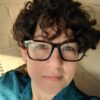
Jenny L. Davis is a citizen of the Chickasaw Nation and an associate professor of anthropology and American Indian studies at the University of Illinois, Urbana-Champaign, where she is the director of the American Indian Studies Program and co-director of the Center for Indigenous Science. Her research interests sit at the intersections of Indigenous language futurism, Queer Indigenous studies, speculative fiction and poetry, the Native American Graves Protection and Repatriation Act and repatriation, and collaborative/community-based methods. Her books include the poetry volume Trickster Academy, Talking Indian: Identity and Language Revitalization in the Chickasaw Renaissance (which won the 2019 Beatrice Medicine Award from the Association for the Study of American Indian Literatures), and the co-edited volume Queer Excursions: Retheorizing Binaries in Language, Gender, and Sexuality (with Lal Zimman and Joshua Raclaw). Queer Excursions won the 2014 Ruth Benedict Book Prize from the Association for Queer Anthropology and the American Anthropological Association. Follow her on Instagram @Chickashajenny.

Jessaca Leinaweaver is a cultural anthropologist who studies families, adoption, and migration in Latin America and Spain. She received her Ph.D. from the University of Michigan and is currently a professor of anthropology and the director of the Center for Latin American and Caribbean Studies at Brown University. Leinaweaver is the author of The Circulation of Children: Kinship, Adoption, and Morality in Andean Peru, which won the Margaret Mead Award in 2010. Her most recent book is Adoptive Migration: Raising Latinos in Spain. Follow her on Twitter @jessacabeza.
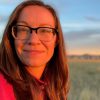
Jessica M. Smith is an anthropologist and associate professor in the engineering, design, and society department at the Colorado School of Mines, where she also directs humanitarian engineering graduate programs. Smith’s research interests center on public accountability and engineering, with a particular focus on the mining and energy industries. She is the author of Mining Coal and Undermining Gender: Rhythms of Work and Family in the American West and Extracting Accountability: Engineers and Corporate Social Responsibility.

Jessica Madison Pískatá is a doctoral candidate in cultural anthropology at the University of California, Santa Cruz. She holds an MFA in poetry from the New School in New York City and served as a teaching volunteer with the Peace Corps in Mongolia. Her research in eastern Mongolia exists at the intersection of poetics and environmental anthropology, and focuses on how creative genres mediate relations between humans and geological landscapes.
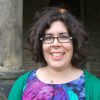
Jessica Taylor is a linguistic anthropologist whose work focuses on the intersections of anthropology, media studies, and gender studies. She received her Ph.D. from the University of Toronto and is currently a research associate in women, gender, and sexuality studies at Harvard University. Her research examines the work of women writers in both new and old media, from ethnographic research on flexible labor and romance writers to discourse analysis of mommy bloggers. She is also currently working on a project on the media coverage of Uber in Winnipeg, Manitoba, in collaboration with Sheri Gibbings at Wilfrid Laurier University.

Jessica Thompson is an assistant professor of anthropology at Yale University and a paleoanthropologist/paleoarchaeologist who works primarily in Africa. She leads excavations in Malawi and has worked (or is working) on other archaeological projects in Ethiopia, Tanzania, and South Africa. Thompson seeks to understand the interactions between humans and human ancestors and their environments in ancient Africa. Her primary approaches are archaeological field recovery and zooarchaeology, or the analysis of animal bones from archaeological sites.
.

Jill Neimark is a science journalist and an author of adult and children’s fiction. A former contributing editor at Discover Magazine, she has written for Scientific American, Science, Nautilus, Aeon, Undark, The New York Times, NPR, Quartz, and Psychology Today.
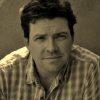
Jim O’Donnell is a freelance journalist, author, and conservation photographer who focuses on climate change adaptation, human migration, and public lands. He is the author of Notes for the Aurora Society and numerous articles, several sordid tales, many brilliant observations, a few half-finished novels, various angry letters to the editor, and other scribblings. O’Donnell lives in New Mexico with his two children. Follow him on Twitter @jimodonnell2.
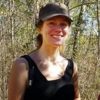
Jo Setchell is a primatologist and professor of anthropology at Durham University.

Joakim Goldhahn is a Swedish archaeologist who has been working in Australia on and off since 2000. He graduated from Umeå University in 2000 with a Ph.D. thesis on north European rock art, and he worked as a professor of archaeology at Linnæus University in Sweden between 2009 and 2020. Since 2012, Goldhahn has participated in and led research on Aboriginal rock art in western Arnhem Land, including three Australian Research Council–funded projects. In 2020, he was appointed the Rock Art Australia Ian Potter Kimberley Chair at the Centre of Rock Art Research + Management at the University of Western Australia.

Joan Taylor is a professor of Christian origins and Second Temple Judaism at King’s College London. She approaches her work in a multidisciplinary manner: by incorporating literature, language, history, and archaeology. Taylor has written numerous books and articles in her fields of interest. Her latest book is What Did Jesus Look Like? Follow her on Twitter @profjoantaylor.

Joanna Mishtal is a cultural anthropologist whose research focuses on reproductive rights and policies in Poland, Ireland, and the EU. She received her Ph.D. from the University of Colorado, Boulder, and is an associate professor at the University of Central Florida. She is the author of The Politics of Morality: The Church, the State, and Reproductive Rights in Postsocialist Poland and a co-editor of A Fragmented Landscape: Abortion Governance and Protest Logics in Europe (with Silvia De Zordo and Lorena Anton). Mishtal is currently conducting research in the United Kingdom as a visiting fellow at the University of Kent’s law school in the Kent Centre for Law, Gender, and Sexuality.

Joanna Pearce is a fourth-year B.S. student at the University of Alberta in Canada. She has completed two education abroad experiences: an anthropological experiential health seminar in Shanghai, China, at Fudan University and a mortuary archaeology dig in Drawsko, Poland, with the Adam Mickiewicz University. Pearce co-authored an article in the Journal of Clinical Investigation about her team’s work in breast cancer research at the Cross Cancer Institute in Edmonton, Canada.
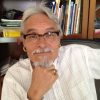
Joe Watkins, a member of the Choctaw Nation of Oklahoma, is the American Indian liaison officer, supervisory anthropologist, and chief of the Tribal Relations and American Cultures Program of the National Park Service in Washington, D.C. He was the director of the Native American Studies Program at the University of Oklahoma from 2007 to 2013 and an associate professor of anthropology at the University of New Mexico from 2003 to 2007. His study interests concern the ethical practice of anthropology and the study of anthropology’s relationships with descendant communities and populations, including American Indians, Australian Aboriginals, New Zealand Maori, and Japanese Ainu.

Joel C. Kuipers is a professor of anthropology and international affairs at George Washington University. He is a linguistic anthropologist who has conducted long-term ethnographic research in Indonesia and, more recently, in the U.S. on language and media among high school cellphone users and on COVID-19 funerals.

Joel Robbins is a sociocultural anthropologist whose work focuses on the study of values, ethics, and religion. His Ph.D. is from the University of Virginia, and he is currently the Sigrid Rausing Professor of Social Anthropology at the University of Cambridge. He is the author of the prize-winning book Becoming Sinners: Christianity and Moral Torment in a Papua New Guinea Society, and he is currently working on a book about the place of values in anthropological theory.

John Borneman received his Ph.D. from Harvard University and is currently a professor of anthropology at Princeton University. His fieldwork has been primarily in Germany and Syria, with ethnographic projects on the symbolic forms of political identification, the relation of the state to everyday life, kinship and sexuality, and forms of justice and accountability. His publications include Cruel Attachments: The Ritual Rehab of Child Molesters in Germany, Political Crime and the Memory of Loss, Syrian Episodes: Sons, Fathers, and an Anthropologist in Aleppo, the edited volume Death of the Father: An Anthropology of the End in Political Authority, and Belonging in the Two Berlins: Kin, State, Nation. His current research is on xenophobia, xenophilia, and forms of incorporation of the foreign in Germany.

John Edward Terrell is the Regenstein Curator of Pacific Anthropology at the Field Museum in Chicago; a professor of anthropology at the University of Illinois, Chicago; an adjunct professor of anthropology at Northwestern University; and an honorary fellow in anthropology at the University of Wisconsin, Madison. His most recent book is A Talent for Friendship: Rediscovery of a Remarkable Trait. He is currently working on a new book with his son Gabe Terrell, with the working title Thoughts, Dreams, and Delusions: Why We Aren’t as Smart as We Think We Are. Terrell manages the Facebook group Museums & Global Heritage, which is dedicated to working on the care, interpretation, and celebration of world heritage collections through shared projects promoting co-curation, global heritage management, digital access to collections, and other activities central to reinventing museums in the 21st century as vigorous contributors to global understanding, heritage appreciation, and peace. His other websites are Science Dialogues and Marae Encounters.
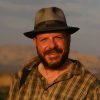
John Hawks is a paleoanthropologist who specializes in the fossil and genetic record of human evolution. He received his Ph.D. from the University of Michigan and is currently the Vilas-Borghesi Distinguished Achievement Professor of Anthropology at the University of Wisconsin, Madison. He is a co-author, with Lee Berger, of Almost Human: The Astonishing Tale of Homo naledi and the Discovery That Changed Our Human Story, about their work in the Rising Star Cave of South Africa. His blog has received international attention for its coverage of human evolution research. Follow him on Twitter at @johnhawks.

John Millhauser is an anthropological archaeologist whose research in Central Mexico investigates how communities are constituted, what they do, and how they influence social and ecological change. He earned his Ph.D. from Northwestern University and is an associate professor in the department of sociology and anthropology at North Carolina State University. His current work integrates economic anthropology and political ecology to better understand the roots of poverty and structural violence.

John S. Thomas is the deputy director of the University of Leicester Archaeological Services. He has directed many large-scale excavation projects with a particular expertise on ancient sites and landscape approaches. Two of these projects, at Humberstone and Beaumont Leys on the outskirts of Leicester, produced nationally important evidence for large-scale “aggregated” settlements from the Iron Age. Between 2010 and 2014, Thomas co-directed research excavations at Burrough Hill, the region’s best-preserved Iron Age hillfort, and in 2013, he directed the excavation of an extensive Iron Age settlement at Glenfield. Thomas has published widely, and to a range of audiences, through monographs, peer-reviewed articles in national and local journals, and popular archaeology publications. He is the honorary editor for the archaeological content of Transactions of the Leicestershire Archaeological and Historical Society.
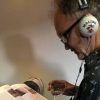
John Schofield holds a Ph.D in prehistoric archaeology from Southampton University in England. He was employed for 21 years by English Heritage. In 2010, he was appointed the director of cultural heritage management studies at the University of York, and from 2012 to 2018, he served as head of the department of archaeology. Schofield is a fellow of the Society of Antiquaries of London and a member of the Chartered Institute for Archaeologists. He is also a docent in contemporary archaeology and cultural heritage in the archaeology department at Turku University in Finland, an adjunct professor at Griffith University in Australia, and a senior research fellow at Flinders University in Australia. His current research interests include social significance, cultural heritage participation and well-being, technological landscapes, music and place, and the application of archaeological methods to tackle marine plastic pollution.
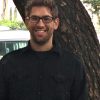
Jonah S. Rubin is an assistant professor of anthropology at Knox College in Galesburg, Illinois. His research and teaching focus on memory, death, democracy, and human rights in Spain and Latin America. His writing has appeared in American Ethnologist, PoLAR: Political and Legal Anthropology Review, Alteridades, and the International Journal of Transitional Justice. Follow him on Twitter @js_rubin.
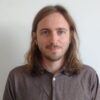
Jonathan Gardner is an archaeologist and heritage researcher who studies the material traces of the contemporary world. He joined Edinburgh College of Art (ECA) in October 2020 as a Leverhulme Early Career Fellow to undertake a four-year research project studying the creation and use of waste-modified landscapes. His research examines different types of land reclamation, artificial hill building, dumping, and land art across the United Kingdom and how these are used and valued as creative spaces. Prior to joining ECA, Gardner was a teaching fellow in heritage and museum studies between 2017 and 2019 at the Institute of Archaeology, University College London (UCL). He has worked extensively as a commercial archaeologist excavating on construction sites throughout London and southeast England since 2007. His first monograph, developed out of his Ph.D. research, is titled A Contemporary Archaeology of London’s Mega Events: From the Great Exhibition to London 2012.

Jonathan R. Goodman is an interdisciplinary researcher at the Leverhulme Centre for Human Evolutionary Studies and at Cambridge Public Health who is interested in signaling systems, behavior, and health. Prior to his Ph.D., he was a postgraduate researcher in evolutionary biology at City University of New York and recently completed a fellowship at the Institute of Global Health Innovation, Imperial College London, funded by the Economic and Social Research Council. Goodman helped launch Cambridge Public Health, an interdisciplinary research center at the University of Cambridge focused on major problems in global and public health. His writings have appeared in New Scientist, The Guardian, Scientific American, Aeon magazine, the BMJ, and The Lancet Digital Health.

Jonathan Walz is an archaeologist who studies the later archaeology of Africa. He earned a Ph.D. from the University of Florida and is currently an assistant professor at Rollins College in Winter Park, Florida. His research addresses historical archaeology in East Africa, human linkages across the ancient Indian Ocean, and materials of ritual and healing.

Jordan Dalton is a research scientist at the American Museum of Natural History and the director of the Proyecto de Investigación Arqueológica Las Huacas. She works in the Chincha Valley of Peru, and her research addresses imperial expansion and practices of weight and measurement. Dalton is also passionate about public archaeology and working with communities around the site of Las Huacas.
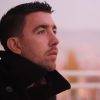
Jordan Kiper is a postdoctoral fellow in the department of anthropology at the University of California, Los Angeles (UCLA). His interests in anthropology and evolutionary theory center on cooperation and conflict. Before arriving at UCLA, he received his Ph.D. from the University of Connecticut. Kiper is a co-editor of the volume Perspectives on Forgiveness: Contrasting Approaches to Concepts of Forgiveness and Revenge (with Susie DiVietro) and has published over 20 articles covering topics on the anthropology of religion, law, and violence. His current work examines cross-cultural aspects of philosophy, moral psychology, and folk epistemology.
Robin Albarano, Kiper’s collaborator for this photo essay project, is a photographer and artist living in Los Angeles, California. As a photographer, she focuses on personality portraits and photographs that capture the lives of subjects, including veterans and survivors of armed conflicts.

Joseph Aguilar is from San Ildefonso Pueblo, New Mexico, and is a Senior Archaeologist with Bering Straits Native Corporation. He received his Ph.D. in anthropology from the University of Pennsylvania. His general research interests include Indigenous archaeology, museology, landscape archaeology, and Tribal historic preservation. Aguilar is interested in exploring the links between Tribal communities, anthropology, and museums. He has worked as an adviser to several institutions, including the Museum of Indian Arts and Culture in Santa Fe, New Mexico; the de Young Fine Art Museum of San Francisco; the MARKK Museum in Hamburg, Germany; and the School for Advanced Research in Santa Fe.

Joseph L. Graves Jr. is an evolutionary biologist who studies the genomic basis of adaptation in model organisms such as fruit flies and bacteria. He has also written extensively concerning biological and social conceptions of race in humans. He received his Ph.D. from Wayne State University and is currently a professor of biological sciences at North Carolina A&T State University. He is the author of The Emperor’s New Clothes: Biological Theories of Race at the Millennium, The Race Myth: Why We Pretend Race Exists in America, and A Voice in the Wilderness: A Pioneering Biologist Explains How Evolution Can Help Solve Our Biggest Problems (in press). Graves is currently working on two National Science Foundation projects associated with microbial evolution in bacteria associated with metals and bacteriophages. Follow him on Twitter @gravesjl55.

Joseph Wilson is a Ph.D. candidate in linguistic and semiotic anthropology at the University of Toronto. His work examines how scientists use metaphor and other figurative language to communicate with one another in laboratory settings. He currently writes for the CBC, Spacing magazine, and The Globe and Mail, and has co-authored three books. Follow him on Twitter @josephwilsonca.

Josh Gabbatiss is a freelance science journalist based in London, U.K. His articles have appeared in New Scientist, Nautilus, Hakai Magazine, and the BBC, among other publications. Follow him on Twitter @Josh_Gabbatiss.
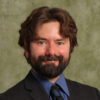
Josh Reno is a professor in the department of anthropology at Binghamton University in New York. He is the author of Waste Away: Working and Living With a North American Landfill and Military Waste: The Unexpected Consequences of Permanent War Readiness. He has also done research and written in the fields of critical disability studies, bio-semiotics, and critical race theory.

Josh Yarden has been slanting rhymes and exploring the tension between power lines for a very long time. He studies and teaches anthropology and critical thinking at the Givat Haviva International School, with Jews and Palestinian Arabs from Israel, and students from 25 other countries on five continents. Yarden received a B.A. in Middle East Studies from McGill University, an M.A. in Israel Studies from the University of Haifa, and a Ph.D. in Education, Culture, and Society from the University of Pennsylvania, where he wrote a dissertation on cultural transformation through reflective practice in experiential learning.
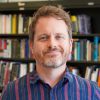
Joshua A. Bell is a cultural anthropologist who combines ethnographic fieldwork with research in museums to examine the shifting network of relationships between people, artifacts, and the environment. He is the curator of globalization and the acting director of the National Anthropological Archives at the Smithsonian’s National Museum of Natural History. To date, Bell has carried out research in Papua New Guinea, Hawai’i, and the Washington, D.C., metropolitan area. He has edited several books, including Linguistic and Material Intimacies of Cell Phones (with Joel C. Kuipers), and written articles on materiality, political ecology, the politics of heritage and museums, and cellphones. He co-directs the Smithsonian’s Recovering Voices’ Mother Tongue Film Festival and directs the Summer Institute in Museum Anthropology. Follow him on Twitter @JoshuaABellDC.

Joshua Allan Lindal is a Ph.D. candidate in anthropology at the University of Manitoba in Canada. He is involved in ongoing paleoanthropological excavations in Serbia conducted by Belgrade University in collaboration with the University of Winnipeg.
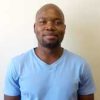
Joshua Kumbani is a Ph.D. candidate in archaeology at the University of Witswatersrand in South Africa. His research interests lie in music archaeology, archaeoacoustics, ethnomusicology, experimental archaeology, and heritage management. Kumbani is a member of the Association of Southern African Professional Archaeologists.

Joshua Rapp Learn, a reporter who studied cultural anthropology as an undergraduate, covers stories about archaeology, the environment, and space. He writes for National Geographic, Scientific American, Archaeology, and Hakai Magazine. Follow him on Twitter @JoshuaLearn1.

Josie Glausiusz is a freelance journalist who writes about science and the environment for Nature, National Geographic, Scientific American, Hakai Magazine, Aeon, and Undark Magazine. She is the former On Science weekly columnist for The American Scholar and the author of Buzz: The Intimate Bond Between Humans and Insects. Her Hakai Magazine article “Land Divided, Coast United” won Amnesty International Canada’s 2015 Media Award (online media). Follow her on Twitter @josiegz.
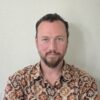
Joss Whittaker is a doctoral candidate in archaeology at the University of Washington, Seattle. His research focuses on the relationships between geochemistry, trade networks, cultural exchange, and resistance in the Aru Islands, Maluku, Indonesia.
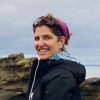
Jude Isabella writes about science and the environment for readers big and small. Her book Salmon: A Scientific Memoir explores the human relationship with Pacific salmon, noting that the modern relationship is very one-sided. Isabella’s latest book for kids, Bringing Back the Wolves, explores the ecological restoration of Yellowstone National Park in the United States. (Headshot by Grant Callegari.) Follow her on Twitter @judeisabella.

Julia K. Sloane is a psychological and medical anthropologist who studies disruption, transformative experiences, and the biocultural processes of development and aging. She received her Ph.D. from the University of California, San Diego, where she currently teaches. She enjoys interdisciplinary research and exploring deep tech-enabled futures and innovations with academic and industry-oriented groups, including Explorers’ Lab.

Julia M. Klein, a cultural reporter and critic in Philadelphia, has written for The New York Times, The Wall Street Journal, The Washington Post, Mother Jones, and Slate. Follow her on Twitter @JuliaMKlein.

Julianne Yip is a sociocultural anthropologist trained at McGill University in Montreal. Her interest in more-than-human worlds led her to Arctic sea ice and the scientists who study it. She became interested in technological approaches to tackling environmental problems as a 2019–2020 Berggruen Institute research fellow in the Transformations of the Human program. Follow her on Twitter @JulianneYip.

Julie Dunne is a postdoctoral researcher in archaeology at the University of Bristol. Her doctoral research focused on investigating diet and subsistence practices of ancient groups in the “Green” Sahara of Holocene North Africa, using a combined archaeological, molecular, and isotopic approach.
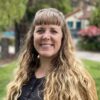
Juliette Meling is an M.A. candidate in anthropology at San Diego State University and a state archaeologist for California’s Department of Parks and Recreation. Her research interests focus on the historical ecology of the Northern Channel Islands through the analysis of zooarchaeological materials. Meling is the author or editor of several archaeological technical reports and has extensive laboratory and field experience in southern California archaeology.
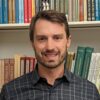
Justin Bracken is the acquisitions editor for archaeology and anthropology at the University of Utah Press. He completed his Ph.D. at the Graduate Center of City University of New York in 2021. His dissertation research investigated the fortifications and dwelling patterns at the ancient Maya site of Muralla de León in the Petén Lakes region of northern Guatemala, tracing occupational patterns through time. Bracken’s research focuses on patterns of movement and interaction, landscape studies, and spatial analyses of the built environment. Through such analyses, he has worked to demonstrate the specific impacts upon everyday life of war and defensive posturing.

Justin Bradfield is an associate professor of archaeology in the University of Johannesburg’s Palaeo-Research Institute. His main research interests center on the use of bone and other faunal materials in Stone Age societies and the degree to which an understanding of these items may better inform our appreciation of the diversity and complexity of ancient Indigenous knowledge systems. Bradfield’s research has focused on bone taphonomy, use-wear, and fracture mechanics as proxies for understanding tool function and how people in the past engaged with organic technology.

Justin D. Wright (as of 2023, Día Joy Wright) is a sociocultural anthropologist, performance studies scholar, theater artist, and performance poet. In both their scholarly and artistic pursuits, Wright is concerned with notions of national and cultural memories, transgenerational traumas, Black grief, and Black and Black-queer identity-making. Their work seeks to understand how Black people might craft from that pain, grief, and trauma something breathtakingly beautiful—and from that beauty, freedom and liberation. Wright holds an M.A. in theater and performance studies from Washington University in St. Louis. Wright is a Ph.D. student in anthropology at American University and was the 2020–2021 poet-in-residence at SAPIENS. Their poem “The Cookout (and All Other Manners of Heavenly Black Things)” was a finalist for the Best of the Net Anthology 2022. Follow them on Twitter @jd_thewright.
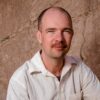
Justin Jennings is the curator of Latin American archaeology at the Royal Ontario Museum in Toronto, Canada. His fieldwork focuses on the first cities, states, and cultural horizons in the Andes, and he leads the museum’s repatriation and reconciliation efforts in Canada and elsewhere in the Americas. Jennings is the author or editor of 14 books, most recently Rethinking Global Governance: Learning From Long-Ignored Societies.

Justin Lau is a Ph.D. candidate in anthropology at the Australian National University and a research assistant at the Education University of Hong Kong. He holds an M.Sc. in the anthropology of development from the London School of Economics. His doctoral research examines the politics of waste technologies in Cambodia. He has two forthcoming articles in the Asia Pacific Journal of Anthropology and Environment and Planning C: Politics and Space.

Justin R. Garcia is an assistant professor of gender studies and an assistant research scientist at the Kinsey Institute at Indiana University, Bloomington. Garcia holds an M.S. in biomedical anthropology and a Ph.D. in evolutionary biology from SUNY Binghamton University. He is a co-author of Evolution and Human Sexual Behavior and a co-editor of Evolution’s Empress: Darwinian Perspectives on the Nature of Women. His research focuses on evolutionary and biocultural foundations of romantic love, intimacy, and sexual behavior. He is also a scientific adviser to the online dating company Match.com.

Justine Quijada is an anthropologist of religion who studies ritual, shamanism, comparative secularisms, and post-Soviet shamanic revival. Her book, Buddhists, Shamans, and Soviets: Rituals of History in Post-Soviet Buryatia, recently won first best book in the History of Religions from the American Academy of Religion. Quijada has received research funding from the University of Chicago, the International Research and Exchanges Board, the Fulbright-Hays Program, the Institute for Citizens and Scholars (previously the Woodrow Wilson Foundation), the Max Planck Institute for Religious and Ethnic Diversity, the National Council for Eurasian and East European Research, and Wesleyan University, including Wesleyan University’s College of the Environment.
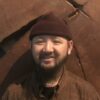
Kalzang Dorjee Bhutia is a Lhopo religious studies scholar from west Sikkim in northeast India. He is a visiting fellow at the East Asian Studies Center, University of Southern California. He studies relationships between human and more-than-human communities in Sikkim, and makes traditional prayer flags for communities around his home region.
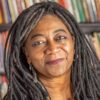
Kamari Maxine Clarke is a Distinguished professor at the University of Toronto and the director of the Centre for Diaspora and Transnational Studies. She is also an adjunct professor in the anthropology department at the University of California, Los Angeles. Clarke has published nine books and over 50 peer-refereed journal articles and book chapters. Her monographs include Affective Justice, Fictions of Justice, and Mapping Yorùbá Networks. Clarke has received the 2019 Royal Anthropological Institute’s Amaury Talbot Book Prize, a distinguished chair in transnational justice and socio-legal studies, and the 2021 Guggenheim Prize for career excellence. Follow her on Twitter @KamMClarke.

Kara Cooney is a professor of Egyptian art and architecture at the University of California, Los Angeles; a bestselling author; and a popular speaker. She specializes in craft production, coffin studies, and ancient economies. Cooney is the author of The Good Kings, which published in 2021. She was a co-curator of Tutankhamun and the Golden Age of the Pharaohs at the Los Angeles County Museum of Art and produced a related archaeology television series, Out of Egypt, now airing on Hulu. Follow her on Twitter @KaraCooney.

Karen Coates writes primarily about food, environment, health, and human rights in developing societies. She has a background in anthropology, which she has always thought a natural match for journalism. Coates is a senior fellow at Brandeis University’s Schuster Institute for Investigative Journalism, and her latest book, co-authored with her husband and partner Jerry Redfern, is Eternal Harvest: The Legacy of American Bombs in Laos. Follow her on Twitter @RamblingSpoon.
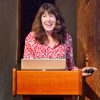
Karen L. Kramer is an anthropologist with research interests in the evolution of cooperation, human sociality, life history, and childhood. She received her Ph.D. in anthropology from the University of New Mexico and was a postdoctoral fellow in demography at the University of California, Berkeley, in the late 1990s. Kramer has worked with the Savanna Pumé, a group of South American hunter-gatherers, and the Yucatec Maya for the past 25 years. Her research has been funded by the National Institutes of Health, the National Science Foundation, the David and Lucile Packard Foundation, the Andrew W. Mellon Foundation, the William F. Milton Fund, the Smithsonian Institution, and Harvard University.

Karine Gagné is an assistant professor of anthropology at the University of Guelph in Canada. Her research is based in the Indian Himalayas, where she studies climate change, climate knowledge, ethics of care, human-nonhuman animal relations, state production, and citizenship. Gagné is the author of Caring for Glaciers: Land, Animals, and Humanity in the Himalayas, for which she received the 2019 James Fisher Prize. She is currently working on a project, funded by the Social Science and Humanities Research Council of Canada, to study how a limited technocratic understanding of the climate and related processes, like climate change, contributes to the vulnerability of mountain populations.

Karminn C.D. Daytec Yañgot, a Kankana-ey, is an anthropologist by passion and a development worker by profession. She is the anthropology teaching fellow in the Indigenous studies Ph.D. program at the University of the Philippines, Baguio. Her research and development work focus on Indigenous peoples and claims-making in the Philippines, as well as political constructions and (re)presentations of Indigeneity. She is also interested in issues of human rights and transitional justice, collective flourishing, and storytelling as a research method. Follow her on Threads and Instagram @indigena.ph.

Karolina Follis is a lecturer at Lancaster University in the U.K. and a political anthropologist who specializes in borders, particularly regimes of control and security, human rights, and systems of responsibility. Her areas of expertise are the European Union and East and Central Europe.
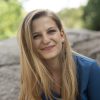
Katarina Zimmer is a science and environment journalist based in New York City. Her work has appeared in numerous publications, including Knowable Magazine, The Scientist, National Geographic, and more.

Kate Ruder is a health and science journalist whose stories have appeared in NBC Health, 5280.com, and Everyday Health, and in magazines such as Colorado Parent, Spoke + Blossom, and Boulder Weekly. She lives with her family in Boulder, Colorado.

Katharine Gammon is a freelance science writer based in Santa Monica, California. Her work has appeared in Nature, Wired, Popular Science, and other media outlets. When not writing about the environment, child development, or innovation, she gets to watch her two young sons innovate their own environments. Follow her on Twitter @kategammon.

Katharine Keenan is a cultural anthropologist and a postdoctoral fellow of Western heritage at Carthage College in Kenosha, Wisconsin. She received her Ph.D. from Columbia University in 2013 in applied anthropology, with a dissertation titled Imagining a New Belfast: Municipal Parades in Urban Regeneration. Her research lies at the intersection of the anthropology of policy, performance, urban space, and post-conflict development. Her work can be found in the recent publication Consuming St. Patrick’s Day. She is currently developing a new project in Kenosha, Wisconsin.

Katherine A. Mason is an assistant professor of anthropology at Brown University who has conducted ethnographic fieldwork in China and the U.S. Her research addresses issues in medical anthropology, population health, bioethics, China studies, reproductive health, mental health, and global health. Her first book, Infectious Change: Reinventing Chinese Public Health After an Epidemic, based on fieldwork she conducted in southeastern China on the professionalization and ethics of public health in the country following the 2003 SARS epidemic, won the Foundation for the Sociology of Health and Illness Book Prize in 2019.

Katherine E. Browne is a cultural anthropologist who studies the interaction of social history, cultural configurations, and political economies. Her current research focuses on the entwining of culture and resilience. In her recent book Standing in the Need: Culture, Comfort, and Coming Home After Katrina, she follows a Louisiana bayou family of 300 members from their evacuation through the vexations of return and recovery, which lasted longer and hurt more than anyone expected. This work and her documentary film Still Waiting: Life After Katrina were funded by the National Science Foundation. Browne is a professor of anthropology at Colorado State University and an editor of the journal Economic Anthropology. Follow her on Twitter @culturegaps.

Katherine Hirschfeld is a medical anthropologist who studies how failed states, crime, and corruption amplify outbreaks of infectious disease. She received her Ph.D. from Emory University in 2001 and is currently an associate professor at the University of Oklahoma. Her most recent book is Gangster States: Organized Crime, Kleptocracy, and Political Collapse. Follow her on Twitter @tkhirschfeld.

Katherine L. Chiou is an anthropological archaeologist and paleoethnobotanist whose research interests include foodways in the past and present, Andean archaeology, household archaeology, plant domestication, food sovereignty, agrobiodiversity, sustainability, GIS and data visualization, and responsible conduct of research. She received her M.A. and Ph.D. from the University of California, Berkeley, and is currently an assistant professor in anthropology at the University of Alabama, where she oversees the Ancient People and Plants Laboratory. Chiou is currently working on a project, funded by the National Science Foundation, to study and promote ethical cultures in the field of archaeology.
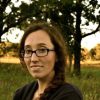
Katherine L. Nichols is a Ph.D. candidate in the departments of Indigenous studies and archaeology at Simon Fraser University and is affiliated with the Centre for Forensic Research. Her research focuses on applying forensic and archaeological methods to Indian Residential Schools in Canada.

Kathleen Openshaw is a lecturer in the School of Social Sciences at Western Sydney University in Australia, where she earned her Ph.D. She has an M.A. in anthropology and development studies from Maynooth University in Ireland. Openshaw’s main research interests are Pentecostalisms from the Global South. Her Ph.D. research was an ethnography of the Brazilian megachurch The Universal Church of the Kingdom of God in Australia. She is currently a member of the research team for an Australian Research Council Discovery Project called “The African Diaspora and Pentecostalism in Australia.” Openshaw is the managing editor of The Australian Journal of Anthropology. She is also a co-editor (with Cristina Rocha and Mark Hutchinson) of Australian Pentecostal and Charismatic Movements: Arguments From the Margins. Follow her on Twitter at @KazOpenshaw.

Kathryn Graber is an associate professor of anthropology and Central Eurasian studies at Indiana University, Bloomington. A linguistic and sociocultural anthropologist, she researches minority language politics, multilingualism, mass media, materiality, and intellectual property in Russia and Mongolia. She is the author of Mixed Messages: Mediating Native Belonging in Asian Russia and a co-editor of Storytelling as Narrative Practice: Ethnographic Approaches to the Tales We Tell. Graber is working on a new book on the Mongolian cashmere industry. Her research has been funded by the National Science Foundation, the U.S. Department of Education, and the Social Science Research Council, among others.

Katrien Pype is an anthropologist who studies media worlds in Kinshasa, the capital of the Democratic Republic of the Congo (DRC). She received her Ph.D. from the University of Leuven in Belgium, where she is an assistant professor. She is also a fellow at the University of Birmingham and the author of The Making of the Pentecostal Melodrama: Religion, Media, and Gender in Kinshasa. Currently, Pype runs a team project to explore the dialectics between technology and culture in postcolonial African cities. She co-initiated the Congo Research Network, a platform aimed at bringing together scholars researching the DRC throughout the humanities and social sciences.

Kefen I. Budji is a cultural/linguistic anthropology Ph.D. student at the University of Notre Dame in Indiana. She studies processes of identity construction and performance, and how communities use language, media, and other communication forms vis-à-vis political and sociocultural interests in contexts of cross-/intercultural interaction, migration, and (armed) conflict. Passionate about using art, media, and writing as tools of empowerment, voice, and education, Budji’s works have appeared in journals such as Anthropology and Humanism, and Resonance: The Journal of Sound and Culture. She currently researches diasporic women’s communicative practices, funded by the Wenner-Gren Foundation, the Kellogg Institute for International Studies, and Notre Dame’s Institute for Scholarship in the Liberal Arts.

Keith Dobney is the chair of archaeology at the University of Sydney in Australia. He is fascinated by the biology of the past and how that intersects with and impacts human behavior and cultural development. His research interests include: archaeology, bioarchaeology, zooarchaeology, human paleoecology, animal domestication, the origins and spread of farming, human-animal health, migration and colonization history, ancient DNA, paleopathology, and paleomicrobiome studies.

Kelley Akhiemokhali is a sociology graduate student at the City University of New York Graduate Center. She studies access to cultural institutions and health inequities. Her most recent research, funded by the American Association of Birth Centers, examines how community-based midwives and doulas conceptualize and respond to racial disparities in adverse birth outcomes. She is the lead author on the updated “Childbearing, International Practices” entry in the Wiley-Blackwell Encyclopedia of Health, Illness, Behavior, and Society. Follow her on Instagram @immigratingwithapurpose.
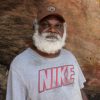
Kenneth Mangiru is a Senior Traditional Owner of the Danek clan estate in Arnhem Land, Northern Territory. He is a Njanjma Aboriginal Corporation Ranger specializing in managing heritage and a founding director of Warddeken Land Management. Mangiru is also a director of Adjumarllarl Aboriginal Corporation and Njanjma Aboriginal Corporation. He has worked on collaborative archaeological research and consulting projects for over 30 years.
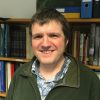
Kenny Brophy is a senior lecturer in archaeology at the University of Glasgow and has 25 years of experience in fieldwork and researching Scotland’s Neolithic. His current research focuses on the relevance of ancient times in contemporary society, and he has written extensively on the misuse of the past for political ends. He blogs as The Urban Prehistorian.

Keridwen Cornelius is a freelance journalist and editor based in Berlin. Her writing has appeared in Scientific American, Science, Outside, The New York Times, Medscape, The Atlantic, BBC Travel, and National Geographic Adventure, among other outlets. Follow her on Twitter @keridwen77.

Kerstin Lange is a freelance author based in Vermont and Germany. She holds an M.A. in anthropology and an M.S. in ecology. Lange has worked with biological anthropologists among the nomadic Turkana in northwest Kenya and bicycled Germany’s 900-mile-long Green Belt, which is the former border between East and West Germany. She is currently completing a book about the societal and ecological echoes of her home country’s Cold War division.

Kimberley D. McKinson is a cultural anthropologist who conducts ethnographic research in Jamaica. She received her Ph.D. from the University of California, Irvine, and is currently an assistant professor of anthropology at John Jay College of Criminal Justice, The City University of New York (CUNY). McKinson’s research is situated at the intersections of urban security/insecurity, material culture, Caribbean postcoloniality, and critical Black historiography. Her work has been supported by the National Science Foundation, the University of California Center for New Racial Studies, the University of California Collaboratory for Ethnographic Design, and CUNY. McKinson is presently at work on her first book, Palimpsestic Securityscapes: Making Home and Excavating Memory in Postcolonial Jamaica.

Kimberly Plomp is a bioarchaeologist who specializes in human skeletal variation, health and disease, and human evolution. She is interested in how evolutionary adaptations have influenced health and disease in modern humans. Her dissertation research explored the 2D morphological variation of human vertebrae in relation to the presence of a common spinal pathology, Schmorl’s nodes. Plomp is currently investigating human vertebral morphology for characteristics associated with bipedalism and any relationship between these characteristics and common back problems.

Kira Westaway is an associate professor at Macquarie University in Australia. She reconstructs and dates early human evidence at archaeological sites in Southeast Asia. As part of an international research team, Westaway established the age for the “Hobbit” site at Liang Bua Cave, Western Flores, Indonesia, and other sites in Southeast Asia. She is searching for an extinct ape called Gigantopithecus blacki in southern China, who could turn out to be the real King Kong.

Kirk Hazen is the resident linguist of West Virginia University’s English department and has served as the director of the West Virginia Dialect Project since he established it in 1998. Hazen works with his undergraduate lab assistants to carry out research on American English and focuses mainly on Appalachian and Southern dialects.

Kirsten Bell is an Australian social anthropologist and visiting professor at King’s College London. She received her Ph.D. from James Cook University in 2000 and has previously held appointments at the University of Northern Colorado, Macquarie University, the University of British Columbia, and the University of Roehampton, where she was a professor of social anthropology. Bell has published widely in the anthropology of health and medicine. Her newest book is Silent but Deadly: The Underlying Cultural Patterns of Everyday Behaviour, a collection of popular anthropology essays. Read more on her Substack newsletter.

Kirsty Graham is an animal behavior researcher who studies how primates use gestures to communicate. They are currently a research fellow at the University of St Andrews in Scotland, trying to understand bonobo and western chimpanzee gestures and displays. They are a member of their union’s (UCU) branch committee and an organizer with the Animal Behaviour Collective. Follow them on Twitter, Instagram, and Bluesky @kirstyegraham.

Kootyin Chow is a community organizer working on the PEACE eco-community project in Hong Kong’s far northeast New Territories. She is a master’s student in anthropology at the Chinese University of Hong Kong.
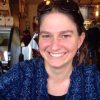
Kristin Hedges is an applied medical anthropologist who studies how understanding cultural constructions of illness is essential for successful health intervention campaigns. She received her Ph.D. from the University of Arizona and is currently an assistant professor at Grand Valley State University in Allendale, Michigan. She is drawn to questions of structural vulnerability and how local contexts impact health and healing. Hedges has worked on research projects that focused on HIV/AIDS, substance abuse, traditional medicine, and rapid response to health emergencies. Follow her on Twitter @KristinHedges6.
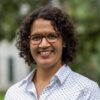
Kristin V. Monroe is an associate professor in the department of anthropology at the University of Kentucky and the associate editor of the journal City & Society. Her research focuses on experiences of mobility, urban life, political violence, and citizenship in the Middle East. She is working on a project about mobility across the Syrian warscape funded by the Wenner-Gren Foundation.
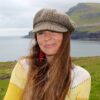
Kristina Jacobsen is a cultural anthropologist, ethnographer, and singer-songwriter living in Albuquerque, New Mexico. An associate professor of music and of anthropology (ethnology) at the University of New Mexico, her research interests focus on language, identity, and expressive culture. She is the author of The Sound of Navajo Country: Music, Language, and Diné Belonging. The book focuses on her time singing and playing with Navajo country-western bands on the Navajo Nation, and is the winner of the 2018 Woody Guthrie Award for an exceptional book about popular music. Jacobsen is a touring singer-songwriter and fronts the all-female honky-tonk band Merlettes. The Cultural Anthropology Advisor to WOMAD South Africa, she founded and facilitates three culturally immersive songwriting workshops for anthropologists that take place on the Navajo Nation, in Sardinia, Italy, and, beginning in 2023, along the historic Camino de Santiago in northern Spain.
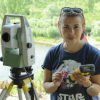
Kseniya Kolobova is an archaeologist at the Institute of Archaeology and Ethnography, Siberian Branch of the Russian Academy of Sciences. She specializes in Neanderthal material culture. Kolobova receives funding from the Russian Science Foundation—Deutsche Forschungsgemeinschaft Cooperation.

Kyle Hunteman is an undergraduate student at Fort Lewis College in Colorado studying philosophy and anthropology. He is spending his sophomore year at Waseda University in Tokyo, Japan. Hunteman is interested how the internet has fueled a way for language and culture to mesh.
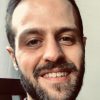
Kyle Olson is an archaeologist who studies the relationship between American foreign relations and the practice of American archaeology abroad. He received his Ph.D. from the University of Pennsylvania and is a postdoctoral fellow at Koç University’s Research Center for Anatolian Civilizations in Istanbul, Turkey. He has been involved in activism and community organization since Occupy Wall Street in 2011. Most recently, he has been engaged with the Debt Collective and with graduate student unionization at the University of Pennsylvania. Follow him on Twitter @olsonkyleg.

Kyoko Yamaguchi is a biological anthropologist from Japan who specializes in genetics. Her research looks at genetic variations that are responsible for phenotypic variations to understand human adaptation and evolution, particularly regarding externally visible traits such as pigmentation and craniofacial morphology.

Lara de Paula Passos is a doctoral student in anthropology at the Universidade Federal de Minas Gerais in Brazil. Her research focuses on critiques of how science can be colonialist and the differences between agents in the archaeological record as viewed through the lens of race and gender. De Paula Passos’ papers include “Gender Perspectives in South American Archaeology—A Look From Brazil” in The Routledge Handbook of Global Historical Archaeology and “Within Me Lives Every Marielle Franco: Repression, Resistance, Archaeo-poetry, and the Materiality of Black Women’s Experiences.” Follow her on Instagram @arqueopoesia.
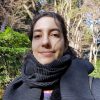
Lara Sarlak is an anthropologist who focuses on the role of migrants and refugees in transforming the urban infrastructure of her hometown Istanbul, Turkey. She received her M.A. in the anthropology of media at SOAS University of London and a B.A. in sociology and media and visual arts at Koc University in Istanbul. As a researcher and videographer, Sarlak strives to incorporate her audiovisual skills into ethnography in a publicly accessible way. Follow her on Twitter @larasarlak.

Larisa Jasarevic is a senior lecturer in the Global Studies Program at the University of Chicago. As an anthropologist, she explores questions of bodies, natures, and popular knowledges in contemporary Bosnia-Herzegovina. These were the subject of her first book, Health and Wealth on the Bosnian Market: Intimate Debt. Her current project concerns bees, beekeeping, medicinal properties of nature, and Islamic metaphysics. Her fieldwork on bees was funded by the Wenner-Gren Foundation and the American Council of Learned Societies.
Larisa works closely with her sister, Azra Jasarevic, who is a graduate of the International School of Film and Television, San Antonio de los Baños, Cuba.

Larissa Thomas is an archaeologist and historic preservation specialist in the United States working in consulting for Environmental Resources Management. She also serves as an elected officer in her municipal government. Thomas received her Ph.D. from Binghamton University, and her work has involved both prehistoric and historic period contexts. She joined the Praia Melão research project in 2022.

Laura Buck is an evolutionary anthropologist interested in what determines variation in skeletal shape. In her past research, she has focused on skeletal plasticity, adaptive and neutral influences on hominin crania, and climatic adaptation in human and nonhuman primates. Her main research employs nonhuman primate models to investigate the morphological consequences of hybridization between closely related taxa. These will be used to better understand the effects of human interbreeding with extinct hominins such as Neanderthals.

Laura DeLuca is a cultural anthropologist who studies conservation and communities in Northern Tanzania. She is a faculty member in the Sewall Hall Residential Academic Program in history, society, and education at the University of Colorado, Boulder (CU-Boulder). DeLuca is also the director of CU-Boulder’s Global Seminar Tanzania, a study abroad program in anthropology. She is a co-author of Lost Girl Found (with Leah Bassoff) and a co-editor of Building Peace From Within: An Examination of Community-Based Peacebuilding and Transitions in Africa (with Sylvester Maphosa and Alphonse Keasley). Follow her on Instagram @cu.tanzaniaglobalseminar.

Laura Haapio-Kirk is a Ph.D. student in anthropology at University College London and a Leach fellow in public anthropology at the Royal Anthropological Institute. Her research interests include aging and the life course, well-being, and digital technologies. Haapio-Kirk has a master’s in visual anthropology from the University of Oxford and integrates illustration into her research. She is currently writing her monograph, Ageing With Smartphones in Japan, which combines illustration with text. Follow her on Instagram @lauralhk.
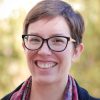
Laura Rademaker is a postdoctoral research fellow at the Australian National University (ANU) and the author of Found in Translation: Many Meanings on a North Australian Mission. She was awarded her Ph.D. in 2015 from the ANU for her thesis on the history of Aboriginal languages and Christian missions. Rademaker’s work explores the possibilities of “cross-culturalizing” history, interdisciplinary histories, and oral history and memory. She is contributing to the Deep Human Past project, seeking to tell the deep history of Australia. She is a co-editor of the Journal of Religious History and an associate monographs editor for Aboriginal history monographs.

Laura Wangsness Willemsen’s teaching, research, and practice aim to ensure schooling supports equity and well-being in both U.S. and international contexts. She has been researching the COVID-19 pandemic’s impact on public education in the United States since March of 2020, with a particular focus on teachers’ experiences. She is an associate professor in the department of doctoral studies in education at Concordia University in St. Paul, Minnesota. Prior to the pandemic, her work focused primarily on gender and schooling in Tanzania, where she has conducted research and lived intermittently for over 25 years. As an international practitioner working at the nexus of education, development, and gender, Wangsness Willemsen has consulted with institutions such as USAID, the United Nations Girls’ Educational Initiative, CARE International, the Mastercard Foundation, and RTI.

Laure Spake is a research fellow at the University of Otago, New Zealand, where she researches child growth and development, demography, and human variation in past and present populations. She has also written on ethical issues relating to collections and technology in biological anthropology.

Lauren Gilhooly is a biological anthropologist who is interested in human-wildlife contact and nature-based tourism. She recently earned her Ph.D. from the University of Western Ontario, where she studied interactions between tourists and a hybrid group of long-tailed and pig-tailed macaques at the Sepilok Orangutan Rehabilitation Centre in Malaysia. Gilhooly’s current postdoctoral work will examine a community-based reforestation project along the Kinabatangan River in Sabah, Malaysia. Follow her on Twitter @LaurenGilhooly.

Laurits Skov did his Ph.D. in bioinformatics at Aarhus University during which he developed a method for detecting Neanderthal and Denisovan ancestry in modern humans without using the archaic reference genomes. He used this process to find archaic segments in 27,566 Icelanders and 89 Papuans. During a postdoc at the Max Planck Institute for Evolutionary Anthropology in Leipzig, he further studied archaic introgression in ancient genomes and researched Neandertal communities. He studies archaic introgression in South Asian populations and the evolution of human germline mutation rate in the Moorjani Lab at the University of California, Berkeley.

Lavanya Murali Proctor is a linguistic and cultural anthropologist who studies the sociopolitics and socioeconomics of the English language in India. She received her Ph.D. from the University of Iowa and is now an assistant professor at Lawrence University. Her publications include the articles “English and Globalization in India: The Fractal Nature of Discourse” and “‘It’s Quite Stylish’: Representations of American English and American Culture in English-Training Milieus in Delhi, India.” She is currently studying patterns of cross-talk in Indian English, examining the culturally specific ways in which simultaneous speech occurs and may be misinterpreted. Follow her on Twitter @anthrocharya.
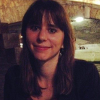
Lea Surugue is a French journalist based in Madrid, Spain. Her favorite topics are archaeological research, anthropology, and health. Her work has appeared in Vice, International Business Times UK, Euronews, and a number of French publications. Follow her on Twitter @LSurugue.
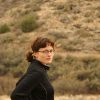
Leah Shaffer is a freelance science writer based in St. Louis, Missouri, who writes about health and animal behavior. Her stories have appeared in Discover magazine, Wired, The Atlantic, and Nature Medicine. Follow her on Twitter @LeahabShaffer.
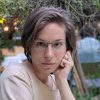
Leah Zani is a public anthropologist and poet based in Oakland, California. She earned her Ph.D. from the University of California, Irvine, in 2017 and researches and writes on the social impact of war. Zani is the author of Bomb Children and Strike Patterns. Her work has appeared in American Anthropologist, Environmental Humanities, Kenyon Review Online, Stone of Madness, and Consequence magazine, among others. Follow her on Twitter @leah_zani.

Lee Cronk is an anthropologist who uses evolutionary theory to study human behavior. He received his Ph.D. from Northwestern University and is currently a professor at Rutgers University in New Brunswick, New Jersey. He is the author of the books That Complex Whole: Culture and the Evolution of Human Behavior and From Mukogodo to Maasai: Ethnicity and Cultural Change in Kenya, and a co-author of the title Meeting at Grand Central: Understanding the Social and Evolutionary Roots of Cooperation (with Beth L. Leech). He is currently a co-director of the Human Generosity Project, a transdisciplinary effort to better understand generosity and other forms of cooperation across societies. Follow him on Twitter @lee_cronk.
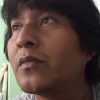
Leonardo Tello Imaina is the son of an Achuar mother and a Kukama father—and the 10th of 13 children. He studied agronomy at the Instituto de Educación Superior Tecnológico Público “Joaquín Reátegui Medina.” Since 2010, he has been the director of Radio Ucamara in Nauta, where he and his colleagues have launched various projects that seek and demand respect for the rights of Indigenous peoples. He believes that memories, dreams, and myths show us elements that are key to our lives and relationships.
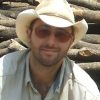
Lewis Borck is an archaeologist who is interested in tying together anthropology, geography, history, and sociology. He studies and writes about social movements and acts of resistance in the Greater Southwest. He received his Ph.D. from the University of Arizona and is currently a postdoctoral Preservation Fellow at the research nonprofit Archaeology Southwest. Follow him on Twitter @LewisBorck, on Facebook @lsborck, and on Instagram @lsborck, and check out his blog.

Liana Chua received her Ph.D. from the University of Cambridge in 2007 and is currently a lecturer in anthropology at Brunel University, London. She has worked on Christianity, ethnic politics, development, and resettlement among Bidayuh communities in Malaysian Borneo since 2003, and she is the author of The Christianity of Culture: Conversion, Ethnic Citizenship, and the Matter of Religion in Malaysian Borneo. She is currently studying the social and political dimensions of global orangutan conservation. Follow her on Twitter @liana_chua.
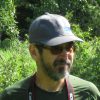
Lidio M. Valdez is a Peruvian archaeologist and currently a lecturer at the University of Calgary in Canada, where he received his Ph.D. His research is in the central Andes, with a focus on topics such as complex societies, origins of warfare, mortuary patterns, ancient technologies, and the production of fermented beverages. He currently investigates the Inca provincial center of Tambo Viejo on the South Coast of Peru, a project funded by the Social Sciences and Humanities Research Council of Canada.

Lillia McEnaney is a museum anthropologist and freelance arts writer living and working in Santa Fe, New Mexico.

Linda E. Sanchez is a cultural anthropologist whose research interests include unaccompanied minors, the undocumented 1.5 generation, and Deferred Action for Childhood Arrivals (DACA). She received her B.A. and M.A. from San Diego State University and is currently a Ph.D. candidate in anthropology at the University of California, Irvine, with a graduate emphasis in Chicano studies. Her dissertation focuses on individuals who were not able to receive DACA. Sanchez is the author of “When I Got DACA, I Was Forced to Revert to a Name I had Left Behind” and a co-author of “Insurgent Collaboration” (with Susan Bibler Coutin).
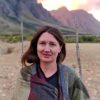
Linda Nordling is a science journalist based in Cape Town, South Africa. She writes about science, education, medicine, and development—and the politics and intersections between all four—for magazines, including Science and Nature. She has a special interest in chronicling the lived experience of scholars who identify as being from underrepresented groups.

Lindsay M. Montgomery is an assistant professor in the School of Anthropology at the University of Arizona. Her research uses collaborative participatory methods to explore the long-term histories of Indigenous peoples in the American West using material culture, oral history, archival documents, and ethnography. She earned her Ph.D. from Stanford University and became a 2019–2020 Radcliffe fellow at Harvard University. As a fellow, she’s working on a book project documenting the history of mobility in northern New Mexico.
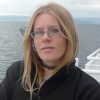
Lindsey Büster is an archaeologist who studies ritual and domestic life in first millennium B.C. Britain and Europe. She received her Ph.D. on Iron Age roundhouses from the University of Bradford in the U.K. and is currently employed as a lecturer at Canterbury Christ Church University and as a postdoctoral research associate at the University of York. She is a co-author of Darkness Visible: The Sculptor’s Cave, Covesea, From the Bronze Age to the Picts (with Ian Armit) and a co-editor of Between Worlds: Understanding Ritual Cave Use in Later Prehistory (with Eugène Warmenbol and Dimitrij Mlekuž). Her paper “‘Problematic stuff’: Death, Memory, and the Interpretation of Cached Objects” was published in Antiquity. She is currently working on the European Research Council–funded interdisciplinary project COMMIOS, which is exploring Iron Age identity through funerary, stable isotope, osteological, and ancient DNA evidence. Follow her on Twitter @LindseyBuster.

Lindsey Feldman is a Ph.D. candidate in sociocultural anthropology at the University of Arizona. Her current project examining the multiple meanings of work for incarcerated men in Arizona is the basis of a policy report, her dissertation, and several publications, all of which are underway. Her research interests focus on critical criminology, masculinity, and labor. Follow her on Instagram @lindseyraisa.
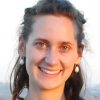
Lisa Jenny Krieg studied cultural anthropology in Heidelberg, Germany, and Jerusalem, Israel. She conducted her Ph.D. at Utrecht University on the social memory of young German adults. Krieg has recently become interested in digital culture and illegal trades. She works on knowledge and material flows in relationship to illicit drugs and endangered species.

Livia Garofalo is a medical and psychological anthropologist currently completing her doctorate at Northwestern University, where she is also earning a master’s in public health from the Feinberg School of Medicine. Her dissertation, “Wards and Worlds: Critical Care in Critical Times in Argentina,” examines the relationship between intensive care, trauma, and economic crisis in public hospitals in Buenos Aires. Garofalo’s research has been funded by the National Science Foundation, the Wenner-Gren Foundation, and the U.S. Fulbright Program. You can follow her on Twitter @livgar.

Liviu Chelcea is a professor at the University of Bucharest. In 2004, he received a Ph.D. from the University of Michigan, and he has written on time, work, and acceleration; kinship and houses; infrastructures and citizenship; deindustrialization and materiality; socialist housing nationalization; the material culture of shortage; and the politics of car parking in Romania. His current research project focuses on tap water and water infrastructure. Follow him on Twitter @LiviuChelcea.

Liz Lewis is an anthropologist and writer based in Austin, Texas. Her work examines shifting understandings of disability, and she is particularly interested in rare and undiagnosed conditions. She is currently working on a book about “undiagnosis” in the contemporary U.S. Follow her on Twitter @lizlewisphd.
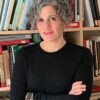
Lori Khatchadourian is an associate professor of Near Eastern studies and the director of graduate studies for archaeology at Cornell University. Her research interests include the archaeology and anthropology of (post)socialist modernity, the materiality of imperialism, and heritage forensics, with a particular focus on the South Caucasus. Khatchadourian’s archaeological and ethnographic research in Armenia has been supported by the National Science Foundation, the National Endowment for the Humanities, ACLS, and the Fulbright Program. Her publications have appeared in Cultural Anthropology, Antiquity, and the American Journal of Archaeology. She is the author of Imperial Matter: Ancient Persia and the Archaeology of Empires and co-directs Caucasus Heritage Watch.
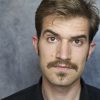
Lucas Laursen is a journalist in Madrid, Spain, who writes about how people use science, markets, and serendipity to test new ideas. Follow him on Twitter @lucaslaursen.

Lucas Stephens is a research affiliate in archaeology at the Max Planck Institute for the Science of Human History. He earned a Ph.D. at the University of Pennsylvania in the art and archaeology of the Mediterranean world. Stephens studies land use, transportation, agriculture, and urbanism both in the distant past and the present. He led the ArchaeGLOBE Project (2018–2019).
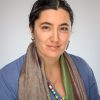
Luisa Cortesi is an environmental anthropologist who studies disasters, water, environmental knowledge, and social inequality. She received her Ph.D. from Yale University in both anthropology and environmental studies. Currently at Cornell University, she is the Stanford H. Taylor postdoctoral fellow in science and technology studies and anthropology, and an Atkinson fellow. Cortesi is writing a book on floods and drinking water pollution in fluvial communities of North Bihar, India. She has worked in India since 2003 in different capacities, including managing local nongovernmental organizations and serving as a water expert for the United Nations. Follow her on Twitter at @paaniraani.

Lydia Denworth is a science journalist based in Brooklyn, New York. She is a contributing editor at Scientific American and the author of the forthcoming book Friendship: The Evolution, Biology, and Extraordinary Power of Life’s Fundamental Bond. Her work is supported by the Alfred P. Sloan Foundation. Follow her on Twitter @LydiaDenworth.
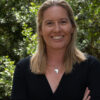
Lynne Quick is a senior research fellow associated with the African Centre for Coastal Palaeoscience at Nelson Mandela University in South Africa. She is a paleoecologist, specifically a palynologist who runs the Palaeoecology Laboratory at the university’s Gqeberha campus in the Eastern Cape. Quick’s research relates to reconstructing Southern African paleoenvironments, with a key focus on the vegetation history and past climate dynamics of the highly biodiverse Cape Floristic Region.

Lynnette Arnold is a linguistic anthropologist who studies Salvadoran migration and language. She received her Ph.D. from the University of California, Santa Barbara, in 2016 and is currently a lecturer in the department of anthropology at the University of Massachusetts, Amherst. Arnold is in the process of writing a book about how everyday communication maintains families whose lives are separated by international borders.

Lyra D. Monteiro is an anthropological archaeologist who teaches history, American studies, and Africana studies at Rutgers University, Newark. Follow her on Twitter @intersectionist.
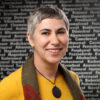
Dores Cruz is an Africanist anthropological archaeologist and senior researcher at the Institute for African Studies at the University of Cologne in Germany. Cruz received her Ph.D. from Binghamton University. Her work focuses on materiality, landscape studies, historical archaeology, and archaeology of the recent past. With diverse research interests in sub-Saharan Africa and experience in both Lusophone and Anglophone countries, she initiated research at Praia Melão in 2020. She is dedicated to collaborative work and partnerships with diverse communities, including local and descendant communities.

Maciej T. Krajcarz is an associate professor and a senior researcher at the Institute of Geological Sciences of the Polish Academy of Sciences. He is also a head of the Stable Isotopes Laboratory at the institute. As a geologist, he is interested in the depositional processes and post-depositional disturbances of sediments in cave environments. Krajcarz’s particular focus is on the impacts of post-depositional geological processes on the taphonomy and preservation of archaeological and paleontological assemblages. He receives funding from the National Science Centre, Poland.

Madison Wrobley is a cultural anthropologist who studies social conflict, daily challenges, and environmental problems resulting from water insecurity and land-use changes in Nepal. She received her B.A. from Washington University in St. Louis and is a 2019–2020 Fulbright-National Geographic storytelling fellow, a position for which she is currently completing her research and documenting her findings. She, along with Small Earth Nepal, a Kathmandu-based research institution, is using her data to create capacity-building programs and other local initiatives. Follow her on Instagram @madison_wrobley and Twitter @madison_wrobley.

Magdalena Zegarra Chiappori is a Peruvian medical anthropologist with research interests in economies of care, old age, intimacy and affect theory, social abandonment, death, marginalized communities, and Latin American studies. Her research examines the lives and subjective experiences of one of the most invisible, unmapped, and understudied populations of Peruvian society: urban older people. She holds a Ph.D. in anthropology from the University of Michigan and has published in several outlets including American Ethnologist and NACLA Report on the Americas.

Malvika Gupta is a D.Phil. candidate in the international development department at the University of Oxford. Her doctoral thesis focuses on Indigenous politics, statehood, and intercultural education in Ecuador and India. She has worked on the issue of Indigenous education in India as a practitioner and researcher, and has published several articles on it. Her M.Phil. research, undertaken at the University of Delhi, was based on an analysis of India’s Indigenous education policy since Independence in 1947.

Manvir Singh studies the social, cognitive, and cultural evolutionary foundations of complex cultural traditions that reliably develop in human societies everywhere, including law, music, story, shamanism, and witchcraft. He is a Ph.D. candidate in anthropology at Harvard University. Follow him on Twitter @mnvrsngh.
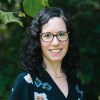
Mara Buchbinder is a medical anthropologist who studies the culture of health, illness, and medicine in the United States. She received her Ph.D. in anthropology from the University of California, Los Angeles, and is currently an associate professor of social medicine and adjunct associate professor of anthropology at the University of North Carolina at Chapel Hill, where she teaches medical students about cultures of death and dying. Buchbinder is the author of Scripting Death: Stories of Assisted Dying in America and All in Your Head: Making Sense of Pediatric Pain, and a co-author of Saving Babies? The Consequences of Newborn Genetic Screening (with Stefan Timmermans). Her new project, the Study to Examine Physicians’ Pandemic Stress (STEPPS), is investigating the experiences of frontline physicians caring for COVID-19 patients.
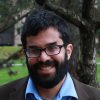
Marc Kissel completed his Ph.D. at the University of Wisconsin, Madison, and is currently a lecturer in the department of anthropology at Appalachian State University. He is a co-author (with Nam C. Kim) of the forthcoming title Emergent Warfare in Our Evolutionary Past. His research includes the study of modern human origins, how hominins became human, and the role semiotics played in early human societies. Follow him on Twitter @MarcKissel.

Margaret O’Donnell Noodin received an MFA in creative writing and a Ph.D. in English and linguistics from the University of Minnesota. She is a professor of English and the associate dean of Humanities at the University of Wisconsin, Milwaukee. Noodin is author of Bawaajimo: A Dialect of Dreams in Anishinaabe Language and Literature and two collections of poetry in Anishinaabemowin and English, Weweni and What the Chickadee Knows. She has also translated over 30 books for children into Ojibwe. To hear her work, visit www.ojibwe.net.
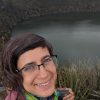
María Fernanda Ugalde is an Ecuadorian archaeologist who received her Ph.D. from the Freie Universität in Berlin, Germany. She is currently a professor at the Pontificia Universidad Católica del Ecuador (PUCE) in Quito. Her research focuses on the intersection of art and social issues, with an emphasis on iconography, gender, rock art, early settlements, and burial patterns. Ugalde was a Wenner-Gren Foundation fellow in 2018. Her project “Gender and Sexual Identities in the Iconography of Pre-Columbian Ecuador” was awarded a post-Ph.D. research grant, which helped her conduct the research that led to this article. Two research grants (2016–2019) from PUCE also provided funding for the investigation.

Maria Franklin is an archaeologist who researches the histories of African diasporic peoples in the U.S. She graduated with her Ph.D. from the University of California, Berkeley, and is currently an associate professor of anthropology at the University of Texas, Austin. She has recently authored or co-authored articles on the archaeology of Black lifeways and community-based research in American Antiquity, Historical Archaeology, and the Journal of Community Archaeology & Heritage, among other outlets. Franklin is currently working with African American communities in Denton County, Texas, as part of an archaeological project funded by the Texas Department of Transportation.

Maria O’Donovan is an archaeologist and the senior project director at the Public Archaeology Facility at Binghamton University in New York. Her research focuses on the history of capitalism and industrialization in the urban United States. O’Donovan is the author of several papers on urban development, landscape, and heritage. She is currently engaged in research on her archaeological investigations in Binghamton involving digital heritage. O’Donovan is the editor of Northeast Historical Archaeology.

Mariana Petry Cabral is an archaeologist whose research focuses on Indigenous archaeologies, collaborative practices, and knowledge production. She is a professor of archaeology at the Universidade Federal de Minas Gerais in Brazil and was a 2023 visiting scholar at the Joukowsky Institute for Archaeology and the Ancient World at Brown University. Follow her on Instagram @marianapetrycabral.

Marina Krakovsky is a science writer based in the San Francisco Bay Area. Her articles and essays have appeared in Discover, The New York Times Magazine, Scientific American, and The Washington Post. She is also the author of The Middleman Economy: How Brokers, Agents, Dealers, and Everyday Matchmakers Create Value and Profit. Follow her on Twitter @MarinaKrakovsky.

Marit Ursin is an anthropologist who studies marginalized young people in Latin America. She is an associate professor in childhood studies at the Norwegian Centre for Child Research, which is at the Norwegian University of Science and Technology. She has executed a longitudinal ethnographic study with young people on the verge of adulthood who live on the street in Salvador, Brazil. In addition, Ursin has worked with children in institutional settings in Mexico. She is now studying the impact of the drug trade on young people’s everyday lives in deprived neighborhoods in urban Brazil. Apart from research, Ursin teaches courses on children and development, and children’s rights, with a particular focus on Latin America and Africa.

Mark Collard is the Canada research chair in human evolutionary studies and a full professor of archaeology at Simon Fraser University in British Columbia, Canada. He obtained his Ph.D. in anatomy and cell biology at the University of Liverpool in the U.K. He has worked on a wide range of topics in evolutionary anthropology, including the identification of species in the hominin fossil record, the reconstruction of hominin phylogenetic relationships, and the estimation of body mass from skeletal material. Recently, he has been working on the early medieval period in Europe and on human-environment interaction over the long term.

Mark Hann is a Ph.D. candidate in social anthropology at the University of Amsterdam. A member of the GLOBALSPORT project, which is funded by the European Research Council, his research focuses on the precarious trajectories of young wrestlers and football players in Senegal as they seek to translate their body capital into wealth, fame, and success. His research interests include magico-religious beliefs and practices, the migration and mobility of athletes, and changing paradigms of masculinity.
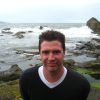
Mark Maguire is the dean of Maynooth University Faculty of Social Sciences and a former head of the Department of Anthropology. He has edited a number of recent collections on the anthropology of security, most recently Spaces of Security: Ethnographies of Securityscapes, Surveillance, and Control (with Setha M. Low).

Mark Maslin is a professor of physical geography at the University College London with expertise in global and regional climate change. Maslin has published over 150 papers in journals such as Science, Nature, Nature Climate Change, The Lancet, and Geology. He has also written eight popular books, including Climate Change: A Very Short Introduction, and over 30 popular articles. His latest popular book is The Cradle of Humanity.
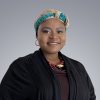
Marlaina Martin was the 2022–2024 postdoctoral fellow at SAPIENS. She earned her Ph.D. in cultural anthropology from Rutgers University-New Brunswick in 2019. Her anthropological research and writing explore learning, creative, and community-building practices of Black women and nonbinary media makers. She has received fellowships and grants from the National Science Foundation, the Association for Feminist Anthropology, the Social Science Research Council, The Phillips Collection, and Rutgers University. Marlaina has been published by The Feminist Wire, OMERTAA, Current Anthropology, Society for Cultural Anthropology, and PBS. Prior to joining the SAPIENS team, she held the first-ever Presidential postdoctoral fellowship in University of Maryland, College Park’s anthropology department.

Marlon Martin is an Ifugao who heads a nonprofit heritage conservation organization in his home province in Ifugao, Philippines. He actively works with various academic and conservation organizations both locally and internationally in the pursuit of Indigenous studies integration and inclusion in the formal school curricula. Along with Stephen Acabado, he established the first community-led Ifugao Indigenous Peoples Education Center, which is the first in the region.

Marnie Thomson is a cultural anthropologist who studies the intersection of humanitarian politics and people’s everyday attempts to cope with violence. Thomson earned her Ph.D. from the University of Colorado and is now an assistant professor at Fort Lewis College in Colorado. Thomson’s current project focuses on campaigns against sexual violence and gender-based violence in the Democratic Republic of Congo and the United States.

Marta Domínguez Delmás is a research associate at the University of Amsterdam. Her research centers on the historical timber trade and transport in Northern Europe and to the Iberian Peninsula since Roman times. This work involves dendrochronological dating and provenancing of timbers from ancient and historical archaeological contexts, buildings, and art objects; identification of European wood species; inspection and sampling of timbers from shipwrecks for dendrochronological research and wood anatomy; and the development of long-span tree-ring chronologies.

Marta Zaraska is a Polish Canadian science journalist based in France. She has written for The Washington Post, Scientific American, New Scientist, The Atlantic, Discover, and other outlets. Her book Meathooked delves into humanity’s longstanding obsession with meat and Growing Young explores the research linking optimism, kindness, and strong social networks to greater longevity. Follow her on Twitter @mzaraska and Instagram @mzaraska.
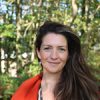
Martha Newson’s research centers on group bonding, ritual, and community. She is a cognitive anthropologist based at the Universities of Kent and Oxford in the U.K. She earned her M.Sc. from Oxford in 2013. Newson currently leads research on how major football clubs can help tackle reoffending in partnership with the Twinning Project, Her Majesty’s Prison & Probation Service, the Ministry of Justice, and social anthropologist Harvey Whitehouse. Her research has been featured in The Telegraph, The Independent, Der Speigel, and other publications.
Martijn de Koning is an anthropologist at the University of Amsterdam and at Radboud University, Nijmegen. He is currently involved in the project titled “Forces That Bind or Divide? Muslim Interventions in the Public Realm 1989–2016” in the department of anthropology at the University of Amsterdam. His main research interests are activism among Muslims, Islamic marriages, and the racialization of Muslims. Follow him on Twitter @Martijn5155.

Martin Carver is an emeritus professor of archaeology at the University of York and has been the director of research at Sutton Hoo since 1983. He conducted an archaeological campaign at Sutton Hoo from 1983–1992 under the auspices of the Sutton Hoo Research Trust, a consortium representing the British Museum, the Society of Antiquaries of London, the BBC, and the Suffolk County Council. Carver is the author of Sutton Hoo: A Seventh-Century Princely Burial Ground and Its Context and The Sutton Hoo Story: Encounters With Early England.
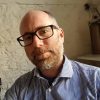
Martin Porr is an associate professor in archaeology and a member of the Centre for Rock Art Research + Management at the University of Western Australia. His research concentrates on aspects related to the Paleolithic art of Europe and Australian rock art, as well as general theoretical aspects of archaeological research. He has conducted fieldwork in Germany, Thailand, Australia, and the Philippines. In 2014, he published the co-edited volume Southern Asia, Australia, and the Search for Human Origins. Currently, he is based at the University of Tübingen as an Alexander von Humboldt research fellow. Follow him on Twitter @martinporr.
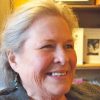
Mary Ellen Lepionka is an independent scholar researching the Indigenous history of Essex County, Massachusetts. She lives on Cape Ann as a retired college instructor and an author. Lepionka has a master’s degree in anthropology from Boston University and has done Ph.D. work at the University of British Columbia. She taught cultural and physical anthropology at Boston University and other post-secondary institutions, participated in local salvage archaeology, excavated an Early Iron Age Bantu refuge site in Botswana, and had a career in higher education publishing as a developmental editor of college textbooks. Her articles on Essex County archaeology are published in the Bulletin of the Massachusetts Archaeological Society (2013–2021).

Mary Prendergast is an associate professor of anthropology at Rice University. She is an archaeologist interested in the history of food and eating, and in the past lifeways of hunter-gatherer-fishers and the earliest livestock herders in sub-Saharan Africa. She co-directs a field project, in collaboration with scholars at the National Museum of Tanzania, University of Florida, and University of Dar es Salaam, that examines social changes associated with the emergence of food production in Eastern Africa. Prendergast also co-directs a project that explores past demographic changes in sub-Saharan Africa through the analysis of human ancient DNA, in collaboration with the Reich Laboratory at Harvard, where she is a scientific associate.
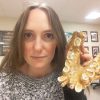
Mary Shirley Mitchell is a biological anthropologist who studies functional morphology and evolutionary biology. She received her M.A. from the University of Colorado, Denver, and is currently working on her Ph.D. at Colorado State University. She is the host of the science podcast Swigs of Science and her dissertation focuses on the arboreal origins of bipedality in orangutans. Follow her on Instagram at @swigsofscience.

Mathew Gagné is a sociocultural anthropologist studying the difference information makes in connecting us intimately. He is an assistant professor in the department of sociology and social anthropology at Dalhousie University in Nova Scotia (Canada). He received his Ph.D. in anthropology from the University of Toronto, having written a dissertation examining the impacts of digital media, specifically sex apps, within the intimate lives of queer Beiruti men. Gagné is researching the social lives of digital nomads in Mexico City. His research has recently appeared in the Middle East Journal of Culture and Communication, Home: Ethnographic Encounters, and Sex in the Middle East and North Africa. He also hosts podcasts with the New Books Network. Follow him on Twitter @mathewgagne1.

Matthew C. Reilly is an anthropological archaeologist and a faculty member in anthropology at the City College of New York. He has co-directed the Back-to-Africa Heritage and Archaeology project in Liberia since 2018. He is the author of Archaeology Below the Cliff: Race, Class, and Redlegs in Barbadian Sugar Society.
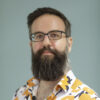
Matthew Gwynfryn Thomas is an anthropologist working in the nonprofit sector in London. His current work combines data science, social science, and futures studies to address the needs of people in crisis. Thomas’ Ph.D. and postdoctoral research was about the evolution of cooperation in marginalized communities. He has also written popular science articles for a variety of outlets, including BioNews, SciDev.Net, and the Wellcome Trust Blog. Follow him on Twitter @matthewgthomas.

Matthew Robert Bennett is a professor of environmental and geographical sciences at Bournemouth University in England. In 2015, he co-launched the Institute for Landscape Studies and Human Evolution at Bournemouth University. He has published numerous articles about ancient footprints. Bennett’s current research involves ecological modeling of hominin evolution, and he is currently writing a textbook on human evolution.

Max G. Levy is a freelance science journalist based in Los Angeles, California. He received a Ph.D. in chemical and biological engineering from the University of Colorado, Boulder, and is an assistant editor at Massive Science. His work has appeared in The Verge, Smithsonian Magazine, Vox, and other publications. Follow him on Twitter @laxmevy.
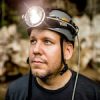
Maxime Aubert is a professor of archaeology and geochemistry at Griffith University in Queensland, Australia. He specializes in the development and application of analytical techniques used to date rock art and hominin fossils.
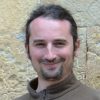
Maxime L’Héritier is an archaeologist and a historian who studies construction history and archaeometallurgy. His works deal with metal production, construction techniques, and trade in the Middle Ages. He received his Ph.D. on “the use of iron in Gothic architecture” from the University of Paris 1 Panthéon-Sorbonne in 2007 and is currently an associate professor in medieval history at the University of Paris 8 Vincennes-Saint-Denis and ArScAn CNRS laboratory. In 2019, L’Héritier co-edited a book on ancient building maintenance and long-term conservation practices titled Sarta Tecta. De l’entretien à la conservation des édifices, Antiquité, Moyen Âge, début de la période moderne. Since May 2019, he coordinates the “metal workgroup” for the scientific project on Notre Dame de Paris, funded by the CNRS (French National Centre for Scientific Research) and French Ministry of Culture.
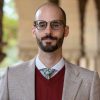
Maxime Polleri is an anthropologist of science and technology who studies the governance of risk in the aftermath of environmentally damaging technological disasters. His current research focuses on Japanese public and state responses to the release of radioactive contamination after the 2011 Fukushima nuclear disaster.

Mayane Dore is a Brazilian anthropologist and designer interested in participatory urban design and democratic practices in Latin America. She is currently a Ph.D. candidate in anthropology at Complutense University of Madrid and Macquarie University in Sydney, where she studies everyday life and democracy during a participatory urban redevelopment.

Meena Khandelwal is an anthropologist and feminist scholar who has conducted research on female Hindu renunciation in the northern Indian cities of Haridwar and Rishikesh. She is the author of Women in Ochre Robes and a co-editor of Women’s Renunciation in South Asia (with Sondra Hausner and Ann Grodzins Gold). She is currently studying migration, development, the environment, and efforts to improve biofuel cookstoves in India. Khandelwal received her Ph.D. from the University of Virginia and is currently associate professor of anthropology and of gender, women’s, and sexuality studies at the University of Iowa.

Megan A. Carney is a sociocultural and medical anthropologist with specializations in migration and health, food insecurity, and the politics of care. She is an associate professor of anthropology and the director of the Center for Regional Food Studies at the University of Arizona. Carney is the author of two books, the award-winning The Unending Hunger: Tracing Women and Food Insecurity Across Borders and the recently released Island of Hope: Migration and Solidarity in the Mediterranean. She is a 2021–2022 fellow with the Fulbright-Schuman European Union Affairs Program and was previously a public voices fellow with The OpEd Project. Follow her on Twitter @megan_a_carney.

Megan Brickley is a physical anthropologist who studies disease in past communities. She received a Ph.D. from the University College London and currently holds a Tier One Canada Research Chair at McMaster University in Canada. She is the author of numerous papers and books, including The Bioarchaeology of Metabolic Bone Disease (co-authored with Rachel Ives). At present, Brickley and her co-author are working on a second edition of this book. Brickley has worked extensively on paleopathology projects and is currently completing a study funded by the Social Sciences and Humanities Research Council looking at vitamin D deficiency in the Western Roman Empire.
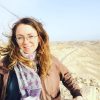
Megan I. Gannon is a journalist based in Berlin, Germany. Her writing has appeared in Science, Scientific American, National Geographic, and Smithsonian, among other publications. She is a former news editor for Live Science and Space.com. Follow her on Twitter @meganigannon.

Megan Moodie is an associate professor of anthropology at the University of California, Santa Cruz, where she specializes in feminist political and legal anthropology and experimental ethnographic writing. Her book We Were Adivasis: Aspiration in an Indian Scheduled Tribe appeared in the South Asia Across the Disciplines series with the University of Chicago Press in 2015, and her scholarly works have been published in American Ethnologist, Signs: Journal of Women in Culture and Society, and Focaal: Journal of Global and Historical Anthropology. Moodie’s essays on motherhood can be found online at Hip Mama and MUTHA Magazine. She is also the founder and editor/curator of the Margaret Mead Journalism Project, which aims to bring the best of contemporary cultural analysis to a wide readership. She is currently at work on a novel.

Meghan McAllister-Hayward is an international Ph.D. research candidate at Flinders University. She uses geochemistry to reconstruct the local paleoenvironments of cave sites that contain some of the earliest-known evidence of Homo sapiens across Southeast Asia and Australia. McAllister-Hayward is also part of the Future Fellow research team Disperscapes funded by the Australian Research Council.

Melina Seabrook is an archaeologist studying animal management during the development of urban centers in Southwestern Asia. She uses a mix of zooarchaeological analysis and archaeological sciences to investigate human-animal relationships. She is a Ph.D. candidate in anthropology at Harvard University. In addition to her current project on fauna from southeastern Iran, she works on archaeological projects in Iraqi Kurdistan and southern Iraq. Follow her on Twitter @MelinaSeabrook.

Melissa Godin is a writer, activist, and Rhodes scholar whose research focuses on women’s rights. She graduated from New York University with a degree in politics, rights, and development, and is currently pursuing a master’s in development studies at the University of Oxford.
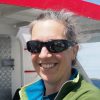
Meredith S. Chesson is a professor of anthropology at the University of Notre Dame in South Bend, Indiana. She is an anthropological archaeologist who co-directs (with Morag M. Kersel) the Expedition to the Dead Sea Plain (EDSP) project. Her work analyzes the archival documentation of the 1975–1990 EDSP excavations of the Early Bronze Age cemeteries of Fifa, Bâb adh-Dhrâʿ, and Khirbat Khanazir in order to publish the final reports. Chesson’s fieldwork includes co-directing (with Isaac Ullah) a field survey and ethnographic project in Southern Calabria, Italy, examining post-medieval rural communities and sustainability around Bova and Bova Marina. She recently concluded an ethnoarchaeological study of dressers and delph in modern homes of rural western Ireland.
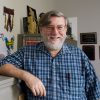
Merrill Singer, a medical anthropologist, is a professor in the departments of anthropology and community medicine at the University of Connecticut. Central issues in his work are the social determinants of health inequality, the critical biosocial nature of health, and environmental health, including infectious diseases. He is a recipient of the George Foster Practicing Medical Anthropology Award, the Society for the Anthropology of North America’s Prize for Distinguished Achievement in the Critical Study of North America, the Solon T. Kimball Award for Public and Applied Anthropology, and the Society for Medical Anthropology’s Career Award. Singer is the author of the book titled Anthropology of Infectious Disease.

Mesak Takhelmayum is studying history at Ng. Mani College in Imphal, Manipur, India, and working as a freelance writer. He is a Queer activist and writer inspired by life events and the landscapes that surround his stories. His writings reflect on the nuances of a changing land as diverse, vibrant, and beautiful as the backdrop of sad spaces in the world. Follow him on Instagram @kaidongfam.

Michael “Mike” Makwa Auksi is completing his dissertation for a Ph.D. at McGill University. He is a Bear Clan member and a Band member of the Lac Seul First Nation and a Toronto-born, Anishinaabe-Estonian. He is studying Indigenous ice hockey histories, community-based participatory sport, and wellness programming. Qualifications for the 2018 PyeongChang Olympics with Team Estonia represented his perfect exit from competitive sport. He and his father, George Kenny, are working with Alicia Colson and other members of the Teaching Circle on a project partially funded by an Engaged Research Grant from the Wenner-Gren Foundation on Animism: An Insider’s View.

Michael Balter is a freelance writer and reporter who covers anthropology, archaeology, mental health, and sexual harassment in the sciences. His work has appeared in Science, Scientific American, Audubon, The Verge, and many other publications. He is also the author of The Goddess and the Bull: Çatalhöyük, an Archaeological Journey to the Dawn of Civilization. Follow him on Twitter at @mbalter.

Michael C. Lambert is an associate professor of African studies and anthropology at the University of North Carolina, Chapel Hill, and an enrolled citizen of the Eastern Band of Cherokee Indians. Lambert’s research has focused on Francophone West Africa and, in particular, the West African nation of Senegal. His first book, Longing for Exile: Migration and the Making of a Translocal Community in Senegal, West Africa, is a historical ethnography of a Senegalese community. In addition, Lambert has published on gender, Negritude, transnational migration, and West African politics.
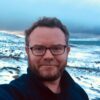
Michael Haslam is an archaeologist who studies the evolution of tool use in human and nonhuman animals. He received his Ph.D. from the University of Queensland and works at the World Heritage Neolithic site of Skara Brae, Orkney. His academic work includes stone tool function, the migration of modern humans out of Africa, and field studies with tool-using monkeys, sea otters, chimpanzees, crows, and starlings. Haslam previously led the Primate Archaeology project at Oxford University, funded by the European Research Council. He writes about animal tool use at the Twig Technology blog. Follow him on Bluesky @twigtechnology.bsky.social.

Michael Klingler is a geographer who works at the Institute of Geography at the University of Innsbruck in Austria. He entered the Amazonian gold mines rather by accident in 2009, while he was doing doctoral research fieldwork. Since then, he has returned repeatedly to conduct social research by interpreting visual images as cultural texts. Klingler has published articles on frontier development, land-use change, environmental governance, and social-ecological transformation in the Brazilian Amazon.

Michael P. Oman-Reagan is a Vanier scholar and Ph.D. candidate in the department of anthropology at Memorial University of Newfoundland. For his M.A. at Hunter College, City University of New York, he conducted fieldwork with transnational social movements in Indonesia to trace how activists engaged with the globalizing Occupy movement through history, technology, and social media. His current fieldwork with communities of space scientists in Canada and the U.S. examines how possible futures are imagined and built through interstellar exploration, astrobiology, the search for extraterrestrial intelligence, and speculative fiction. Follow him on Twitter @OmanReagan.

Michael Vicente Pérez is a cultural anthropologist who studies forced displacement in the Middle East. He received his Ph.D. from Michigan State University and is an associate professor at the University of Memphis and affiliate assistant professor at the University of Washington. He has published his research in Cultural Anthropology, Anthropology of the Middle East, the Journal of Palestine Studies, and other peer-reviewed journals. Pérez is working on a monograph based on his research with Palestinian refugees in Jordan and on a project in Chile focused on everyday life among Chilean Muslims.

Michael Youngblood’s award-winning book Cultivating Community: Interest, Identity, and Ambiguity in an Indian Social Mobilization explores the politics of meaning in a populist political movement in India. He received his Ph.D. in cultural anthropology from the University of Wisconsin, Madison, and has taught at the School for International Training, the Maryland Institute College of Art, and Stanford University. He is currently a principal consultant at The Youngblood Group, where he employs ethnographic methods, cultural theory, and human-centered design to promote positive social innovation. Follow him on Twitter @mike_youngblood.
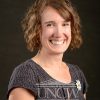
Michaela Howells is a biological anthropologist who studies human biology, psychosocial stress, reproduction, barriers to reproductive health care, and neonate growth and development. She received her Ph.D. from the University of Colorado, Boulder, and is currently an assistant professor at the University of North Carolina, Wilmington, where she directs the Growth, Adaptation, Pregnancy, Stress Lab. Her most recent project focuses on addressing the reemergence of the Zika virus at her long-term field site in American Samoa. Follow her on Twitter @HumanBioHowells.
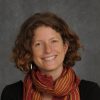
Michele Friedner is a medical anthropologist who studies deafness and disability in India and the United States. She received her Ph.D. from the University of California, Berkeley–University of California, San Francisco Joint Medical Anthropology Program and is currently an assistant professor in the department of comparative human development at the University of Chicago. Friedner is the author of Valuing Deaf Worlds in Urban India and Sensory Futures: Deafness and Cochlear Implant Infrastructures in India (forthcoming). She is currently working on a project, funded by the National Science Foundation, to study different therapeutic approaches to deafness internationally and the ways that technologies such as cochlear implants both expand and contract sensory and relational possibilities.
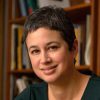
Michele R. Buzon is a bioarchaeologist in the department of anthropology at Purdue University. Her research focuses on excavating and analyzing human skeletal remains from archaeological sites to address questions related to the biocultural effects of sociopolitical change in the ancient Nile River Valley.

Michelle A. Rodrigues received her M.A. in anthropology from Iowa State University and her Ph.D. in biological anthropology from Ohio State University. She is an assistant professor in the department of social and cultural sciences at Marquette University in Wisconsin. Rodrigues’ research focuses on the evolution of female social relationships, stress biology, and human-primate interactions across the primate order. Her teaching interests focus on biological anthropology, human biology, and primatology, and she is excited to bring new perspectives on how racism and colonialism shape these fields.

Michelle Cheng is a postdoctoral fellow at the Education University of Hong Kong. She holds a Ph.D. and a bachelor’s of social science from the University of Hong Kong. She works on an interdisciplinary research project to study pro-environmental behaviors of university students. Cheng’s work has been published in Sustainability and Social Psychology of Education.

Michelle Langley is an associate professor in the Australian Research Centre for Human Evolution and the School of Environment and Science at Griffith University. Langley’s research centers on understanding the origins and development of human behavioral uniqueness, with a particular focus on hunter-gatherer technologies, Australian archaeology, Neanderthal behavioral complexity and interaction with modern humans, Paleolithic Europe, and identifying children in the deep past. Follow her on Twitter @Dr_MCLangley.

Michelle Pieters is a sophomore at the University of North Carolina, Wilmington, double majoring in anthropology and public health studies. Pieters is originally from Guatemala City and is the co-founder and vice president of Fundación Desarrolla Guatemala, a nonprofit organization that promotes and funds culturally appropriate and sustainable community service projects in rural Guatemala. She is currently participating in the interdisciplinary research project “Discovering and Addressing Adolescent Health Care Issues in Rural Guatemala.” Follow her on Twitter @michpietersa.
The UKRI GCRF South-South Migration, Inequality, and Development Hub (MIDEQ) is a research project funded by U.K. Research and Innovation (UKRI) through the Global Challenges Research Fund (GCRF) and led by Coventry University. MIDEQ unpacks the complex and multidimensional relationships between migration, inequality, and development in the context of the Global South. A global research project, MIDEQ translates research and engagement activities into concrete policies and practices to improve the lives of migrants, their families, and the communities in which they live.

Mikaela Brewer is a multidisciplinary writer and qualitative researcher. She has played basketball for Team Canada and Stanford University, where she studied human biology (brain, behavior, and mental health), creative writing, and science communication. Brewer writes and speaks about her experiences as both a suicide attempt and loss survivor, exploring how these painful events intersected with her career as a student athlete navigating a complicated mental health care landscape. Her first novel was The Sifting Project. She is currently working on a second novel and designing a Ph.D. project that will braid suicide prevention with poetry, language, and storytelling.
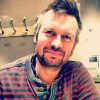
Mike W. Morley is an associate professor at Flinders University in Australia. As a geoarchaeologist, his primary area of expertise is the study of archaeological site formation processes and the reconstruction of paleoenvironments. He is interested in reconstructing changes in geomorphological systems, such as river behavioral change, and the implications of these dynamics on humans living in—and interacting with—these landscapes. Morley has worked in Europe, North Africa (Sudan, Libya), Southern Africa (South Africa, Lesotho), the Middle East (Oman, Bahrain, UAE, Saudi Arabia), and Southeast Asia (Malaysian Borneo, Vietnam, Indonesia, Myanmar).

Miranda Cady Hallett is a legal anthropologist who has conducted ethnographic fieldwork in El Salvador since 1998 and with Salvadoran immigrant communities in the U.S. since 2004. She has published on immigration in numerous peer-reviewed journals, including Latino Studies and Law and Society Review. Hallett is also an engaged public anthropologist with a commitment to civil rights and social justice movements.

Miranda Lovett is a graduate student interested in Greek and Minoan art, heritage studies, museum studies, and how modern societies have received and integrated Egyptian culture. She will complete her M.A. in classical archaeology from the University of Arizona this year and will be an intern at the Getty Villa, a museum in California, in 2021.
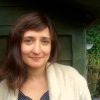
Miranda Sheild Johansson is a social anthropologist whose work focuses on contemporary Bolivia. She is interested in conceptions of work, the value of productivity, and fiscal cultures. She received her Ph.D. in anthropology in 2014 from the London School of Economics and has worked as a teaching fellow at the University College London (UCL). Sheild Johansson is currently a Leverhulme Early Career Fellow at the UCL, working on a research project titled “Becoming a Taxpayer: Fiscal Expansion and Economic Subjectivities in Bolivia.” She has published in various academic journals on the themes of agricultural labor and taxation.

Mirjana Roksandic is a professor of anthropology and the coordinator of a multidisciplinary program in bioanthropology at the University of Winnipeg in Canada. She is also a graduate faculty at the University of Manitoba. Her research focuses on human evolution in Europe and the Eastern Mediterranean, and on hunter-gatherers in the littoral areas of the world. Roksandic serves as the president of the Palaeoanthropology Society of Canada.
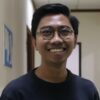
Moh. Faiz Maulana is a doctoral candidate in anthropology at the University of Indonesia. He is also a lecturer in sociology at the University Nahdlatul Ulama of Indonesia, Jakarta. His book on gender anthropology is Konco Wingking dari Waktu ke Waktu (The Friend Who Follows Behind From Time to Time). He has also published several books of poetry: Black Umbrella, Learn to Bike, Today, You May Not Love Me Today, and At the Intersection of Sarinah Plaza, Thamrin Street. Follow him on Instagram @bahasatentangkita.

Mohammed El-Said is a science journalist based in Cairo, Egypt. His work has appeared in Scientific American, Nature Middle East, the Daily News Egypt, SciDev.net, and the American Geophysical Union’s Eos. He has a bachelor’s degree in geography from Mansoura University in Egypt. His work focuses on environmental issues and topics related to the geosciences. Twitter @MOHAMMED2SAID.

Moisés Lino e Silva is tenured faculty in the department of anthropology at the Federal University of Bahia in Brazil. As a political anthropologist in both Brazil and Nigeria, he specializes in the ethnographic study of freedom and authority in relation to poverty, sexuality, race, and religion. He is the author of Minoritarian Liberalism: A Travesti Life in a Brazilian Favela. Lino e Silva has been selected as a World Social Science fellow by the International Social Science Council (UNESCO). Follow him on Twitter @linoesilva.

Molly Bearman is an anthropologist whose research interests include the phenomenology of cemeteries, disaster relief, migratory death in the American Southwest, and the history of childbirth. She received her B.A. in anthropology from Mount Holyoke College and her M.Sc. from the University College London in bioarchaeology and forensic anthropology. Her thesis was on the introduction of obstetric forceps into labor practices and its effect on present-day forensic investigations. Bearman has previously published a paper on ethnography as a literary genre in SUNY Buffalo’s anthropological journal. She is presently a researcher at the ABIS Group.
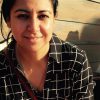
Mona Bhan is a cultural anthropologist who studies the intersections between counterinsurgency, militarism, and development. She received her Ph.D. from Rutgers University in New Jersey and is currently an associate professor at DePauw University. She is the author of Counterinsurgency, Democracy, and the Politics of Identity in India: From Warfare to Welfare? and a co-author of Climate Without Nature: A Critical History of the Anthropocene, forthcoming from Cambridge University Press. Her ongoing work in the border provinces of Kashmir analyzes the relationship between dams, environmental imaginaries, and India’s counterinsurgency politics. Follow her on Twitter @bhanbrogmo.
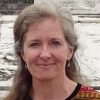
Monica L. Smith is an archaeologist who studies material culture, urbanism, and the long history of the human species. She is a professor in the anthropology department and in the Institute of the Environment and Sustainability at the University of California, Los Angeles, and she holds the Navin and Pratima Doshi Chair in Indian Studies. Smith’s books and articles include A Prehistory of Ordinary People, Cities: The First 6,000 Years, and Excavations at Sisupalgarh (with R.K. Mohanty). Follow her on Twitter @smithUCLA.

Monica Schoch-Spana, a cultural anthropologist, has both research and policy expertise in public health emergency management. She received her Ph.D. from Johns Hopkins University (JHU) and is currently a senior scholar at the Center for Health Security at the JHU Bloomberg School of Public Health. For over 20 years, she has translated scholarship on disaster readiness, response, and recovery, and community resilience, into actionable recommendations for policymakers and practitioners. Schoch-Spana co-leads CommuniVax, a rapid research and action coalition, funded by the Chan Zuckerberg Initiative, in support of an equitable COVID-19 vaccination campaign. Follow her on Twitter @MSchochSpana.
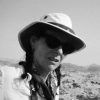
Morag M. Kersel is an archaeologist who works in the Eastern Mediterranean in the Neolithic, Chalcolithic, and Early Bronze Age periods. She is an associate professor of anthropology and the director of the museum studies minor at DePaul University in Chicago. With Meredith S. Chesson and Austin “Chad” Hill, she co-directs the Follow the Pots and Landscapes of the Dead projects, investigating Early Bronze Age material remains, landscapes, and local interactions along the Dead Sea Plain in Jordan. Kersel also works on the public display and interpretation of archaeological artifacts in institutional spaces. Follow her on Twitter @mokersel.
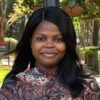
Morenike Samuel is pursuing a graduate degree in biocultural medical anthropology at the University of Alabama, where her research is centered on investigating sickle cell anemia. Her study explores the psychological, social, and economic impacts of the illness on both individuals and their families. Samuel received her bachelor’s degree from the University of Ibadan, Nigeria. Her interest in complementary and alternative medicine and the anthropology of disease was ignited during her exploration of ethnomedicinal practices among the people of Southwest Nigeria. Follow her on X, formerly Twitter, @MorenikeTS.

Morgan K. Hoke is an anthropologist who studies growth and development, nutrition, and health from a biocultural perspective. She received her Ph.D. in anthropology and M.A. in public health from Northwestern University in 2017. She is currently an assistant professor of anthropology at the University of Pennsylvania, where she teaches classes on evolutionary medicine, human biology, and nutritional anthropology. Her research takes place in a rural community in highland Peru, where she explores influences on infant growth and health. Hoke is the author of several articles and book chapters, and is a proud dog-mom to her rescue pups, Charlie Darwin and Nuna Auqa. Follow her on Twitter @MorganHoke.

Morwari Zafar is an anthropologist and an adjunct professor at Georgetown University’s Center for Security Studies. As a research fellow at the University of Oxford’s Rothermere American Institute from 2022 to 2023, she conducted an ethnographic study of militias and gun rights activism in the state of Virginia. She is the founder of The Sentient Group, a research, education, and training company in Washington, D.C.
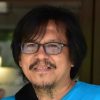
Myfel D. Paluga is an anthropologist and a faculty member of the department of social sciences at the University of the Philippines in Mindanao. He has done field studies in the ethology of Philippine macaques, human-animal relations in Southeast Asia and Japan, and Indigenous practices related to sago palm utilization in Mindanao and the Visayas. At present, Paluga is doing a dissertation on Pantaron Manobo epics and society at Leiden University.

Nam C. Kim is an archaeologist who studies ancient civilizations and warfare. He received his Ph.D. from the University of Illinois, Chicago, and is an associate professor at the University of Wisconsin, Madison. He is the author of The Origins of Ancient Vietnam and a co-author of the forthcoming title Emergent Warfare in Our Evolutionary Past (with Mark Kissel).
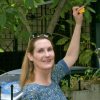
Nancy Gonlin is a Mesoamerican archaeologist who studies ancient Maya commoners and their daily and nightly lives. Gonlin earned a Ph.D. from Pennsylvania State University and is a senior associate professor at Bellevue College. She co-edited Archaeology of the Night: Life After Dark in the Ancient World (with April Nowell), Human Adaptation in Ancient Mesoamerica: Empirical Approaches to Mesoamerican Archaeology (with Kirk D. French), Ancient Households of the Americas: Conceptualizing What Households Do (with John G. Douglass), and Commoner Ritual and Ideology in Ancient Mesoamerica (with Jon C. Lohse). She also co-authored Copan: The Rise and Fall of an Ancient Maya Kingdom (with Ann Corinne Freter and David Webster). Gonlin is the associate editor of Ancient Mesoamerica and the editor of the Journal of Archaeology and Education. Watch her TEDx talk: “Life After Dark in the Ancient World.”

Naomi Lubick is a freelance science writer and editor based in Stockholm, Sweden. She has written about chemicals in the environment, earthquakes, and clean water, among other subjects, for many publications including Nature, New Scientist, and Science.
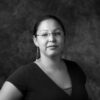
Natalie Dana-Lolar is a Passamaquoddy citizen by heritage and ancestral lines. She is a doctoral graduate student at the University of Maine in anthropology and environmental policy. Dana-Lolar has had some of her poems published in Dawnland Voices and is a co-author of the article “In Conversation With the Ancestors: Indigenizing Archaeological Narratives at Acadia National Park, Maine” (with Bonnie Newsom and Isaac St. John). She works for the Passamaquoddy Cultural Heritage Museum to create further pathways of understanding of the archaeological importance of Indigenous voice and presence and understandings of past Indigenous lifeways both within and outside of contemporary Wabanaki (Passamaquoddy, Penobscot, Maliseet, and Mi’kmaq) communities.

Natasha A. Fernández-Pérez is a Ph.D. student in anthropology, with an emphasis in archaeology, and a National Science Foundation graduate research fellow at the University of California, Berkeley. She received her B.A. from the University of Puerto Rico, Río Piedras. From 2015 to 2017, she was a Mellon Mays Undergraduate Fellow. Her broad research interests are concerned with food and power dynamics in the Caribbean, and her current research focuses on the study of food, colonialism, race, and gender relations in Spanish colonial Puerto Rico. Fernández-Pérez is particularly engaged with how archaeology has the potential to decolonize the past by creating narratives of resistance and by directly relating the past to the present.

Natasha Raheja is a Ph.D. candidate in anthropology at New York University. She is currently based in Jodhpur, where her research examines questions of citizenship, belonging, and agency in the context of current Pakistani migration to India. Raheja is also a documentary filmmaker, and her ethnographic film Cast in India has been screened at colleges and festivals nationally and internationally.
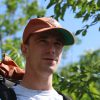
Nathaniel Scharping is a science journalist based in Tacoma, Washington. He writes about the environment, medicine, and archaeology, and his work has appeared in Atlas Obscura, Discover magazine, Yale Environment 360, and more. Follow him on Twitter @NathanielScharp.

Nathaniel Tarn is a poet, translator, critic, and editor with some 35 publications and an anthropologist specializing in religious systems (mainly in Guatemala and Burma [now Myanmar]) with some 10 publications. He was educated at Cambridge University, the London School of Economics, the Sorbonne, Collège des Hautes Études, Collège de France, and the University of Chicago (Ph.D.). He taught anthropology and comparative literature at SOAS University of London, Princeton University, the University of Pennsylvania, and Rutgers University. Tarn has been “retired” since 1984 and lives in the desert northwest of Santa Fe, New Mexico, with his wife, poet and printer Janet Rodney.

Neely Laurenzo Myers is a medical anthropologist who studies mental health recovery and mental health services in the United States and Tanzania, particularly among people with lived experiences of psychosis and trauma. Myers earned her Ph.D. at the University of Chicago and teaches at Southern Methodist University. Her book Recovery’s Edge: An Ethnography of Mental Health Care and Moral Agency received the Norman L. and Roselea J. Goldberg Prize from Vanderbilt University Press for the best book in the area of medicine. Follow her on Twitter @neelymyers.

Nell Haynes is an assistant teaching professor in anthropology at Georgetown University. Her research addresses themes of gender and Indigeneity in Latin America. Haynes earned her Ph.D. in anthropology at American University, with a concentration in race, gender, and social justice. She is the author of Social Media in Northern Chile and a co-author of How the World Changed Social Media.
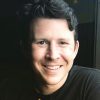
Nicholas C. Kawa is an assistant professor in the department of anthropology at Ohio State University. His research centers on questions of human-environment interactions, with a specific focus on human relationships to plants and soils. He is the author of Amazonia in the Anthropocene. Follow him on Twitter @nick_kawa.

Nicholas C. Laluk is a member of the White Mountain Apache Tribe in east-central Arizona and an assistant professor in anthropology at the University of California, Berkeley. He completed his Ph.D. in anthropology at the University of Arizona with a minor in American Indian studies. Laluk has led collaborative projects with the U.S. Forest Service and consulted and acted as the deputy Tribal historic preservation officer for the White Mountain Apache Tribe. His research goals strongly emphasize and mandate collaborative and multivocal inclusion of Tribal and Indigenous communities who have ongoing and ancestral affiliations to current and former homelands. Laluk is also interested in achieving social justice for Indigenous communities through the lenses of sovereignty-driven research and decolonial methodologies that foreground Indigenous epistemologies and Tribal cultural heritage resource best-management practices in the continued Indigenization of the discipline of anthropology.

Nicholas Humphrey is a professor emeritus of psychology at the London School of Economics. He is the author of many books on the evolution of human intelligence and consciousness, the latest being Soul Dust: The Magic of Consciousness.

Nicholas R. Longrich is a paleontologist and evolutionary biologist from Kodiak, Alaska, who is currently a senior lecturer at the University of Bath in England. He studies dinosaurs, pterosaurs, fossil birds, lizards, and snakes. Longrich is particularly interested in the idea that macroevolution is more than just lots of microevolution—that over long periods of time, at large scales, and in the evolution of complex structures, the processes of evolution itself have evolved.

Nicola Jones is a freelance science journalist living in Pemberton, near Vancouver, British Columbia. She has a bachelor’s degree in oceanography and chemistry, and a master’s in journalism, both from the University of British Columbia. Over her career, Jones has been a regular editor and contributor to SAPIENS, Nature, Yale Environment 360, Hakai Magazine, Knowable Magazine, and other publications. She has given a TED Talk and edited a major report for Future Earth on sustainability. Follow her on Twitter @nicolakimjones.

Nicole Boivin is the director of the archaeology department at the Max Planck Institute for the Science of Human History. She has a Ph.D. in archaeology from the University of Cambridge. Boivin is interested in human history over the long term and the broad patterns of migration, interaction, and environmental manipulation that have shaped the human story.
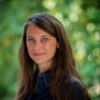
Nicole Labruto is a cultural anthropologist who studies biology and sustainability in Brazil and the U.S. She received her Ph.D. from the Massachusetts Institute of Technology and is currently an assistant research professor at Johns Hopkins University. Her current book project, Sweet Monster: Culturing Sugarcane in Brazil, examines how bioscientists in Brazil are leveraging colonial plantation infrastructures and technologies for sustainability-oriented climate change solutions in Brazil and Mozambique. Labruto is also working on several funded projects related to environmental justice in Baltimore: one on food sovereignty and aquaculture, one on composting and zero-waste transitions, and one on multi-scalar sustainable food systems.

Niko Besnier directs a project (funded by the European Research Council) called “Globalization, Sport, and the Precarity of Masculinity” (GLOBALSPORT) based at the University of Amsterdam, where he is currently professor of cultural anthropology. He is the editor-in-chief of the journal American Ethnologist. His most recent publications include “Crisis, Value, and Hope: Rethinking the Economy” (co-edited with Susana Narotzky), Gender on the Edge: Transgender, Gay, and Other Pacific Islanders (co-edited with Kalissa Alexeyeff), “Decentering and Recentering Communicative Competence” (co-edited with Kuniyoshi Kataoka and Keiko Ikeda), On the Edge of the Global: Modern Anxieties in a Pacific Island Nation, and Gossip and the Everyday Production of Politics. Follow him on Twitter @globalsportuva.

Nimisha Thakur is a Ph.D. candidate in cultural anthropology at Syracuse University in New York. She studies gender and belonging in the river landscapes of Assam, India. Her Ph.D. research project focuses on space-based understandings of what it means to be Indigenous among women in a community called the Mising, who live on small river islands of the Brahmaputra River. Thakur’s work analyzes how Mising understandings of belonging challenge nationalist discourses of citizenship and Indigenousness in India. Follow her on Twitter @nimixa94.
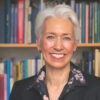
Nina G. Jablonski is the Evan Pugh University Professor of Anthropology at Pennsylvania State University. A biological anthropologist and paleobiologist, she studies the evolution of adaptations to the environment in Old World primates, including humans. Her research of the primate fossil record draws upon the evidence of comparative anatomy, physiology, and paleoecology to understand why primates have evolved in the ways and places where they have. Jablonski’s study of human evolution is focused on understanding how skin and skin pigmentation have evolved over time and in the course of widespread dispersals. Her research on the evolution of human skin color includes explorations of skin-color–based concepts of human classification, including color-based race and its meanings.

Nomi Stone is an assistant professor of poetry/creative writing at the University of Texas, Dallas. Her second poetry collection Kill Class (Tupelo 2019), based on her anthropological fieldwork in military training camps across the U.S., was recently a finalist for the Julie Suk Award. Winner of a Pushcart Prize, a Fulbright fellowship, and broadcast across buses by the Poetry Society of America in Rhode Island, Stone’s poems appear recently in The Best American Poetry, The Nation, The New Republic, and elsewhere. Stone received her Ph.D. in anthropology from Columbia University and her MFA in poetry from Warren Wilson College. Her first anthropology monograph Pinelandia: Human Technology and American Empire/An Anthropology and Field-Poetics of Contemporary War is forthcoming (University of California Press, 2022). Follow her on Twitter @Nomi_Stone.

Nyíri Pál obtained his Ph.D. in history from Moscow State University and in sociology from the Hungarian Academy of Sciences. He is currently the professor of global history from an anthropological perspective at the Vrije Universiteit, Amsterdam. His research focuses on the international mobility of contemporary Chinese elites. Nyíri’s recent books include Reporting for China: How Chinese Correspondents Work With the World and the co-edited volume Chinese Encounters in Southeast Asia: How People, Money, and Ideas From China are Changing a Region (with Danielle Tan).
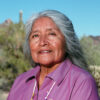
Ofelia Zepeda is Tohono O’odham and a Regents’ Professor of Linguistics at the University of Arizona. She is a recipient of a MacArthur Fellowship for her work in American Indian language education and recovery. Zepeda is the author of A Tohono O’odham Grammar, and three books of poetry: Ocean Power: Poems From the Desert, Jewed ’I-hoi/Earth Movements, and Where Clouds Are Formed. Her work also appeared in When the Light of The World Was Subdued, Our Songs Came Through, edited by U.S. Poet Laureate Joy Harjo.

Ojo Taiye is a Nigerian eco-activist, cultural worker, and artist who uses poetry as a tool to hide his frustration with society. His practice is collaborative, and his work often speaks to climate change, homelessness, migration, racism, Black identity, and mental health. His current project explores neocolonialism, institutionalized violence, and ecological trauma in the oil-rich, polluted Niger Delta. Taiye’s poems have been published or are forthcoming in the Evergreen Review, Mizna, Narrative Magazine, Mycelia, and The Spectacle, among others. He has worked on the following projects: 2022—CHCI/MELLON Global Humanities Institute, South Africa; We Hear You—A Climate Archive, 2023; and the 2023–Environmental Humanities Justice Network (Transformative Connections), Denmark. His debut mixed media installation was exhibited in Linz, Austria, as part of the Ars Electronica Festival 2023. He is at work on his second poetry pamphlet.
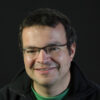
Oliver Davis is a senior lecturer in archaeology at Cardiff University, Wales, who specializes in the later prehistory of Britain. His research is principally based around exploring concepts of community and considering the processes and actions that bind groups together. He is the co-director, with Dave Waytt, of the Caerau and Ely Rediscovering (CAER) Heritage Project in Cardiff. Funded by the National Lottery Heritage Fund and the Arts and Humanities Research Council, the CAER Heritage Project is a collaboration between Cardiff University, the Ely and Caerau communities, and local schools and residents. It focuses on Caerau Hillfort, one of Wales’ most important but little-known archaeological sites, to engage local citizens in their shared history in an effort to break down social and economic barriers in the area.

Olivia Campbell is a science journalist and essayist. Her work has appeared in The Guardian, The Cut, Scientific American, The Washington Post, Smithsonian magazine, SELF, Literary Hub, Undark, and Catapult magazine.

Orin Starn is a professor of cultural anthropology and history at Duke University. He is the author of Ishi’s Brain: In Search of America’s Last “Wild” Indian and The Passion of Tiger Woods: An Anthropologist Reports on Golf, Race, and Celebrity Scandal. His most recent book is The Shining Path: Love, Madness, and Revolution in the Andes (with Miguel La Serna). Starn directs the Amazon Research Project at Duke University and is still working at Amazon.

Pablo Hernández Mares is a freelance science journalist from Guadalajara, Mexico. He writes about the climate crisis, environmental research and policy, medicine, and science. His work has been featured in Mongabay, Medscape, and Cientifico Digital, among other media outlets. Follow him on Twitter @pablohmares.

Paige Edmiston is a Ph.D. student in cultural anthropology at the University of Colorado, Boulder. Her research focuses on how digital technologies are impacting the U.S. medical system and the implications of this “digital health transformation” for access and equity. She is currently working on a project about the first patient-led, open-source nonprofit to seek the Food and Drug Administration’s clearance for a medical device. Follow her on Twitter @PaigeEdmiston.
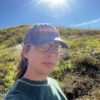
Paige A. Ford is the station archaeologist at the Arkansas Archeological Survey’s research station at Toltec Mounds Archeological State Park. She earned her Ph.D. in anthropology from the University of Oklahoma. Her research interests include relational archaeology, communities of practice, and ceramic and social network analysis. Through her work, she hopes to better understand the relationships people forged with one another in the past. Ford is also passionate about public education, outreach, and advocacy, focusing much of her energy on developing programs that teach the importance of archaeology, cultural heritage, and collaboration with descendant communities.
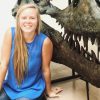
Paige Madison is a Ph.D. candidate at Arizona State University, where she studies the history of paleoanthropology. Her dissertation research examines the history of research on Neanderthals, Australopiths, and Homo floresiensis. Madison blogs and tweets about fossils and the history of science. Follow her on Twitter @FossilHistory.
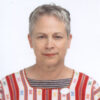
Pamela Effrein Sandstrom is an associate librarian emerita and a former head of reference and information services at Purdue University, Fort Wayne. She served as a reference book review editor for three years at the American Library Association’s Choice magazine. Sandstrom earned her M.L.S. and Ph.D. degrees in library and information science, and her research on information foraging and scholarly communication has appeared in Library Quarterly, Scientometrics, and Bulletin of the Association for Information Science and Technology.

Paola A. Magni is a senior lecturer in forensic science at Murdoch University. She has several years of experience as a researcher and lecturer/instructor. Magni has been invited as an expert forensic witness for investigations on cases of homicide, suspicious death, animal cruelty/wildlife, and food forensic and stored products security both for the public prosecutor and defense in the court of law. She is the author of numerous papers and chapters in forensic books, and the senior editor of a forensic entomology book.

Pardis Mahdavi is the chair of anthropology and a professor in the department, as well as the director of the Pacific Basin Institute at Pomona College. Her research interests include gendered labor, human trafficking, migration, sexuality, human rights, youth culture, transnational feminism, and public health in the context of changing global and political structures. Her first two books, Passionate Uprisings: Iran’s Sexual Revolution and Gridlock: Labor, Migration, and Human Trafficking in Dubai, were published by Stanford University Press. Her third book, From Trafficking to Terror: Constructing a Global Social Problem, was published by Routledge. Mahdavi’s most recent book is titled Crossing the Gulf: Love and Family in Migrant Lives. Follow her on Twitter @pardismahdavi.
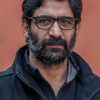
Parvaiz Bukhari was born and educated in Srinagar, Kashmir. Since 2004, he has been working as an independent journalist in the region. He has been reporting for over 18 years, both in print and for television, on Indian politics, foreign affairs, and conflict, including the post-9/11 U.S.-led international coalition military campaigns in Afghanistan and Iraq. He has contributed articles to Indian and international publications, including Jane’s Defence Weekly, The Nation, Asia Times, Time magazine, Al-Jazeera, Mail Today, Tehelka, and The Times of India. Bukhari is currently reporting on Indian-administered Kashmir for Agence France-Presse. Follow him on Twitter @parvaizbukhari.

Pasang Yangjee Sherpa is a Sharwa anthropologist from Pharak, southern part of Mt. Everest region in northeastern Nepal. Her research, writing and pedagogy focus on climate change and Indigeneity among Himalayan communities, guided by the question: How do we live in the midst of dying? She is an assistant professor of Lifeways in Indigenous Asia, jointly appointed in the Institute for Critical Indigenous Studies and the Department of Asian Studies at the University of British Columbia, Canada. She is a 2022 Wall Scholar at the Peter Wall Institute for Advanced Studies.
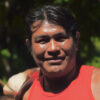
Pat-i Kayapó is a Kayapó filmmaker from the village of A’Ukre in the Kayapó Indigenous Lands of southern Pará state in the Brazilian Amazon. He began making films in 2012 and has continued his work by participating in workshops organized by the Goeldi Museum, Middle Tennessee State University, Purdue University, Video nas Aldeias (“Video in the Villages”), and other institutions. He has led his village’s media center and participated in the Béture filmmaking collective. Follow him on Instagram @patikayapo.

Patrick Beckhorn earned a Ph.D. from the department of anthropology at the University of Pittsburgh, where he is currently a research associate. His research focuses on labor, masculinity, and gender in contemporary North India.
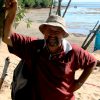
Patrick D. Nunn has authored several books, including the popular Vanished Islands and Hidden Continents of the Pacific and The Edge of Memory: Ancient Stories, Oral Tradition, and the Postglacial World. This year, he was awarded the Gold Medal of the Royal Geographical Society of Queensland, and in 2003, he received the Pacific Science Association’s Gregory Medal for “outstanding service to science in the Pacific.” He has been a member of the Intergovernmental Panel on Climate Change (IPCC) on several occasions, and he was a co-recipient of its 2007 Nobel Peace Prize. He was also one of the lead authors of the chapter “Sea Level Change” in the IPCC’s Climate Change 2013: The Physical Science Basis. Nunn is currently a professor of geography at the University of the Sunshine Coast in Australia.

Patrick Faulkner is a senior lecturer in the department of archaeology at The University of Sydney in Australia. His research interests include: coastal paleoeconomies, with a principal focus on the tropics; Australian archaeology, zooarchaeology, and taphonomy; and human ecology, economics, and human-environment interactions and technology. Currently, Faulkner is working on projects focusing on the archaeology and historical ecology of Eastern African coasts and islands, long-term human-environment interactions in Sri Lanka, and occupation and resource use of mollusks on Australian freshwater ecosystems. He receives research funding from the Australian Research Council.

Paul Chilsen is an award-winning filmmaker who has directed and written theatrical features, documentaries, and television shows. He is an associate professor of filmmaking at Middle Tennessee State University. He holds an MFA from Columbia College Chicago and studied film theory at the University of Wisconsin, Madison. Chilsen’s research focuses on applied cinematic expression, which has shaped his work in international collaborative filmmaking in the Amazon. Follow him on Instagram @paulchilsen.
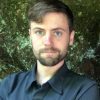
Paul Cox is an anthropologist and writer based in Copenhagen, Denmark. His work, which goes back and forth between disaster and agriculture, began with research on farming after war and environmental breakdown in the eastern Democratic Republic of the Congo. He has written for a range of publications, including Disasters, The New Inquiry, and The New Republic, and he co-wrote How the World Breaks: Life in Catastrophe’s Path, From the Caribbean to Siberia (with Stan Cox, his father). Follow him on Twitter @paul_cox.
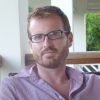
Paul Keil is an anthropologist whose primary focus is on human-nonhuman relations. His doctoral research in Assam, a state in northeast India, examined sites where the worlds and activities of people and elephants are interconnected. Prior to his work in Assam, Keil conducted an ethnographic analysis of distributed cognition in sheepdog teams and psychological research on collaborative remembering between long-term couples. He received his Ph.D. from Macquarie University in Australia, where he is an honorary postdoctoral associate in the department of anthropology. Keil is currently based in Thailand and continues to conduct research and write about interspecies encounters. Follow him on Twitter @pgkeil.

Paul Pettitt is a professor of archaeology at Durham University. He is a specialist in the European Middle and Upper Paleolithic, with research interests in the origins and nature of Paleolithic art and mortuary activity, chronometry, the behavior of the Neanderthals and Pleistocene members of our own species, and the British later Paleolithic. Pettitt’s doctoral research at Cambridge focused on lithic technology of Middle Paleolithic Southwest France and what it revealed about Neanderthal behavior.
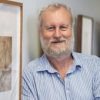
Paul S.C. Taçon, FAHA FSA, was an Australian Research Council Australian laureate fellow from 2016 to 2021 and is the chair in rock art research and a professor of anthropology and archaeology at Griffith University, Queensland, in Australia. He also directs Griffith University’s Place, Evolution, and Rock Art Heritage Unit and leads research themes in the Griffith Centre for Social and Cultural Research and Griffith’s Research Centre of Human Evolution. He co-edited The Archaeology of Rock-Art (with Christopher Chippindale) and has published over 280 academic and popular papers. Taçon has conducted archaeological and ethnographic fieldwork since 1980 and has extensive field experience in remote parts of Australia, Cambodia, Canada, China, India, Indonesia, Malaysia, Myanmar, southern Africa, Thailand, the Philippines, and the U.S.
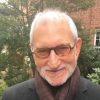
Paul Stoller has been conducting anthropological research for more than 30 years. He is a professor of anthropology at West Chester University in Pennsylvania. His early work concerned the religion of the Songhay people who live in the Republics of Niger and Mali in West Africa. Since 1992, Stoller has pursued studies of West African immigrants in New York City. Those studies have concerned such topics as spirit possession, an anthropology of the senses, and the politics of immigration. Stoller has published 15 books, including ethnographies, biographies, memoirs, and novels. He has won many awards for his work, including a Guggenheim Fellowship (1994), the Anders Retzius Gold Medal in Anthropology (2013), and the American Anthropological Association’s Anthropology in Media Award (2015) in recognition of his blogs for The Huffington Post. He currently writes a blog on culture and well-being for Psychology Today. His forthcoming book is Wisdom From the Edge of the Village: Writing Ethnography in Troubled Times (Cornell University Press).

Paula Skye Tallman is a biocultural anthropologist who studies the intersections of ecology, culture, and health, primarily in Indigenous Amazonian communities. She received her Ph.D. from Northwestern University and is currently a research associate at The Field Museum of Natural History in Chicago, Illinois. Her research has been supported by numerous grants and fellowships, and has resulted in many peer-reviewed publications. Tallman’s latest project, funded by the British Academy, is an interdisciplinary study of water insecurity and gender-based violence in Peru and Indonesia.

Pavlo Shydlovskyi is an associate professor in the department of archaeology and museum studies at Taras Shevchenko National University of Kyiv. Previous appointments include the Institute of Archaeology of the National Academy of Sciences of Ukraine; the Kyiv Regional Center for the Preservation of Monuments of History, Archaeology, and Art; and the Scientific Research Institute of Monument Protection Studies under the Ministry of Culture of Ukraine. He founded the Center for Paleoethnological Research and is the scientific editor of VITA ANTIQUA. Beginning in February 2022, Shydlovskyi participated in the Territorial Defense Force of the Kaniv District and became an employee of the Ukrainian State Institute of Cultural Heritage to implement the monitoring of archaeological sites during the war on Ukraine.

Peggy Levitt is the chair of the sociology department and the Luella LaMer Slaner professor in Latin American studies at Wellesley College. She also co-directs Harvard University’s Transnational Studies Initiative. In 2015, she published her most recent book titled Artifacts and Allegiances: How Museums Put the Nation and the World on Display.

Penny Spikins is a professor in the archaeology of human origins at the University of York in the U.K. Over the last 10 years, she has focused on cognitive and social evolution, publishing papers on the evolution of compassion (Time and Mind), dynamics of egalitarianism (Journal of World Prehistory, Open Quaternary), the origins of autism (Cambridge Archaeological Journal, Time and Mind, Open Archaeology), evolution of self-control and display in artifacts (World Archaeology), attachments to objects (Time and Mind), Neanderthal childhood (Oxford Archaeological Journal), and the origins of health care and medicine (World Archaeology, Quaternary Science Reviews). Her latest book Hidden Depths: The Origins of Human Connection builds on her previous volume How Compassion Made Us Human: The Evolutionary Origins of Tenderness, Trust, and Morality in arguing that a selection for pro-social emotional motivations has been the driving force behind human evolution.

Petar Parvanov is an archaeologist specializing in funerary practices. He received his Ph.D. from the Central European University, Vienna, and is currently an assistant professor in the National Archaeological Institute with Museum in Sofia, Bulgaria. Parvanov is involved in regular excavations in Pliska, the power center of early medieval Bulgaria, and studies the pre-Columbian collection in the Bulgarian National Gallery. Follow him on Facebook and Instagram @parvanov.p.

Peter Coutros is an anthropologist and archaeologist who studies the interaction between communities and their environments across West Africa, with a specific focus on Senegal, Mali, and Mauritania. He received his Ph.D. from Yale University, focusing his research on social responses to climate change in what is today known as Senegal during the first millennium B.C. He is currently a lecturer at Southern Connecticut State University. Coutros’ academic writings have appeared in Antiquity, African Archaeological Review, the Society of Africanist Archaeologists’ bulletin Nyame Akuma, and other publications. Follow him on Twitter @petecout.

Peter Little is an anthropologist who studies agrarian systems, pastoralism, and development in East Africa. He received his Ph.D. from Indiana University and is currently a professor of anthropology and the director of development studies at Emory University. He is the author of The Elusive Granary: Herder, Farmer, and State in Northern Kenya, Somalia: Economy Without State, and Economic and Political Reform in Africa: Anthropological Perspectives. Little is currently working on a project, funded by the John Templeton Foundation, that addresses the cultural dimensions of well-being and poverty in East Africa.
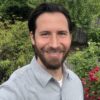
Peter Nelson (Coast Miwok and Tribal citizen of the Federated Indians of Graton Rancheria) is an assistant professor of environmental science, policy, and management and ethnic studies at the University of California, Berkeley, where he received his Ph.D. in anthropology. Nelson works at the intersection of anthropological archaeology, Indigenous environmental studies, and Native American studies in collaboration with Tribal Nations and Indigenous peoples in California and abroad. His research addresses cultural heritage preservation, settler colonialism, climate change, and Indigenous stewardship and land management. Nelson also volunteers on prescribed burning projects and wildland firefighting efforts in the North Bay Area, where he lives.
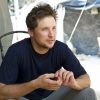
Peter Richards is an economist with the U.S. Agency for International Development (USAID). Prior to joining the USAID, he worked at Brown University in the Institute at Brown for Environment and Society. He has studied land use and economic changes in Brazil for more than a decade, and has authored nearly two dozen journal articles on agricultural expansion, demographic change, and economic growth in Brazil’s Amazon region. He holds a master’s and a Ph.D. from Michigan State University.
Disclaimer: The views and opinions expressed in this story are those of the author(s) and not necessarily the views and opinions of the USAID.

Peter Sutoris is an environmental anthropologist who researches how diverse societies imagine the future differently. He received his Ph.D. from University of Cambridge and is currently an assistant professor at the University of York. Sutoris is the author of Visions of Development and Educating for the Anthropocene. His current research focuses on cultures of degrowth and activist pedagogies. Follow him on Twitter @PSutoris.

Peter Ungar is a distinguished professor of anthropology and the director of environmental dynamics at the University of Arkansas. His research focuses on fossil teeth, primate feeding ecology, and the evolution of the human diet. His latest book is Evolution’s Bite: A Story of Teeth, Diet, and Human Origins.

Peter Wade is a social anthropologist who studies race and ethnicity in Latin America. He received his Ph.D. from the University of Cambridge and is currently a professor at the University of Manchester in the U.K. His publications include Blackness and Race Mixture; Race and Ethnicity in Latin America; Race, Nature, and Culture: An Anthropological Perspective; Race and Sex in Latin America; Mestizo Genomics: Race Mixture, Nation, and Science in Latin America; and Race: An Introduction. His most recent book is Degrees of Mixture, Degrees of Freedom: Genomics, Multiculturalism, and Race in Latin America. Wade is currently running, with Mónica Moreno Figueroa, the project “Latin American Anti-racism in a ‘Post-Racial’ Age.”
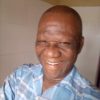
Peter-Jazzy Ezeh is a professor of anthropology and the head of the sociology and anthropology department at the University of Nigeria, Nsukka. He has published widely and has a passion for qualitative fieldwork. With archaeologist Pat Uche Okpoko, he published the book Methods in Qualitative Research (University of Nigeria Press), which is now in its third edition. Follow him on Twitter @phyphenj.

Philip W. Scher is a professor of anthropology and folklore at the University of Oregon.
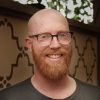
Piers Kelly is a linguistic anthropologist and an adjunct senior lecturer at the University of New England. His research centers on the uses of writing and graphic codes in nonstate societies, especially in West Africa, Southeast Asia, and Australia. His first book is The Last Language on Earth. Follow him on Twitter @perezkelly.
PositiveNegatives produces comics, animations, and podcasts about contemporary social and humanitarian issues, including conflict, racism, migration, and asylum. PositiveNegatives combines ethnographic research with illustrations, adapting personal stories into art, education, and advocacy materials. They have worked extensively with a range of organizations, such as The Guardian, the Open Society Foundations, the BBC, the Nobel Peace Center, the Overseas Development Institute, and the United Nations, and with leading academic institutions, such as the Harvard South Asia Center, SOAS University of London, the University of Sussex, and the Peace Research Institute of Oslo.

Priti Salian is a freelance journalist from Bangalore, India. She has reported from India, Germany, and Uganda on human rights, social justice, development, and culture, with a focus on disability and gender. Her work has appeared in The Guardian, National Geographic, the BBC, NBC News, PRX, Christian Science Monitor, Bloomberg CityLab, NPR, and Al Jazeera, among others. Follow her on Twitter @priti_salian.

Priya Moorjani has an undergraduate degree in computer engineering from the University of Mumbai and an M.S. in bioinformatics from George Washington University. In 2013, she received her Ph.D. in genetics from Harvard University. During her dissertation, she developed novel methods and approaches for analyzing genomic data to learn about population history, particularly focusing on populations of mixed ancestry such as West Eurasians and South Asians. For her postdoc, Moorjani has been investigating mutation and recombination processes in primates, and their use as molecular clocks.
The authors of this piece are a group of critically engaged scholars who came together in April 2022 as part of the Questions Worth Asking Symposium hosted by the Archaeology Centre at the University of Toronto and the Fiske Center for Archaeological Research at the University of Massachusetts, Boston. The webinar was inspired by the growing public discourse around social justice and historical reckoning in the United States and Canada. The following individuals were part of the symposium: Lindsay M. Montgomery (University of Toronto), Anna S. Agbe-Davies (University of North Carolina, Chapel Hill), Craig Cipolla (Tufts University), Stephen Mrozowski (University of Massachusetts, Boston), Nate Acebo (University of Connecticut), Stacey Camp (Michigan State University), Wade Campbell (Boston University), Edward Gonzalez Tennant (University of Texas, Rio Grande Valley), Alexandra Jones (Archaeology in the Community), Carol McDavid (Community Archaeology Research Institute), Alicia Odewale (University of Tulsa), Emily Van Alst (University of Indiana), and William A. White (University of California, Berkeley).
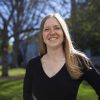
Rachel Kolb is a scholar of English literature and a junior fellow in the Society of Fellows at Harvard University in Cambridge, Massachusetts. She is at work on a book manuscript about sound and speech during the 19th through mid-20th centuries in the U.S. as informed by the cultural presence of deafness and disability. Kolb’s public scholarship has appeared in The New York Times, The Atlantic, and TEDx Stanford.
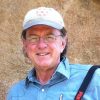
Randall H. McGuire is a distinguished professor of anthropology at Binghamton University in Binghamton, New York. He received his Ph.D. from the University of Arizona. He has worked for 31 years investigating the Trincheras tradition of northern Sonora, Mexico. His books include Archaeology as Political Action, The Archaeology of Class War (co-edited with Karin Larkin), and Ideologies in Archaeology (co-edited with Reinhard Bernbeck). His article “Steel Walls and Picket Fences: Rematerializing the U.S.-Mexican Border in Ambos Nogales” was published in American Anthropologist.

Rashmi Sadana is a cultural anthropologist who studies changing forms of identity in urban India. She received her Ph.D. from the University of California, Berkeley, and is currently an associate professor at George Mason University. She is the author of The Moving City: Scenes From the Delhi Metro and the Social Life of Infrastructure and English Heart, Hindi Heartland: The Political Life of Literature in India. Her Delhi Metro research has been funded by the Weatherhead Foundation, National Endowment for the Humanities, American Council of Learned Societies, American Institute of Indian Studies, and School for Advanced Research in Santa Fe.

Rathnasiri Premathilake is a senior lecturer in environmental archaeology at the University of Kelaniya in Sri Lanka.

Rebecca Redfern is an honorary research associate at Durham University in the U.K. and a curator of human osteology at the Museum of London’s Centre for Human Bioarchaeology.
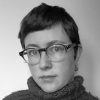
Rebecca Wragg Sykes is an honorary fellow at the University of Liverpool and the author of Kindred: Neanderthal Life, Love, Death, and Art. She is a member of Team TrowelBlazers, a collective that runs the grassroots and largely community-sourced TrowelBlazer project, which seeks to reset imaginations by presenting the stories of women in the “digging” sciences.

Renaud Joannes-Boyau is an associate professor at Southern Cross University in Australia. He is a geochronologist and a geochemist, and heads the Geoarchaeology and Archaeometry Research Group at Southern Cross University. His research focuses on the development and application of direct dating methods and micro-analytical techniques to key questions in the archaeological sciences, such as the timing of human evolution, hominid ecological niche, diet, and early life history. Joannes-Boyau has dated key fossils, including early Homo sapiens from Jebel Irhoud, and created geochemical imaging of Neanderthals breastfeeding and other early life reconstructions of hominins.
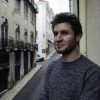
Reuben Ross is a filmmaker, photographer, and visual anthropologist. He holds a B.A. in film studies and an M.A. in visual anthropology, both from the University of Kent. Ross’ research, generally within the field of visual culture, focuses on identity, belonging, and migration in contemporary Europe, with an emphasis on nationalist politics. Currently, he incorporates visual research methods, activist approaches, and a strong commitment to social justice in his publications as an independent scholar.

Richard Handler is a professor of anthropology and the director of the global studies program at the University of Virginia. He has conducted fieldwork in Quebec and Virginia, resulting in two books, Nationalism and the Politics of Culture in Quebec and The New History in an Old Museum: Creating the Past at Colonial Williamsburg (co-authored with Eric Gable). He is currently writing a book on the national iconography of U.S. postage stamps and working on articles about revitalizing the American undergraduate curriculum in the 21st century.
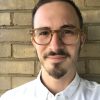
Richard Kemeny is a British freelance science journalist based in São Paulo, Brazil. His work has been featured in The Economist, National Geographic, New Scientist, and Hakai Magazine, among other publications. Follow him on Twitter @rakemeny.

Richard Meyers is an Oglala Sioux (Lakota) tribal member living among his tiyóšpaye (extended family) in Wanblee, South Dakota. He is the past president of the Association of Indigenous Anthropologists and a former writer and editor in Indian Affairs at the U.S. Department of the Interior in Washington, D.C. His research and scholarship are interdisciplinary by nature and fit well with applied anthropology and American Indian studies. Meyers’ focus has been on identity articulations through the lens of sociolinguistics; however, his work has spanned a broad gamut of topics that fall under the rubrics of Native North America, Indigenous, American Indian, Native, and ethnic. From issues involving education to sacred sites, his interests and experience are broad.

Richard “Bert” Roberts is the director of the Australian Research Council Centre of Excellence for Australian Biodiversity and Heritage at the University of Wollongong, where he is also a distinguished professor. He is interested in past interactions between hunter-gatherers and their environments in Africa, Asia, and Australia. Much of his career has been spent investigating turning points in human evolution and dispersal, including the timing, causes, and ecological consequences of archaic and modern human migrations. Given his multidisciplinary research interests, Roberts publishes across the fields of geochronology, archaeological science, human evolution, and terrestrial ecosystems.

Richard Vokes is an associate professor of anthropology at the University of Western Australia. His research focuses primarily on Uganda, where he has been conducting ethnographic fieldwork since 2000. He has published extensively on new religious movements, including a study of the Movement for the Restoration of the Ten Commandments of God, a charismatic Christian cult that committed mass suicide in March 2000. Vokes’ book about that research is Ghosts of Kanungu: Fertility, Secrecy, and Exchange in the Great Lakes of East Africa. He has also published extensively on African development, the HIV/AIDS epidemic, and the history of photography, media, and social change. His latest books include Media and Development, Shifting States: New Perspectives on Security, Infrastructure, and Political Affect (edited with Alison Dundon), and The Unseen Archive of Idi Amin: Photographs from the Uganda Broadcasting Corporation (with Derek R. Peterson).

Richard Wilshusen has 40 years of experience as a field archaeologist, an instructor, a curator, a contractor, and an administrator. He received his Ph.D. from the University of Colorado in 1991. He has worked with universities, cultural resource management firms, state and federal governments, and tribes. Wilshusen’s research publications have focused on public archaeology, early Pueblo village formation, Southwestern migration pathways, early great house communities, and Navajo ethnogenesis. He was originally trained as a cultural anthropologist, and he drew on that training when he worked on federal and state repatriation and reburial issues. That work made him aware of the concepts of disenfranchised grief and moral injury.

Rick Schulting is a professor of scientific and prehistoric archaeology at the University of Oxford. He has had a long-standing interest in the Mesolithic and Neolithic of Western Europe. His research focuses on improving understandings of chronology through the use of AMS 14C dating and of paleodiet through the use of stable carbon and nitrogen isotope analysis. Another research strand involves a reassessment of extant Neolithic skeletal collections from various regions of Western Europe from the point of view of evidence for interpersonal violence. Schulting has also extended his interests to Eurasian steppe pastoralists and to hunter-gatherers of Siberia and Northern Japan, as a member of the Baikal-Hokkaido Archaeological Project.
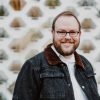
Rick W.A. Smith is an assistant professor in the department of sociology and anthropology at George Mason University and a research affiliate with the Indigenous Science, Technology, and Society Lab in the Faculty of Native Studies at the University of Alberta. Smith’s research focuses on the impacts of imperialism on our bodies, the knowledge we make about them, and the landscapes in which we live. Smith has published numerous articles, including the recent pieces “Imperial Terroir: Toward a Queer Molecular Ecology of Colonial Masculinities” and “Fifty Years in the Fight for Indigenous Sovereignty: From Alcatraz Island to Elizabeth Warren (1969–2019).” Follow Smith on Twitter @rickwasmith.

Robert A. Hahn is an anthropologist and epidemiologist who worked for the U.S. Centers for Disease Control and Prevention from 1986 until June 2020. He received a B.A. in anthropology at Cornell University, a Ph.D. in anthropology at Harvard University, and a master of public health at the University of Washington. For the last 20 years, Hahn was a coordinating scientist for the Guide to Community Preventive Services in which he led systematic reviews on interventions to prevent juvenile violence, to prevent excessive alcohol consumption, and to promote health equity. From 1998–1999, he worked as a Capitol Hill fellow in the House of Representatives Committee on Veterans’ Affairs and in the office of Congresswoman Louise Slaughter. Hahn is the author of Sickness and Healing: An Anthropological Perspective and over 250 journal articles. He is also a co-editor of Anthropology and Public Health: Bridging Differences in Culture and Society (with Marcia Inborn).
Robert D. Martin is an emeritus curator of biological anthropology at the Field Museum in Chicago, a member of the Committee on Evolutionary Biology at the University of Chicago, and an academic guest of the Institute of Evolutionary Medicine at the University of Zürich. His latest book is How We Do It: The Evolution and Future of Human Reproduction.
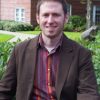
Robert Gardner is an associate professor of sociology at Linfield College in McMinnville, Oregon. In 2004, he received his Ph.D. from the University of Colorado, Boulder. An avid acoustic guitar “flatpicker,” his dissertation research documented the “portable” forms of community that flourish in bluegrass festival settings throughout the American west. He has most recently turned his attention to the processes through which spontaneous grassroots volunteer organizations arise and take shape in post-disaster environments. Gardner currently teaches courses in the sociology of community, environmental sociology, and music subcultures. Follow him on Twitter @howdyhoss.
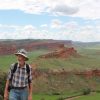
Robert L. Kelly is an archaeologist who studies prehistoric hunter-gatherer societies of western North America. He previously served as president of the Society for American Archaeology and is now the editor of the society’s flagship journal, American Antiquity. He is currently working on an excavation of a rockshelter and a mammoth kill site in Wyoming, a survey of receding ice patches in the Rocky Mountains, and a database of radiocarbon dates for North America. Kelly received his Ph.D. from the University of Michigan and is a professor of anthropology at the University of Wyoming. He is the author of The Lifeways of Hunter-Gatherers and The Fifth Beginning, and a co-author of Archaeology and Archaeology: Down to Earth.

Robert Lemelson is a cultural anthropologist, ethnographic filmmaker, and philanthropist. He received his Ph.D. from the University of California, Los Angeles, where he is an adjunct professor of anthropology. He has conducted visual psychological anthropology research in Indonesia for over 25 years. As the founder of Elemental Productions, the 2020 recipient of a New Directions Award from the General Anthropology Division of the American Anthropological Association, he has directed and produced over 15 ethnographic films. Lemelson is also the recipient of a 2017 Creative Scholarship Award from the Society for the Study of Psychiatry and Culture for his significant creative contribution to the field. He is a co-author of Afflictions: Steps Toward a Visual Psychological Anthropology (with Annie Tucker) and Widening the Frame With Visual Psychological Anthropology: Perspectives on Trauma, Gendered Violence, and Stigma in Indonesia (with Annie Tucker).
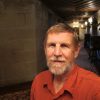
Robert Myers, a cultural anthropologist, earned his Ph.D. from the University of North Carolina, Chapel Hill, and is a professor of anthropology at Alfred University. He has done fieldwork in the Caribbean and in Nigeria while on a Fulbright fellowship. His major interest is in how culture is expressed through language in the U.S. In 2016, Myers’ essay “Trigger Happy With Gunspeak,” on the semantics of American gun obsession, appeared in Anthropology News. Follow him on Twitter @anthrofun.
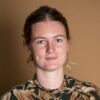
Roberta Davidson is a Ph.D. candidate in genetic anthropology at the University of Adelaide who specializes in human migration and bioinformatics. Her interests are human history and expanding methods to understand migration history and human mobility through time and space. She received a bachelor’s degree in applied biology (genetics) from the University of Adelaide in 2019 and has started a Ph.D. in human paleogenomics, where she uses ancient DNA to study the population genomics of precolonial South America. She is also a team member at the University of Adelaide’s Australian Centre for Ancient DNA.

Roberta Kwok is a freelance science writer based near Seattle, Washington. She has contributed to publications such as Nature, The New Yorker, New Scientist, Aeon, and U.S. News & World Report. Follow her on Twitter @robertakwok.

Roberto E. Barrios is a sociocultural anthropologist who studies post-disaster reconstruction in Central and North America. He received his Ph.D. from the University of Florida and is currently associate professor at Southern Illinois University, Carbondale. He is the author of Governing Affect: Neoliberalism and Disaster Reconstruction. Presently, he is working on a project on the material, discursive, and political life of climate change in Mexico.

Roberto J. González is the chair of the anthropology department at San José State University. He has authored several articles and books, including Zapotec Science: Farming and Food in the Northern Sierra of Oaxaca, American Counterinsurgency: Human Science and the Human Terrain, Militarizing Culture: Essays on the Warfare State, Connected: How a Mexican Village Built Its Own Cell Phone Network, and most recently, War Virtually: The Quest to Automate Conflict, Militarize Data, and Predict the Future. Follow him on Twitter @gonzalez_r_j.
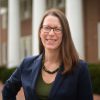
Robyn Cutright is an archaeologist who studies ancient households and food on the North Coast of Peru. She earned her Ph.D. from the University of Pittsburgh and works as the Marlene and David Grissom associate professor of anthropology and Latin American studies at Centre College in Kentucky. Cutright is the author of The Story of Food in the Human Past: How What We Ate Made Us Who We Are and a co-editor of Ancient Households on the North Coast of Peru (with Ilana Johnson and David Pacifico).

Roger Ivar Lohmann is an associate professor of anthropology at Trent University in Ontario, Canada. He received his Ph.D. from the University of Wisconsin, Madison. His research, including fieldwork in New Guinea, emphasizes how mixed imaginary and sensory experiences convince people to establish new cultural directions. Lohmann has been the editor-in-chief of Reviews in Anthropology, chair of the Association for Social Anthropology in Oceania, and president of the Green Party of Ontario. He edited Dream Travelers: Sleep Experiences and Culture in the Western Pacific. Watch an interview with Professor Lohmann on his dream research. Follow him on Twitter @RogerLohmann.
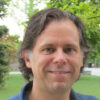
Rolf Quam is an associate professor of anthropology at Binghamton University, State University of New York. His paleoanthropological research focuses on evolutionary aspects of the temporal bone, mandible, and teeth in our fossil human ancestors. In particular, he has been involved in reconstructing the hearing capacities of fossil humans as a new approach to studying the emergence of language. Quam also participates in the ongoing fieldwork at the Pleistocene site of Atapuerca in northern Spain and has studied a variety of original human fossils from Europe, the Middle East, and Africa.

Ronald Niezen is the Katharine A. Pearson Chair in Civil Society and Public Policy in the faculty of law, and a professor of anthropology at McGill University in Canada. He has a Ph.D. from the University of Cambridge and has done research on Islamic reform in West Africa, justice campaigns in Aboriginal communities in northern Canada, and the human rights activism of Indigenous peoples in the United Nations. Niezen’s books include The Origins of Indigenism: Human Rights and the Politics of Identity, Truth and Indignation: Canada’s Truth and Reconciliation Commission on Indian Residential Schools, and Palaces of Hope: The Anthropology of Global Organizations (co-edited with Maria Sapignoli).

Rosalynn A. Vega is an assistant professor of medical anthropology at the University of Texas Rio Grande Valley. Her book No Alternative: Childbirth, Citizenship, and Indigenous Culture in Mexico was published by the University of Texas Press. Her scholarship has been recognized by the Ford Foundation, the Society for Medical Anthropology, the Social Science Research Council, and the National Science Foundation, among other organizations. Vega’s research has been funded by a University of California Institute for Mexico and the United States research grant, a Tinker Foundation grant, the Roselyn Lindheim award, the University of California Global Health Institute, a Human Rights Center fellowship, a Jacob K. Javits fellowship, and a National Science Foundation ADVANCE award.

Rosemary Joyce, professor of anthropology at the University of California, Berkeley, received her Ph.D. from the University of Illinois, Urbana, in 1985. A curator and faculty member at Harvard University from 1985 to 1994, she moved to Berkeley in 1994 and served as director of the Hearst Museum of Anthropology until 1999. Joyce began participating in archaeological fieldwork in Honduras as an undergraduate in 1977 and has co-directed projects on early village life, the classic period, and the colonial and republican periods. While collaborating on research in the western Maya area with Mexican colleagues, she also continues research on Honduran collections in museums.

Rossella Paba is an anthropologist and storyteller. Since October 2019, she has been in a Ph.D. program in a co-tutelle agreement between University of Cagliari and James Cook University. She is conducting the first comprehensive evaluation of two groups of people living during two key periods in Sardinia, Italy—life in the middle Neolithic investigated via the skeletal remains of Su Forru de is Sinzurreddus in Pau, and the Monte Luna Necropolis in Senorbì provides information on the Punic era.

Rui Diogo is an associate professor at Howard University. He is renowned for his multidisciplinary approach to addressing broad societal issues using state-of-the-art empirical data. A wonderer and a wanderer, he has done research and given lectures and speeches in many different countries and formats, such as TEDx talks. Diogo is the author of more than 150 journal articles and more than 20 books, including Understanding Human Anatomy and Pathology, Evolution Driven by Organismal Behavior, and Meaning of Life, Human Nature, and Delusions.

Ruth Behar is the Victor Haim Perera Collegiate Professor of Anthropology at the University of Michigan, Ann Arbor. She is the recipient of a MacArthur “Genius” Grant and a Guggenheim Fellowship, and was recently recognized as a “Great Immigrant” by the Carnegie Corporation. Her books include Translated Woman: Crossing the Border With Esperanza’s Story, The Vulnerable Observer: Anthropology That Breaks Your Heart, An Island Called Home: Returning to Jewish Cuba, and Traveling Heavy: A Memoir In Between Journeys. She is the editor of Bridges to Cuba and a co-editor of The Portable Island: Cubans at Home in the World (with Lucía M. Suárez). Her co-edited book Women Writing Culture (with Deborah A. Gordon) has become a canonical work in the history of anthropology. Also a creative writer, Behar is the author of a coming-of-age novel, Lucky Broken Girl, which won the 2018 Pura Belpré Author Award for Latina/Latino literature, and Everything I Kept/Todo lo que guardé, a bilingual collection of poetry. Follow her on Twitter @ruthbehar, on Instagram @ruthbeharauthor, and on Facebook.
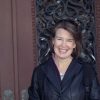
Ruth M. Van Dyke is a professor of anthropology at Binghamton University. Her current archaeological research is focused in two areas: the 10th-century rise of the Chaco Canyon polity in the ancient Southwest and the historic immigration of Europeans to 19th-century Texas. She is the director of archaeological field research at the Castro Colonies Living History Center. Van Dyke is the author of The Chaco Experience: Landscape and Ideology at the Center Place, as well as books and articles on such topics as politically engaged archaeology, landscapes, inequalities, social memory, materiality, visual representation, and phenomenology. Follow her on Twitter @desertgrrl64.
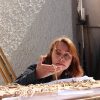
Sabine Hyland is a cultural anthropologist and ethnohistorian who studies Native Andean texts, both alphabetic and fiber ones. She received her Ph.D. from Yale University and is currently a reader in anthropology at the University of St Andrews in Scotland. She is the author of numerous books, including The Jesuit and the Incas: The Extraordinary Life of Padre Blas Valera, S.J., The Quito Manuscript: An Inca History Preserved by Fernando de Montesinos, and The Chankas and the Priest: A Tale of Murder and Exile in Highland Peru. She is currently working on a project, “Hidden Texts of the Andes: Deciphering the Khipus (Cord Writing) of Peru,” funded by the Leverhulme Trust. Follow her on Twitter @Coyagirl.

Sabrina Jones is a writer and filmmaker from London. She works at the documentary production company Alamo Pictures and pre-selects documentary shorts for SXSW. Jones also writes for publications such as Trippin’, Wonderland, and Girls on Tops. She has an M.A. in visual anthropology from Goldsmiths, University of London.

Saish Solankar is an ethnographer, photojournalist, and filmmaker who studies and covers stories of entanglements between humans and nonhuman animals. He is currently an undergraduate student of anthropology at Purdue University and is working on ethnographic projects on frog hunting in southern Indiana in the U.S. and in Nagaland in northeastern India. Follow him on Instagram @s.ai.sh.
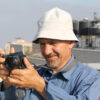
Salah Al-Houdalieh teaches at the Institute for Archaeology at Al-Quds University in Jerusalem and is the secretary general of the International Council on Museums and Sites–Palestine and of the Society for Palestinian Archaeology. He holds a Ph.D. in archaeology from the Institute of Pre- and Early History at the University of Heidelberg in Germany. Al-Houdalieh’s present focus encompasses archaeology and anthropology in the Levant, cultural identity, antiquities looting and looters, mosaics, and Roman-Byzantine architecture. Previously, he investigated the impact of urban development and the plundering of antiquities sites on Palestine’s cultural heritage. Over the past 20 years, he has worked at sites such as Khirbet et-Tireh, Khirbet el-Lauz, and Khirbet Shuwayka. Al-Houdalieh is on the editorial boards of multiple journals and has authored numerous books, along with many field reports and scholarly articles.

Sally Christine Reynolds is a mammalian palaeontologist working on African Plio-Pleistocene fauna as a means to understand hominin paleoecology. She earned a Ph.D. from Liverpool John Moores University in England. Since 2014, Reynolds has been a senior lecturer in hominin paleoecology and the deputy head of the Institute for Studies of Landscape and Human Evolution at Bournemouth University. She is interested in how landscapes and the individual biology of species interact to create patterns of speciation, adaptation, range change, and, finally, extinction.

Sally K. May is an Australian Research Council future fellow and an associate professor at the University of Adelaide. She is an archaeologist and anthropologist whose research focuses on relationships between people, landscapes, material culture, and imagery, with inspiration drawn primarily from fieldwork in northern Australia. May’s books include Karrikadjurren: Aboriginal Art, Community, and Identity in Western Arnhem Land (in press 2022), Collecting Cultures: Myth, Politics, and Collaboration in the 1948 Arnhem Land Expedition, and The Bible in Buffalo Country: Oenpelli Mission 1925–1931.
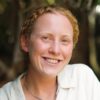
Sally Montgomery is a Ph.D. candidate in social anthropology at the University of Cambridge. Originally from Australia, Montgomery focuses on environmental anthropology. Her fieldwork research was conducted on Lord Howe Island, a small island off Australia. Montgomery’s research explores notions of human and nonhuman belonging on the island and the historical, ecological, and political processes that inform these conceptions.

Salvador Zárate is a cultural anthropologist who studies Latinx migrant labor and ecology in Southern California. He received his Ph.D. in ethnic studies from the University of California, San Diego, and is currently an assistant professor at the University of California, Irvine. Zárate’s current research on Orange County weed abatement is funded by the Haynes Foundation and the American Council of Learned Societies, and seeks to incorporate Latinx weed abatement workers as experts in the battle against wildfire risk. Follow him on Twitter @sezarate25.
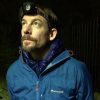
Sam Challis is the director and a senior archaeologist at the Rock Art Research Institute at the University of the Witwatersrand in South Africa. His research focuses on interactions between hunter-gatherers, pastoralists, and farmers, as well as Europeans, as expressed in rock art around the world. Challis’ doctoral research focused on the acquisition of horses by creolized raider groups in the 19th century. His research program in the mountains of Matatiele in the Eastern Cape aims to redress the imbalance of this neglected former-apartheid region while training local community field technicians.

Sami Hermez is the director of the Liberal Arts Program and an associate professor of anthropology at Northwestern University in Qatar. He obtained his doctorate degree from the department of anthropology at Princeton University. He is the author of War Is Coming: Between Past and Future Violence in Lebanon, which focuses on the everyday life of political violence in Lebanon and how people recollect and anticipate this violence, and My Brother, My Land: A Story From Palestine, which tells the story of a Palestinian family resisting ongoing Israeli settler colonialism. His broader research concerns the study of social movements, the state, the future, memory, violence, and critical security in the Arab world.

Samuel Gerald Collins is a professor of anthropology at Towson University. His research includes urban studies, social media, design anthropology, and information technologies in South Korea and in the United States. Among other books and articles, he is the author of All Tomorrow’s Cultures: Anthropological Engagements With the Future.

Sandhya Fuchs explores legal approaches to structural violence and examines the relationship between state law, local approaches to dispute resolution, and culturally embedded ideas of justice and order. Her Ph.D. research zooms in on the way Dalit (formerly “untouchable”) communities in the Indian state of Rajasthan mobilize the 1989 Scheduled Castes/Scheduled Tribes (Prevention of Atrocities) Act to navigate continuing concerns of social, political, and economic disadvantage and, at times, outright violent discrimination. Fuchs puts discussions about the personal and social effects of traumatic violence in conversation with debates about legal evidence, with considerations of law as an institutionalized horizon of possibility and hope. Her work contributes to wider discussions about the role of law in attempts to address socioeconomic inequality.

Sanjna Girish Yechareddy is a poet, anthropologist, and archivist from Bangalore, India. She is a master’s candidate in anthropology and sociology at the Graduate Institute of Geneva. Her research revolves around questions of memory and institutions of memory and violence, and draws from work with archives. Previously, her work explored the aftermath of the Lessons Learnt and Reconciliation Commission in Sri Lanka. Her current project revolves around an ethnographic exploration of the archives of humanitarian organizations in Geneva.

SAPIENS is an editorially independent magazine of the Wenner-Gren Foundation for Anthropological Research.

Sara Ceraldi is an anthropologist and writer based in Stuttgart, Germany. She received her M.Sc. in psychological anthropology from Brunel University London, where her dissertation research explored the social psychology of the CrossFit community. Ceraldi’s research interests include emotion and how culture shapes the way we feel about the world around us.

Sara Fabbri is a comic artist, illustrator, and editorial designer. She is the art director of Linus, a leading Italian comics magazine.
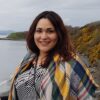
Sara Gonzalez is an associate professor of anthropology and a curator of archaeology at the Burke Museum of Natural History and Culture at the University of Washington. An anthropological archaeologist by training, she works at the intersection of Indigenous studies, Tribal historic preservation, and public history. Her research contributes to the growing field of Indigenous and community-based archaeologies, which features direct engagement with Indigenous peoples and is committed to the ethical integration of Indigenous knowledge and methods into archaeological practice and heritage management.

Sara Toth Stub is a writer living in Jerusalem and writing mainly about religion, travel, and archaeology. She has contributed to The New York Times, The Washington Post, US News & World Report, Archaeology magazine, National Public Radio, and other media outlets. From 2006 to 2015, she wrote about Israel’s economy for Dow Jones Newswires and The Wall Street Journal.
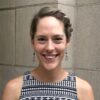
Sarah A. Kennedy is an archaeologist who studies forced labor in colonial Peru (1532–1800). She received her Ph.D. from the University of Pittsburgh and is the Robert A. Oden Jr. Postdoctoral Fellow for Innovation in the Humanities and Archaeology at Carleton College. Her research, funded by the Archaeological Institute of America, evaluates the ongoing environmental impact of abandoned silver mines and refineries on local descendant communities in Puno, Peru. Follow her on Twitter @SarahDigsDeep.

Sarah A. Lacy is an assistant professor of anthropology at the University of Delaware who specializes in paleoanthropology and bioarchaeology. She received her Ph.D. in anthropology from Washington University, St. Louis, in 2014. Lacy explores dental cavities, periodontal disease, and tooth loss in Neanderthals and early modern humans across Europe and Southwest Asia. More than just oral health, she looks at how oral diseases reveal information about diet, environment, disease susceptibility, and overall health in individuals and populations. She studies the reliability of bony indicators of respiratory health, their presence in ancient populations, and how they might correlate with oral health. Lacy also publishes on issues of sex and gender in the Paleolithic and in the field of anthropology. She was interim director of the Office of Undergraduate Research at California State University, Dominguez Hills, before joining the University of Delaware. Follow her on X, formerly Twitter, @professorlacy.

Sarah Bennison is an interdisciplinary researcher who studies water customs in the Peruvian Andes. She received her Ph.D. from Newcastle University in the U.K. and is a research fellow at the University of St Andrews. Bennison is the author of the forthcoming book The Entablo Manuscript: Water Rituals and Khipu Boards of San Pedro de Casta, Peru. Follow her on Twitter @Punsetcetera.

Sarah Green is a professor of social and cultural anthropology at the University of Helsinki. She received her Ph.D. from the University of Cambridge, and she spent 17 years teaching and researching at the University of Manchester. She specializes in the anthropology of location (the significance and value of being somewhere in particular), which in her research involves border relations, the EU, the Balkans, and the Aegean region. Green is the author of many publications, including Notes From the Balkans. She also co-authored the book titled Borderwork. She is about to begin a new European Research Council Advanced Grant research project called “Crosslocations in the Mediterranean: Rethinking the Sociocultural Dynamics of Relative Positioning.” Follow her on Twitter @franverdi.

Sarah Ives teaches anthropology at the City College of San Francisco. As a Fulbright and Mellon scholar, she earned a Ph.D. from Stanford University’s anthropology department. Her areas of focus include environmental studies, gender studies, comparative studies in race and ethnicity, and Southern Africa. She is the author of Steeped in Heritage: The Racial Politics of South African Rooibos Tea. In addition to scholarly work published in peer-reviewed journals and books, Ives has written for National Geographic News, National Geographic Kids News, and Sierra Magazine. Her correspondence has appeared in Nature.

Sarah Ivory is an assistant professor of geosciences at Pennsylvania State University. She is an ecologist and geologist who uses fossil pollen records to better understand past ecosystem change in order to inform future conservation strategies. Ivory also works with models and remote sensing data to observe the processes that drive tropical ecological change and vegetation responses to climate in the past. This work focuses on vegetation and climate history from the recent past to millions of years ago in order to evaluate future range changes and land-use impacts in hotspots of global biodiversity.

Sarah Klassen received her Ph.D. in anthropology (archaeology) from Arizona State University in 2018. She is currently a postdoctoral researcher for archaeological sciences at Leiden University in the Netherlands. Her current research project builds on new evidence suggesting that Angkor was the central node in a complex urban network spreading across mainland Southeast Asia. Klassen directs the Koh Ker Archaeological Project and co-directs the Cambodian Archaeological Lidar Initiative. These projects are funded by the Social Sciences and Humanities Research Council of Canada and the European Research Council. Follow her on Instagram @dr.sarahklassen.

Sarah Osterhoudt is an environmental anthropologist who studies agriculture and trade in Madagascar. She received her Ph.D. from Yale University and is currently an associate professor at Indiana University, Bloomington. Osterhoudt is the author of Vanilla Landscapes: Meaning, Memory, and the Cultivation of Place in Madagascar and has published articles in American Ethnologist, the Journal of Peasant Studies, and Development and Change. She is currently working on a project, funded by the National Science Foundation, on the affective dimensions of violence and justice in Madagascar’s vanilla boom.

Sarah Shulist is a linguistic anthropologist who studies the social and political implications of language documentation and revitalization in Brazil and Canada. She received her Ph.D. from Western University in 2013 and is currently an assistant professor at MacEwan University in Edmonton, Alberta. Shulist has recently published work in Language & Communication, The Journal of Latin American and Caribbean Anthropology, and Collaborative Anthropologies. Follow her on Twitter @sarahshulist.

Sarah Trainer is a postdoctoral research fellow with Obesity Solutions, a joint initiative between the Mayo Clinic and Arizona State University. She received her Ph.D. in medical and biocultural anthropology from the University of Arizona. Her research interests focus topically on food and nutrition, obesity, body image, and stigma in contexts of rapidly increasing rates of obesity and associated chronic diseases, and geographically in the Middle East and the American Southwest.

Sarah Wild is a freelance science journalist based in South Africa. She studied physics, electronics, and English literature at Rhodes University, and she recently completed a master’s in science medicine, with a focus on bioethics. Wild has written about particle physics, cosmology, forensics, and archaeology, among other subjects.

Satsuki Takahashi is an environmental anthropologist who studies human-ocean relations in contemporary Japan. She received her Ph.D. from Rutgers University and is currently a professor of cultural anthropology at Hosei University in Tokyo. Before joining Hosei, she was an assistant professor of anthropology at George Mason University and also served as the Toyota visiting professor at the Center for Japanese Studies at the University of Michigan. She is a co-editor of To See Once More the Stars: Living in a Post-Fukushima World and the author of Fukushima Futures: Survival Stories in a Repeatedly Ruined Seascape.

Scott T. Erich is a doctoral candidate in anthropology at the Graduate Center of the City University of New York and a lecturer at Baruch College, where he teaches courses on anthropology and the environment. His dissertation, “Taming the Sea: Property, Rights, and the Extractive Seascape of Southeastern Arabia,” is supported by the Fulbright-Hays Program and the Wenner-Gren Foundation. Follow him on Twitter at @scottterich.
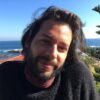
Sebastián Vacas-Oleas is a social anthropologist who works with the Shuar people of Western Amazonia. He received his Ph.D. from the University of Oxford and is currently a lecturer and visiting researcher at the Latin American Faculty of Social Sciences. He is editing a Shuar-authored book of collected life histories and leads a project with the Bomboiza Shuar Association Research Group, funded by the Wenner-Gren Foundation, to study Shuar ancestral locations, migratory movements, women’s gardening practices, and long-term changes in Indigenous relations with the land.
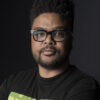
Sechaba Maape is a senior lecturer in the School of Architecture and Planning at the University of the Witwatersrand, South Africa, and a convener of the bachelor’s of architecture program at the school. He coordinates and teaches the award-winning first-year architecture design course, where students draw out alternative realities using tools from Indigenous knowledge systems from South Africa. He also teaches the history and theory of architecture, and supervises the master’s of architecture and master’s in urban studies in sustainable and energy efficient cities program, where he explores alternative paradigms toward sustainable cities. Maape works closely with professional archaeologists, paleontologists, and Indigenous knowledge practitioners as part of the knowledge fields by which he draws insights for design.

Shara Bailey is a biological anthropologist who uses teeth to answer questions about human evolution. While her primary focus has been on Neanderthals and modern human origins, she applies her methods to hominin dental remains of any age. Her recent work includes analysis of 2.8-million-year-old teeth from Nyayanga, East Africa, and the teeth of Homo naledi, Homo floresiensis, and Denisovans. Bailey received her Ph.D. from the Institute of Human Origins at Arizona State University. She is a professor in the department of anthropology and the director of the Center for the Study of Human Origins at New York University. Her research has been featured on National Public Radio, the History Channel, National Geographic, and PBS/Nova.

Sharon DeWitte is a biological anthropologist in the anthropology department at the University of South Carolina with expertise in paleodemography, paleoepidemiology, and bioarchaeology. Her primary research interest is infectious disease in the past, particularly how socioeconomic status and other factors affected risks of mortality from disease, how disease shaped population dynamics, and how host and environmental factors affect disease patterns. Using skeletal samples, DeWitte examines medieval mortality crises (famine and plague), including the mortality patterns, the demographic and health consequences, and the context of the emergence of the Black Death from 1347–1351.

Shelby Putt is a postdoctoral research fellow at the Stone Age Institute and the Center for Research Into the Anthropological Foundations of Technology at Indiana University. Her research utilizes functional neuroimaging technology, the fossil and archaeological record, and experimental methods to investigate the evolution of primate and hominin brains and behaviors, including cognition, language, tool use and manufacture, social transmission, and learning.

Shelly Volsche is a doctoral student in anthropology at the University of Nevada, Las Vegas, with an interest in cross-cultural variations in intimacy, romantic relationships, and social bonding; human-animal interactions (including the presence of pets as family members); the practice of identity in subcultural groups; and anthropological theory. She is currently studying family variation, including the phenomenon of pet parenting and the voluntarily childless.

Shir Lerman Ginzburg is a postdoctoral research fellow in the public health sciences department at the University of Connecticut Health Center. Her research interests currently focus on environmental health and justice among underserved communities. She is trained as a medical anthropologist and public health professional, and has conducted research in syndemics, chronic illness, mental health, obesity, food insecurity, diabetes, mindfulness, the Zika virus, and Puerto Rico. Ginzburg received her Ph.D. in medical anthropology from the University of Connecticut, where she identified a new syndemic in Puerto Rico: the OVIDD syndemic (obesity, structural violence, political instability, diabetes, and depression). She completed her National Institutes of Health–funded fellowship in implementation science at the University of Massachusetts Medical School, where she studied the correlation between mindfulness and mental health outcomes among underserved communities in the greater Boston area. Ginzburg has co-edited three books: Foundations of Biosocial Health: Stigma and Illness Interactions, Stigma Syndemics: New Directions in Biosocial Health, and Gender, Health, and Society in Contemporary Latin America and the Caribbean. Follow her on Twitter at @khokhmah.

Sienna R. Craig is a medical/cultural anthropologist whose work focuses on Asian medical systems, global health and development, and maternal and child health in Nepal, Tibetan regions of China, and diasporic Himalayan communities in the United States. She received her Ph.D. from Cornell University and is an associate professor of anthropology at Dartmouth College. Craig is the author of Healing Elements: Efficacy and the Social Ecologies of Tibetan Medicine and Horses Like Lightning: A Story of Passage Through the Himalayas. She is currently a co–principal investigator on a National Science Foundation RAPID grant focused on narrating experiences of the 2015 Nepal earthquakes. Follow her on Twitter @siennacraig.

Sireen Sawalha, born in the small village of Kufr Ra’i in Jenin, Palestine, comes from a family deeply connected to the region’s rich history. She moved to the U.S. in 1990 and completed her master’s degree at Rider University. Recognized by Cornell University for her outstanding contributions to education in 2022, Sawalha serves as a social studies teacher in New Jersey. My Brother, My Land is the story of her family.

Smiti Nathan is an archaeologist who studies community resource decision-making in relation to plants, minerals, and metals in ancient Oman and ancient Ethiopia. She received her Ph.D. from New York University and is the owner and founder of Anthico. She creates free archaeology education content on her YouTube channel and her blog Habits of a Travelling Archaeologist. Follow her on Twitter @travellingarch and on Instagram @travellingarchaeologist.

Sonia N. Das is a linguistic anthropologist who studies how communicative practices and beliefs about language impact contemporary experiences and colonial histories of racism and inequality. She received her Ph.D. from the University of Michigan and is currently an associate professor at New York University. She is the author of Linguistic Rivalries: Tamil Migrants and Anglo-Franco Conflicts and editor-in-chief of the Journal of Linguistic Anthropology. Das is working on a project, funded by the National Science Foundation and the Wenner-Gren Foundation, on race and language by analyzing police-civilian interactions in South Carolina.

Sonia Zakrzewski is a bioarchaeologist who studies aspects of bodily identity in past populations. She received her Ph.D. from the University of Cambridge and is currently an associate professor at the University of Southampton in the U.K. She is the author or editor of several books, including Science in the Study of Ancient Egypt. Zakrzewski is currently writing about race, migration, and dis/ability, focusing primarily on ancient Egyptian populations, but also looking at ethnicity, diet, gender, and religion in medieval Iberia. Follow her on Twitter @Sonia_Zak.

Sophia Goodfriend is a Ph.D. candidate in cultural anthropology at Duke University. Her dissertation examines the impact of AI on military conflict in Israel/Palestine. Her public writing on automated warfare and digital rights in the region can be found in Foreign Policy, The Baffler, Jewish Currents, +972 Magazine, and the London Review of Books, among other outlets.

Sophie Bjork-James is an assistant professor of anthropology at Vanderbilt University. She researches both the U.S.-based religious right and white nationalist movements, focusing on the ways gendered and racial ideals become relevant to religious politics and social movements in the post–Civil Rights era United States. Bjork-James is the author of The Divine Institution: White Evangelicalism’s Politics of the Family and a co-editor of Beyond Populism: Angry Politics and the Twilight of Neoliberalism (with Jeff Maskovsky). Her work has also appeared in American Anthropologist, Oxford Bibliographies, the Journal of the American Academy of Religion, Feminist Anthropology, and Transforming Anthropology. She has been interviewed on the NBC Nightly News and NPR’s All Things Considered, among other media outlets, and she has published widely in publications ranging from the Los Angeles Times to The Conversation. She has received funding from the Wenner-Gren Foundation, the Society for the Scientific Study of Religion, the American Academy of Religion, and the Mellon Foundation.
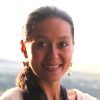
Sophie Chao is a Discovery Early Career Research Award fellow and lecturer in anthropology at the University of Sydney in Australia. Her anthropological and interdisciplinary research investigates the intersections of Indigeneity, ecology, capitalism, health, and justice in the Pacific. Chao previously worked for the human rights organization Forest Peoples Programme in Indonesia, supporting the rights of forest-dwelling Indigenous peoples to their customary lands, resources, and livelihoods. Her forthcoming book, In the Shadow of the Palms: More-Than-Human Becomings in West Papua, received the Duke University Press Scholars of Color First Book Award in 2021.

Sophie Goodman is an applied anthropologist whose M.A. thesis focused on identity performances and friendships in Facebook networks. She enjoys applying anthropological theories and methodologies to contemporary settings, and is currently working with the consulting firm Deloitte as part of the Customer Strategy and Insights division. Follow her on Twitter @SophGoodman.
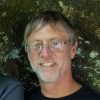
Stan Cox is a research coordinator at The Land Institute in Salina, Kansas. He has a Ph.D. in plant genetics from Iowa State University, and he worked for the U.S. Department of Agriculture for 13 years. Since 2000, Cox has been at The Land Institute, where he is developing perennial grain sorghum for ecological agriculture in the United States and sub-Saharan Africa. He writes extensively for print and web. In addition to How the World Breaks: Life in Catastrophe’s Path, From the Caribbean to Siberia, which he co-wrote with his son, Paul Cox, he is the author of Losing Our Cool: Uncomfortable Truths About Our Air-Conditioned World and Any Way You Slice It: The Past, Present, and Future of Rationing. Follow him on Twitter @CoxStan.

Stanley Serafin is an anatomist and biological anthropologist specializing in Maya bioarchaeology. His research investigates the interaction of biology and culture through analysis of human skeletal remains among the ancient Maya. In particular, Serafin investigates violence and warfare, mortuary practices, migration patterns, diet and health, and deliberate body modification such as tooth filing and cranial modification.

Stephanie Halmhofer is an archaeologist in Canada. She is a Ph.D. student in the anthropology department at the University of Alberta and a scholar of the Institute of Prairie and Indigenous Archaeology. Her doctoral research examines the use of archaeology and pseudoarchaeology by historic and contemporary far-right and conspiritual movements in North America.

Stephanie Savell is a cultural anthropologist who studies security and civic engagement in Brazil and the U.S. She will receive her Ph.D. from Brown University in 2017. Her current research investigates Rio de Janeiro’s controversial pacification program, which aims to replace drug-trafficking organizations’ control of favelas with “Police Pacification Units.” Savell’s work has been published in PoLAR: Political and Legal Anthropology Review and Focaal: Journal of Global and Historical Anthropology, and she co-authored The Civic Imagination: Making a Difference in American Political Life. Follow her on Twitter @stephsavell.

Stephen Acabado is an associate professor of anthropology at the University of California, Los Angeles. His archaeological investigations in Ifugao, northern Philippines, have established the recent origins of the Cordillera Rice Terraces, which were once thought to be at least 2,000 years old. Acabado directs the Bicol and Ifugao Archaeological projects, and co-directs the Taiwan Indigenous Landscape and History Project. He is a strong advocate of an engaged archaeology, where descendant communities are involved in the research process.
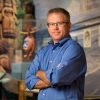
Stephen E. Nash is a historian of science and an archaeologist at the Denver Museum of Nature & Science. He studies a wide range of subjects, including dendrochronology (tree-ring dating), the history of museums, the archaeology of New Mexico, and Soviet gem-carving sculptures by Vasily Konovalenko. Nash has published numerous books, most recently Stories in Stone: The Enchanted Gem-Carving Sculptures of Vasily Konovalenko. Follow him on Twitter @nash_dr.
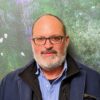
Stephen Putnam Hughes earned a bachelor’s degree in anthropology (honors) and philosophy at Bates College, Maine, and a master’s degree and doctorate in social and cultural anthropology at the University of Chicago. His research focuses on Tamil-speaking South India, with projects on the anthropology of media. He taught anthropology at SOAS, University of London, from 1997 to 2020. He has been a film festival director at the Royal Anthropological Institute since 2018 and a film officer there since 2020.
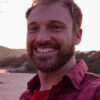
Stephen Wessels is a geomatician and virtual reality specialist with an M.Sc. in geomatics in which he created a 3D virtual site visit of Petra, Jordan. From 2007 to 2020, he worked at the Zamani project, where he became a chief scientific officer in the School of Architecture, Planning, and Geomatics, University of Cape Town, South Africa. He has 12 years of experience creating digital 3D models of heritage sites using laser scanning, photogrammetry, and panorama photography and has documented over 200 heritage sites in Africa, the Middle East, and Asia. In 2018, Wessels developed the Rock Art Portal, where he integrates spatial data of rock art sites with contextual data to create an interactive medium for education.

Stephen Wooding is an assistant professor of anthropology and heritage studies at the University of California, Merced. He received his Ph.D. in anthropology from the University of Utah in 2001 with a dissertation on genetic drift and natural selection in nonstationary populations. He completed an NIH Kirschstein postdoctoral fellowship in the department of human genetics at the University of Utah in 2005, where he studied patterns of genetic diversity in worldwide human populations. His research is on the genetics of individual differences in taste sensitivity. He is also investigating patterns of genetic diversity in cassava, a food staple in tropical populations known for its intense bitterness and toxicity.
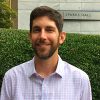
Steven P. Black is an anthropologist at Georgia State University whose research interests include verbal art, embodiment, morality, performance, and experience. His work investigates how marginalized people use language and music to constitute support and engage with transnational aid. His publications include “The Morality of Performance,” “Narrating Fragile Stories About HIV/AIDS in South Africa,” “Stigma and Ideological Constructions of the Foreign,” and “Laughing to Death.” Black is currently completing an ethnographic monograph based on his research.

Stewart Bruce Koyiyumptewa, a member of the Hopi Tribe and the Badger clan, is from the village of Hotevilla in northeastern Arizona. He is currently the archivist and ethnohistorian for the Hopi Tribe’s Cultural Preservation Office. Koyiyumptewa is engaged in a variety of projects: recording Hopi oral history, conducting ethnographic research, and doing collaborative work with universities, museums, libraries, and state and federal governments. Aside from his work, Koyiyumptewa is actively involved in the Hopi culture as a husband, father, and farmer.

Stuart Lang is currently undertaking his Ph.D. in anthropology at Maynooth University in Ireland. His doctorate focuses on alternative urban agriculture practices in and around Dublin City, Ireland. Lang’s research is funded by the Irish Research Council. Follow him on Twitter @stufensive.
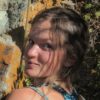
Summer Steenberg is a cultural anthropologist who studies the relationship between militarization, gender, and land use. She received her M.S. in applied mathematics from Wichita State University and is now a Ph.D. candidate in cultural anthropology at Duke University. Steenberg is currently working on a project to explore how adventure sports create new relationships to landscapes and are used by states to rebrand high-conflict areas. Follow her on Twitter @SteenbergSummer.
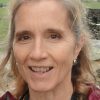
Susan Alexandra Crate is an environmental and cognitive anthropologist who has worked with Indigenous communities in Siberia since 1988. She is a professor at George Mason University. Since 2005, she has analyzed perceptions, understandings, and responses to climate change among Sakha, Arctic Canadian, Peruvian, Welsh, I-Kiribati, Mongolian, and Chesapeake watermen communities. Crate is the author of numerous peer-reviewed articles, two edited volumes on anthropology and climate change, and two monographs, most recently, Once Upon the Permafrost: Knowing Culture and Climate Change in Siberia. She serves on the Norwegian Scientific Academy for Polar Research, was a lead author on the Intergovernmental Panel on Climate Change’s Special Report on the Ocean and Cryosphere in a Changing Climate, and was a member of the American Anthropological Association’s Global Climate Change Task Force.

Susan Brownell is an internationally known expert on Chinese sports and the Olympic Games. She has written online commentaries for such publications as The Huffington Post, The New York Times, and China Daily. Brownell is also the author of Training the Body for China: Sports in the Moral Order of the People’s Republic and Beijing’s Games: What the Olympics Mean to China, and a co-author (with Niko Besnier and Thomas F. Carter) of The Anthropology of Sport: Bodies, Borders, Biopolitics. She is a professor of anthropology at the University of Missouri, St. Louis. Follow her on Twitter @baosushan.

Susan Cosier is a Chicago-based independent journalist focused on science and the environment. Follow her on Twitter @susancosier.


Susie Kilshaw is a medical anthropologist at the University College London (UCL), where she is a principal research fellow. She received her Ph.D. from the UCL in 2005 and is the author of Impotent Warriors: Gulf War Syndrome, Vulnerability, and Masculinity. Her research on reproduction and risk has taken her to the Middle East, where she has conducted fieldwork for the past five years. Kilshaw is currently working on a project funded by the Qatar Foundation’s Qatar National Research Fund that explores miscarriage experiences in Qatar and the U.K. Follow her on Twitter @susiekilshaw.

Suwandi is a Jambinese journalist who went to Bukit Duabelas National Park and its surrounding area to provide reporting on the ground.
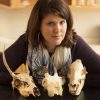
Suzanne Pilaar Birch is an associate professor of anthropology and geography at the University of Georgia. She is a member of Team TrowelBlazers, a collective that runs the grassroots and largely community-sourced TrowelBlazer project, which seeks to reset imaginations by presenting the stories of women in the “digging” sciences.

Svea Closser is a medical anthropologist who works in public health. Her research focuses on the interaction between global health policy and local health systems. She is the author of Chasing Polio in Pakistan: Why the World’s Largest Public Health Initiative May Fail and Foundations of Global Health: An Interdisciplinary Reader (co-authored with Peter J. Brown), as well as many research articles. Closser also co-edited the volume Understanding and Applying Medical Anthropology (with Peter J. Brown). In her current project, funded by the Fulbright-Nehru program, she is learning about the lives and social relations of female community health workers in India.

T.V. Padma is a science and environmental journalist based in New Delhi. Her reporting has been published in international and national publications, including Nature, Eos News, Chemistry World, and Mongabay-India. Follow her on Twitter @tvpadma.

Tanya Marie Luhrmann is the Howard and Jessie Watkins University Professor in Stanford University’s anthropology department. Her work focuses on the edge of experience: on voices, visions, the world of the supernatural, and the world of psychosis. She was elected to the American Academy of Arts and Sciences in 2003 and received a John Simon Guggenheim Fellowship in 2007. When God Talks Back was named a New York Times Notable Book of the Year and a Kirkus Reviews Best Book of 2012. Her new book, co-edited with Jocelyn Marrow, Our Most Troubling Madness: Case Studies in Schizophrenia Across Cultures, will be published this year by the University of California Press. Follow her on Twitter @tanyaluhrmann.

Tanya M. Smith is a professor in the Australian Research Centre for Human Evolution at Griffith University. Her research explores the evolution and development of human dentition, and has been funded by the Australian Academy of Science, Australian Research Council, U.S. National Science Foundation, Leakey Foundation, and Wenner-Gren Foundation for Anthropological Research. Smith has published in Nature and the Proceedings of the National Academy of Sciences.

Tehreem Anwar is an aspiring sociocultural anthropologist who completed her bachelor’s degree in sociology and anthropology from Lahore University of Management Sciences and plans to start her master’s degree in applied anthropology at the University of Amsterdam in 2023. Her research interests are focused on exploring the relationship between gender, sexuality, and culture in a South Asian context. She is working on a project that engages with children of sex workers, dancers, and musicians in the red-light area of Old Lahore.

Teresa Carr is an award-winning science journalist based in Austin, Texas. She writes the Matters of Fact column for the digital science magazine Undark, and her work has also appeared in Consumer Reports, Medscape, New York Times Parenting, The Guardian U.S., and other publications. Follow her on Twitter @teresarcarr.

Tesla Monson is an assistant professor of anthropology at Western Washington University in Bellingham, where she runs the Primate Evolution Lab. Her lab researches primate evolution, life history, reproductive ecology, and the growth and development of the skeletal system. In 2020, she received a Leakey Foundation research grant for her project “Evolution of the Primate Cranium: Craniofacial Modularity in Extant Colobines.”
The Undocumented Migration Project is a long-term anthropological project that draws on ethnography, archaeology, and forensic science to understand various aspects of clandestine migration between Latin America and the United States. Results of this research have been featured in a range of academic and popular media outlets. A major component of this project involves a summer field school run through the Institute for Field Research that trains undergraduate students in fieldwork methods while simultaneously exposing them to the realities of the undocumented migration experience. The following individuals were part of the 2015 field season in Chiapas, Mexico, and they contributed collaboratively to this photo essay’s captions: Andrea Delgado, Alejandra Díaz de León, Arianna Dixon, John Doering-White, Celina Doria, Anna Forringer-Beal, Amelia Frank-Vitale, Daniela Gutiérrez Escobedo, Emma Hays, Polina Hristova, María Inclan, Juan Mayorga, Lenica Morales-Valenzuela, Cristina Moreno, Anthony Quail, Jhimmy Sanchez, Austin Shipman, Chelsie Simonson, Greg Sollish, Haeden Stewart, and Jessica Tilton. Follow the project on Twitter @UMP_Michigan.
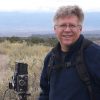
Thomas Carr is a Colorado archaeologist and photographer. He works with film and digital cameras, and has exhibited his work widely over the past 35 years. He has also lectured extensively on the history of photography and archaeology. In characterizing his own work, Carr states that “as a young photographer I found myself drawn toward making images of places with subtle indications of a past human presence. This led to my pursuit of a career in archaeology, which has allowed me to visit many significant historic sites and associated landscapes. I endeavor to document the essence of these places in visual terms.”

Thomas Hylland Eriksen is a professor of social anthropology at the University of Oslo in Norway and president of the European Association of Social Anthropologists. He has published extensively on the social and cultural dynamics of ethnically complex societies. Eriksen is currently the principal investigator on the project “Overheating: The Three Crises of Globalisation,” which is funded by the European Research Council. His books, which include Small Places, Large Issues: An Introduction to Social and Cultural Anthropology, Ethnicity and Nationalism: Anthropological Perspectives, Fredrik Barth: An Intellectual Biography, and, most recently, Overheating: An Anthropology of Accelerated Change and Boomtown: Runaway Globalisation on the Queensland Coast, have been translated into more than 30 languages. He also maintains a blog.
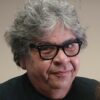
Thomas Pecore Weso, an enrolled member of the Menominee Indian Tribe of Wisconsin, received an undergraduate degree in anthropology at the University of Kansas and a master’s in Global Indigenous Studies. He taught anthropology, sociology, and other social sciences in Kansas City–area colleges. He is the author of the forthcoming Survival Food: North Woods Stories by a Menominee Cook (Wisconsin Historical Society Press, 2023). His Good Seeds: A Menominee Indian Food Memoir was a National Gourmand Award winner for Historical Recipes and finalist for the International Gourmand Award. His children’s book Native American Stories for Kids: Twelve Traditional Stories From Indigenous Tribes Across North America is a bestseller on Amazon. Weso is also a co-author of Langston Hughes in Lawrence (Mammoth Publications). He lives in Sonoma County, California.
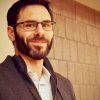
Thomas W. Pearson is a cultural anthropologist who teaches at the University of Wisconsin, Stout. Much of his writing has focused on environmental activism in Central America and the United States. He is the author of When the Hills Are Gone: Frac Sand Mining and the Struggle for Community and An Ordinary Future: Margaret Mead, the Problem of Disability, and a Child Born Different. Pearson’s research on community responses to PFAS contamination is supported by a Wenner-Gren Foundation grant (2020–2021). In recent years, he has ventured into the world of disability studies. Follow him on Twitter @AnthroPearson.

Thurka Sangaramoorthy is a medical anthropologist whose work focuses on HIV/AIDS, immigrant health, and risk environments. She received her Ph.D. from the University of California, San Francisco, and University of California, Berkeley. She is currently an assistant professor at the University of Maryland, College Park. Sangaramoorthy is the author of Treating AIDS: Politics of Difference, Paradox of Prevention. She is currently working on projects that focus on race, health, and inequality, examining intersectional stigmas among black women with HIV/AIDS and immigrant health and environmental degradation in rural environments.
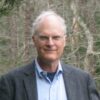
Timothy Earle is professor emeritus at Northwestern University. After earning his Ph.D. from the University of Michigan, he was a professor of anthropology at the University of California, Los Angeles and the director of the Institute of Archaeology from 1973 to 1995. In 1995, he was hired by Northwestern University to chair and reorganize the department of anthropology. Earle’s archaeological research focuses comparatively on the emergence of chiefdoms. He has conducted excavations in Hawaii, the Peruvian and Argentinian Andes, Denmark, Iceland, and Hungary. His 10 books include How Chiefs Come to Power and Evolution of Human Societies (with Allen W. Johnson). He was elected as a member of the American Academy of Arts and Sciences in 2013.

Timothy Y. Loh is a Ph.D. candidate in the anthropology of science and technology at the Massachusetts Institute of Technology in Cambridge, Massachusetts. His ethnographic research investigates sociality, language, and religion in deaf and signing worlds in Jordan, Singapore, and the United States.

Tina Moffat is an associate professor and chair of the department of anthropology at McMaster University in Canada who studies the social and cultural determinants of maternal-child health and nutrition. She is a co-editor of the edited volume Human Diet and Nutrition in Biocultural Perspective: Past Meets Present (with Tracy Prowse). Moffat is the past president of the Canadian Association for Biological Anthropology. Follow her on Twitter @TinaMoffat3.
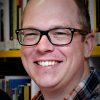
Tobias Richter is an associate professor in Near Eastern archaeology at the University of Copenhagen. His primary research focuses on the transition from hunting and gathering to agriculture in southwest Asia. Richter currently directs two major fieldwork projects in Jordan and Iran that investigate the relationship between climatic and cultural change during the transition from the late Paleolithic to the early Neolithic. He has a B.A. and M.Phil. in archaeology from the University of Wales, Lampeter, and he obtained his Ph.D. from the Institute of Archaeology at the University College London.

Todd Braje is the executive director of the Museum of Natural and Cultural History at the University of Oregon. His research focuses on long-term human-environmental interactions, the archaeology of maritime societies, historical ecological approaches to understanding coastal hunter-gatherer-fishers, and the peopling of the Americas. His forthcoming book, Understanding Imperiled Earth: How Archaeology and Human History Can Inform a Sustainable Future, will be published in 2024. Follow him on Twitter @ToddBraje.
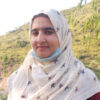
Toiba Naseema is from Indian-occupied Kashmir. She is a poet-anthropologist with graduate degrees in anthropology and mass communication from the University of Kashmir. Previously, Naseema was an editor at the Danish Siddiqui Foundation and also was engaged as an international youth adviser with Wellcome Trust, U.K., in building up a mental health databank.

Tom Boellstorff is a cultural and linguistic anthropologist who received their Ph.D. from Stanford University and is a professor in the anthropology department at the University of California, Irvine. A fellow of the American Association for the Advancement of Science, they are the author of many articles and the books The Gay Archipelago: Sexuality and Nation in Indonesia, A Coincidence of Desires: Anthropology, Queer Studies, Indonesia, and Coming of Age in Second Life: An Anthropologist Explores the Virtually Human. Boellstorff is also a co-author of Ethnography and Virtual Worlds: A Handbook of Method (with Bonnie Nardi, Celia Pearce, and T.L. Taylor) and a co-editor of Data, Now Bigger and Better! (with Bill Maurer). A former editor-in-chief of American Anthropologist, the flagship journal of the American Anthropological Association, they co-edit the Princeton University Press book series Princeton Studies in Culture and Technology.

Tom Garlinghouse is a science journalist based in Santa Cruz, California. He received a Ph.D. in archaeology/anthropology from the University of California, Davis, and has written for Science, Inside Science, Mongabay, and British History Today, among other publications. Follow him on Twitter @GarlinghouseTom.

Tom McDonald is an anthropologist who studies the changing material culture of everyday life in China. He received his Ph.D. from the University College London and is currently an assistant professor at the University of Hong Kong. He recently co-authored How the World Changed Social Media and is completing his own book Social Media in Rural China as part of the Why We Post series. Follow him on Twitter @AnthroTom.

Tom Mould is a professor of history and anthropology at Butler University. He teaches and conducts research in the areas of folklore, language and culture, American Indian studies, oral narrative, religious and sacred narrative, contemporary legend, identity, ethnography, genre, and performance theory. He is the author of the books Choctaw Prophecy: A Legacy of the Future (2003), Choctaw Tales (2004), Still, the Small Voice: Narrative, Personal Revelation, and the Mormon Folk Tradition (2011), and the forthcoming Overthrowing the Queen: Telling Stories of Welfare in America (2020).

Torben Rick is curator of North American archaeology and a research anthropologist in anthropology at the Smithsonian’s National Museum of Natural History. Rick’s research focuses on the archaeology and historical ecology of coastal and island peoples, especially on the North American Pacific and Atlantic coasts. Rick has authored or edited eight books and dozens of scholarly articles. He received his Ph.D. and M.A. from the University of Oregon and B.A. from the University of California, Santa Barbara. Rick is a past chair of the Smithsonian’s Department of Anthropology, a fellow of the American Association for the Advancement of Science, and a member of the National Academy of Sciences.

Tori Herridge is a presenter and an evolutionary biologist, and a 2021 Daphne Jackson fellow at the Natural History Museum, London. She is a member of Team TrowelBlazers, a collective that runs the grassroots and largely community-sourced TrowelBlazer project, which seeks to reset imaginations by presenting the stories of women in the “digging” sciences.

Traben Pleasant is an applied anthropologist who studies culture, development, technology, and military veteran health. He received his Ph.D. from Oregon State University with an emphasis on development, technology, and Black and Indigenous well-being in Bocas del Toro, Panama. Pleasant currently works at the U.S. Department of Veterans Affairs studying aging, rurality, telehealth, user experience, and medicinal cannabis use among veterans.

Tracie Canada is a cultural anthropologist with research and teaching interests in race, sport, kinship, and the performing body. She received her Ph.D. from the University of Virginia and is currently an assistant professor of anthropology at the University of Notre Dame. Her work has been supported by the Mellon Mays Undergraduate Fellowship, the National Science Foundation, the Wenner-Gren Foundation for Anthropological Research, and the National Collegiate Athletic Association. Canada is currently working on a book project about the lived experiences of Black college football players.
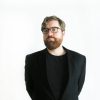
Travis Warren Cooper is a social anthropologist and ethnographer of the American Midwest. He received a dual Ph.D. from Indiana University, Bloomington, in anthropology and religious studies, and lectures at Butler University in Indianapolis. He is a research fellow with Lived Religion in the Digital Age, a project hosted by St. Louis University and supported by the Henry Luce Foundation. Cooper is currently at work on two book projects: The Digital Evangelicals: Contesting Authority and Authenticity After the New Media Turn and Synecdoche, Columbus: An Anthropology of a Modern Architectural Experiment. Follow him on Twitter @traviswccooper and Instagram @iubloomington.

Usman Mahar is a doctoral research associate in the department of social and cultural anthropology at the Ludwig Maximilian University of Munich. He is currently working on a DFG-funded research project on (re)migration with Martin Sökefeld. Mahar received his higher education at the University of Heidelberg and University College Utrecht. Follow him on Instagram @ekphrasis_us_man or Twitter @usmanmahar.

Václav Hrnčíř is a postdoctoral researcher in the department of linguistic and cultural evolution at the Max Planck Institute for Evolutionary Anthropology. He received his Ph.D. in archaeology from Charles University. He specializes in using the methods of comparative ethnology to address questions about the deep human past. Hrnčíř’s research interests include cultural evolution, prehistory, hunter-gatherers, human mobility, intoxicants, and social complexity. Follow him on Twitter @vaclavhrncir.

Valerie L. Lambert is an associate professor of anthropology at the University of North Carolina, Chapel Hill, and the president of the Association of Indigenous Anthropologists (a section of the American Anthropological Association). She is an enrolled member of the Choctaw Nation and is also of documented Chickasaw ancestry. Her first book, Choctaw Nation: A Story of American Indian Resurgence, is a story of tribal nation building in the modern era. It is the winner of the North American Indian Prose Award and was a finalist for the Oklahoma Book Award.

Veronica Peterson is in the doctoral program in archaeology at Harvard University. She has a B.A. with a focus in anthropology and Chinese from Vassar College in New York state, and she worked as a museum registrar in Barbara L. Voss’ historical archaeology lab at Stanford University from 2018–2019. For her doctoral research, Peterson will investigate the archaeology of U.S. immigrant Chinese communities, exploring the foodways of U.S. Chinatowns and residents’ connections to their home villages in China.
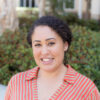
Veronica Valencia Gonzalez (they/them) is a social ecology doctoral candidate at the University of California, Irvine. Gonzalez’s research interests are varied and include intimate partner violence (IPV), specifically within Latine/x communities; gender violence within Latine/x communities; criminal legal involvement of Latine/x community members, and mental illness stigma within Latine/x communities. For their dissertation, Gonzalez is investigating IPV and help-seeking strategies in rural communities of Michoacán, Mexico.
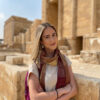
Victoria Almansa-Villatoro is an Egyptologist who focuses on ancient texts and the use of language to encapsulate and express power dynamics and implied knowledge. She received her Ph.D. from Brown University in 2022 and in the same year was elected as a Junior Research Fellow at the Harvard Society of Fellows (2022–2025). Some of the topics she has published on include uncovering how ancient Egyptians used persuasion without leveraging authority and unraveling the iconic metaphors in hieroglyphs. Almansa-Villatoro works with the Ancient Egypt Research Associates’ archaeological project in Giza (Egypt) as a sealings expert and with the Nuri Archaeological Expedition to the royal necropolis and pyramids of Nuri (Sudan) as an assistant director. She is also an assistant editor at the Journal of Ancient Egyptian Interconnections.

Victoria Gibbon joined the Division of Clinical Anatomy and Biological Anthropology at University of Cape Town (UCT) in 2016. In addition to her research and teaching portfolios, she is a curator of the UCT Human Skeletal Repository. This role led her to initiate restitution processes at UCT to return unethically obtained human remains and led to the establishment of updated procedures of access and stewardship for human remains at the university. Gibbon’s research and teaching interests are primarily in biological anthropology, human variation, forensic anthropology, forensic taphonomy, and bioarchaeology.

Vincen Gregory Yu is a physician, health researcher, fictionist, poet, and arts critic from Iloilo City, Philippines. He is currently a research associate at the Ateneo de Manila University development studies program and an M.A. student in anthropology at the University of Sydney. His literary work has been published and/or anthologized in multiple countries and won the Nick Joaquin Literary Award for Fiction and Maningning Miclat Poetry Award.

Vincent Ialenti is a MacArthur postdoctoral fellow at the University of British Columbia in Vancouver, Canada. His new book, Deep Time Reckoning: How Future Thinking Can Help Earth Now, is an anthropological exploration of how Finland’s nuclear waste experts grappled with distant future societies, bodies, and ecologies. Ialenti’s research has been supported by the U.S. National Science Foundation, the Mellon Foundation, and the MacArthur Foundation. Alongside his academic publications, he has written for NPR, Forbes, BBC, SAPIENS, Nautilus, and other public outlets. Ialenti holds a Ph.D. in anthropology from Cornell University. Follow him on Twitter @vincent_ialenti.

Virginia Gewin is a science journalist based in Portland, Oregon. She writes about biodiversity, climate change, and food security. Her work appears in The Atlantic, Scientific American, Popular Science, bioGraphic, The Washington Post, Nature, and other publications. Follow her on Twitter @virginiagewin.

Virginia McLaurin is a cultural anthropologist who specializes in Indigenous-created media and stereotypical Indigenous imagery, which was the focus of her M.A. thesis. She is a Ph.D. candidate at the University of Massachusetts, Amherst, where she has received a graduate certificate in Native American and Indigenous studies, and teaches courses in Native American histories and ancient civilizations. McLaurin is currently researching the creation of Indigenous community websites and the works of Indigenous digital media artists in the Northeastern region of the United States.
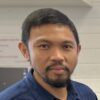
Vito C. Hernandez is an international postgraduate research scholar at Flinders University pursuing a Ph.D. in geoarchaeology. He investigates the oldest-dated late Pleistocene modern human site in mainland Southeast Asia. His research describes the paleoenvironment of middle Pleistocene archaic humans and the paleoanthropological and archaeological record in a site in island Southeast Asia.
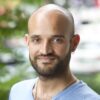
Vivek V. Venkataraman is a biological anthropologist and hunter-gatherer expert who studies the evolution of human foraging strategies. He received his Ph.D. from Dartmouth College and is currently an assistant professor at the University of Calgary. He is a principal investigator of the Orang Asli Health and Lifeways Project, which explores how environmental change is impacting the health of the Indigenous peoples of Peninsular Malaysia. Follow him on Twitter @vivek_vasi.
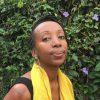
Wangui Kimari is an anthropologist whose work draws on local histories and various theoretical approaches to think through urban spatial management in Nairobi, Kenya, from the vantage point of its most marginalized residents. She’s currently a junior research fellow at the Institute for Humanities in Africa at the University of Cape Town. Kimari is also the participatory action research coordinator for the Mathare Social Justice Centre, a community-based organization in Mathare, a poor urban settlement in Nairobi, and an editorial board member and a contributor at Africa Is a Country.
Wendy Orent is an anthropologist based in Atlanta, Georgia, who specializes in health and disease. She is the author of the book Plague: The Mysterious Past and Terrifying Future of the World’s Most Dangerous Disease.
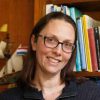
Wendy van Duivenvoorde is an associate professor in maritime archaeology at Flinders University. Her current research is focused primarily on maritime trade and shipbuilding in the ancient Mediterranean and Northern Europe. Van Duivenvoorde is an expert in late 16th- and early 17th-century Dutch shipbuilding, and her studies primarily focus on ships of exploration and Indiamen. She has also become a specialist in the study of ship’s fastenings dating to the ancient Greek and Roman periods. She has conducted research on the metal fasteners and anchors excavated from ancient Mediterranean merchantmen such as the Tektaş Burnu (440–425 B.C.) and Kyrenia (third century B.C.) shipwrecks.
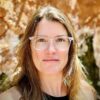
Whitney L. Duncan is a Colorado-based anthropologist, author, and activist whose creative and academic work centers on immigration, global mental health, and the intersections between culture, the body, and the natural world. Her books include Transforming Therapy: Mental Health Practice and Cultural Change in Mexico and the forthcoming co-edited volume Accompaniment With Im/migrant Communities: Ethnographic Engagements (with Kristin Elizabeth Yarris). Duncan is a professor of anthropology at the University of Northern Colorado and adjunct faculty at the Colorado School of Public Health. She was a founding member of the Anthropologist Action Network for Immigrants and Refugees and is a member of the 2023–2024 Lighthouse Writers Workshop Poetry Collective. She serves as an expert witness for the National Qualified Representative Program.
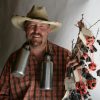
Will Russell is a Southwestern archaeologist whose research interests include how ritual was used to establish moral authority and navigate pre-Hispanic social inequalities. His professional focus is on heritage preservation and statutory compliance. Russell received his Ph.D. from Arizona State University (ASU), where he is currently an adjunct professor. He is also a historic preservation specialist with the Arizona Department of Transportation and a research associate with ASU’s Center for Archaeology and Society.
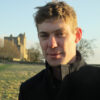


William Ezra Allen is a Liberian and a historian whose publications focus on 19th-century Liberian society. His master’s is from Indiana University, and he earned his Ph.D. in history from Florida International University, with the aid of a Rockefeller Foundation African Dissertation Internship Award. Months after he joined the University of Liberia’s history department, a Civil War erupted in the country, shattering lives and displacing over 1 million during 14 years of bloody, sporadic warfare. His publications include Historical Methodology and Writing the Liberian Past: The Case of Agriculture in the 19th Century and Liberia and the Atlantic World in the Nineteenth Century: Convergence and Effects.

William F. Keegan has been studying Caribbean archaeology for the past 40 years. He is the curator of Caribbean archaeology at the Florida Museum of Natural History and a professor of anthropology at the University of Florida, Gainesville. He received his Ph.D. from UCLA. He is a co-author of The Caribbean Before Columbus (with Corinne L. Hofman) and a co-editor of the Oxford Handbook of Caribbean Archaeology (with Corinne L. Hofman and Reniel Rodríguez Ramos).

William H. Westermeyer is a sociocultural anthropologist who researches social movements, American political culture, and the political right. He is currently a visiting assistant professor of anthropology at High Point University in North Carolina. Westermeyer’s research is inspired by the 13 years he spent working as a political campaign organizer and consultant before pursuing his Ph.D. from the University of North Carolina, Chapel Hill. He recently published the article “Local Tea Party Groups and the Vibrancy of the Movement.” Follow him on Twitter @billwestermeyer.
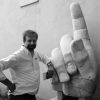
William Jankowiak is a professor at the University of Nevada, Las Vegas, and an internationally recognized authority on urban Chinese society, urban Mongols, Mormon fundamentalist polygyny, and love around the world. Jankowiak has authored over 123 academic and professional journal articles and three books, and he has edited or co-edited four volumes. His research has been featured in numerous media outlets, including The Economist, The New York Times, Time, ABC Primetime, NPR, the History Channel, TLC, BBC, and NBC.

William Lempert is an assistant professor of anthropology at Bowdoin College. Since 2006, he has conducted over two years of ethnographic fieldwork with Indigenous media organizations in the Kimberley region of Northwestern Australia. His research engages the paradoxical relationship between the production of films that vividly imagine hopeful and diverse Indigenous futures, and the broader defunding of Aboriginal communities and organizations.
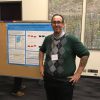
William M. Cotter is a linguist and anthropologist who studies how violence and political conflict affect language change in the Middle East. He is currently completing his Ph.D. in anthropology and linguistics at the University of Arizona. Cotter’s work has been published in the Journal of Arabic and Islamic Studies, Language and Linguistics Compass, and the Journal of Sociolinguistics, with forthcoming work in the Journal of Linguistic Anthropology. Follow him on Twitter @cotterw.

William Mitchell is a project archaeologist at Staffordshire University. His expertise includes community-based projects, forensic archaeology, and urban, medieval, and industrial archaeology. He has worked on a number of forensic research projects, including sites of the Holocaust in Germany, the Ukraine, and Poland.
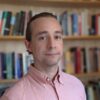
William Tantam is a lecturer in anthropology at the University of Bristol. His current research looks at victim and survivor experiences of non-recent child sexual abuse. Between 2020 and 2021, he worked as part of the Independent Inquiry into Child Sexual Abuse in England and Wales. Tantam is currently a member of a network of professionals, academics, and advocates researching non-recent sexual abuse, many of whom are victims and survivors. Previously, he has worked on aspects of race, social inequalities, and embodiment through the lens of football in Jamaica and is the author of An Ethnography of Football and Masculinities in Jamaica: Letting the Football Talk.
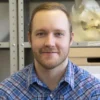
William Taylor is an archaeozoologist at the University of Colorado, Boulder, who specializes in the study of horse and large animal domestication. Since 2011, he has conducted archaeological fieldwork in Mongolia and the Eurasian steppe, with other research projects centered on ancient human-horse relations in China, Kyrgyzstan, Australia, and the Americas. Taylor is particularly interested in the application of emerging technologies, such as 3D scanning and biomolecular techniques, to archaeological questions.
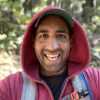
William White is an assistant professor of anthropology at the University of California, Berkeley, where he specializes in historical archaeology of the African diaspora, historic preservation, and community-based research. He earned his Ph.D. at the University of Arizona, where he worked for the Bureau of Applied Research in Anthropology as an anthropological archaeologist. His master’s in anthropology is from the University of Idaho. White also worked as a cultural resource management archaeologist across the American West. He connects with broader audiences through featuring his archaeological work on blogs, vlogs, podcasts, and other online publications.

Yasaswini Sampathkumar is a journalist based in Guwahati, India. She writes about the influence of history, culture, and politics on sustainability and technology. Her earlier work on urban water management appeared in Ensia. Other bylines include pieces in WIRED, National Geographic, BBC Travel, and Hidden Compass. In a previous life, she was training to be a molecular biologist. Follow her @YasaswiniSampat.

Yeon Jung Yu is a social and medical anthropologist with a background in public health, women’s and gender studies, and East Asian studies. She received her Ph.D. from Stanford University and is currently an assistant professor at Western Washington University. Her research and teaching experience integrates a range of scholarly interests, including labor migration, HIV/AIDS, social stigma, marginalized populations, and social networks. Yu is currently writing a book, based on her dissertation, with the working title Enmeshed: Social Networks and the Integration of Female Sex Workers in Post-Socialist China. Her work is focused on extensive field research on “hidden” rural-to-urban migrant women working in the sex trade in contemporary China.

Yolanda Moses is a professor of anthropology and a former associate vice chancellor for diversity, equity, and excellence at the University of California, Riverside. Her research focuses on the broad question of the origins of social inequality in complex societies and issues of diversity and change in universities. She has co-authored two books about race: Race: Are We So Different? and How Real Is Race?: A Sourcebook on Race, Culture, and Biology. In 2017, she received a Fulbright Distinguished Chair in Cultural Competence at the University of Sydney in Australia. Moses is a former president of the American Anthropological Association.

Yvette Running Horse Collin is a Marie Skłodowska Curie IEF postdoctoral researcher in the AGES group. She is interested in the fields of equine genomics, archaeology, paleontology, metagenomics, Indigenous studies, sustainability, and climate change. Collin is an enrolled member of the Oglala Lakota Nation (Oglala Sioux Tribe). For more than a decade, she has received specialized training from several Lakota Traditional Knowledge bearers in advanced Indigenous sciences, environmental practices, and medicines. She earned her Ph.D. at the University of Alaska, Fairbanks. Upon completion of her doctorate in 2017, Collin served her nation as an appointed Presidential Ambassador and continued her work as an administrator for the Black Hills Sioux Nation Council. As is aligned with her cultural protocols, she spent the past three years returning her research to the communities who participated in her doctoral study. In many cases, this took the form of physically returning representative herds of the descendants of the original horses of such peoples to their communities and actively participating with elders in teaching and sharing the traditions and science surrounding them.

Zaneta Thayer is a biological anthropologist and an assistant professor of anthropology at Dartmouth College. Her research largely addresses how social inequalities “get under the skin” to affect human biology and health. She has conducted the majority of her research in Aotearoa New Zealand and the United States, where she has investigated the impacts of factors such as poverty, discrimination, and historical trauma on stress physiology functioning, birth outcomes, general physiological functioning, and mental health. She recently co-launched the CARE study to understand the impacts of the COVID-19 pandemic on pregnant women’s well-being and health care experiences. Thayer received her Ph.D. at Northwestern University in 2013, where she was also a presidential fellow. In 2020, she received the Michael A. Little Early Career Award from the Human Biology Association.
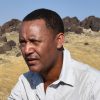
Zeresenay “Zeray” Alemseged is the Donald N. Pritzker professor of organismal biology and anatomy at the University of Chicago. A biological anthropologist who conducts field and laboratory research on human origins, he is known for the discovery of “Selam” or the “Dikika Child,” the earliest and most complete skeleton of an early human child. After receiving his Ph.D. from the University of Paris, Alemseged was a postdoctoral fellow at Arizona State University, a senior scientist at the Max Planck Institute, and a senior curator at the California Academy of Sciences before moving to Chicago in 2016. He is a fellow of the American Association for the Advancement of Science and has been featured on CNN, BBC, TED, National Geographic, and PBS.
